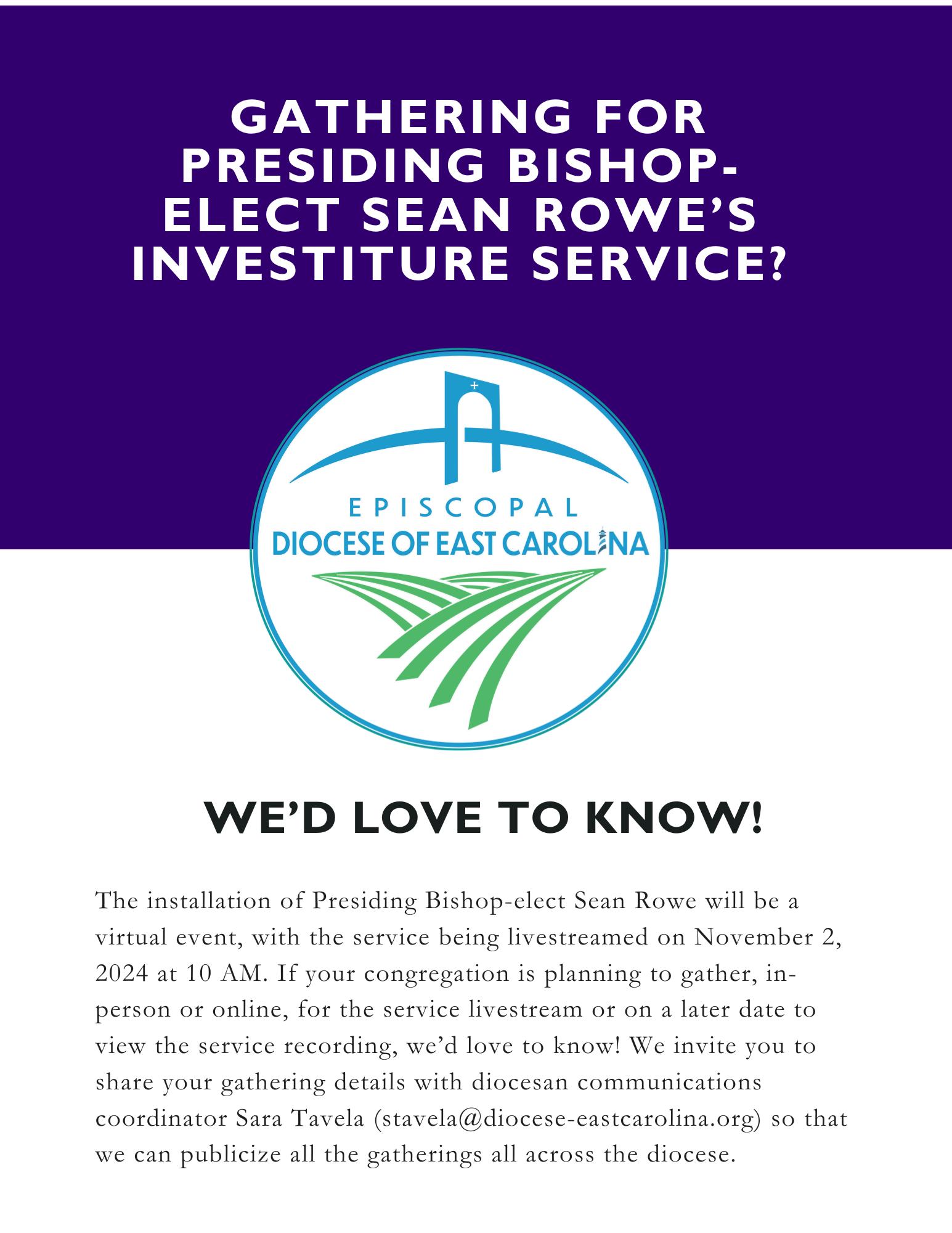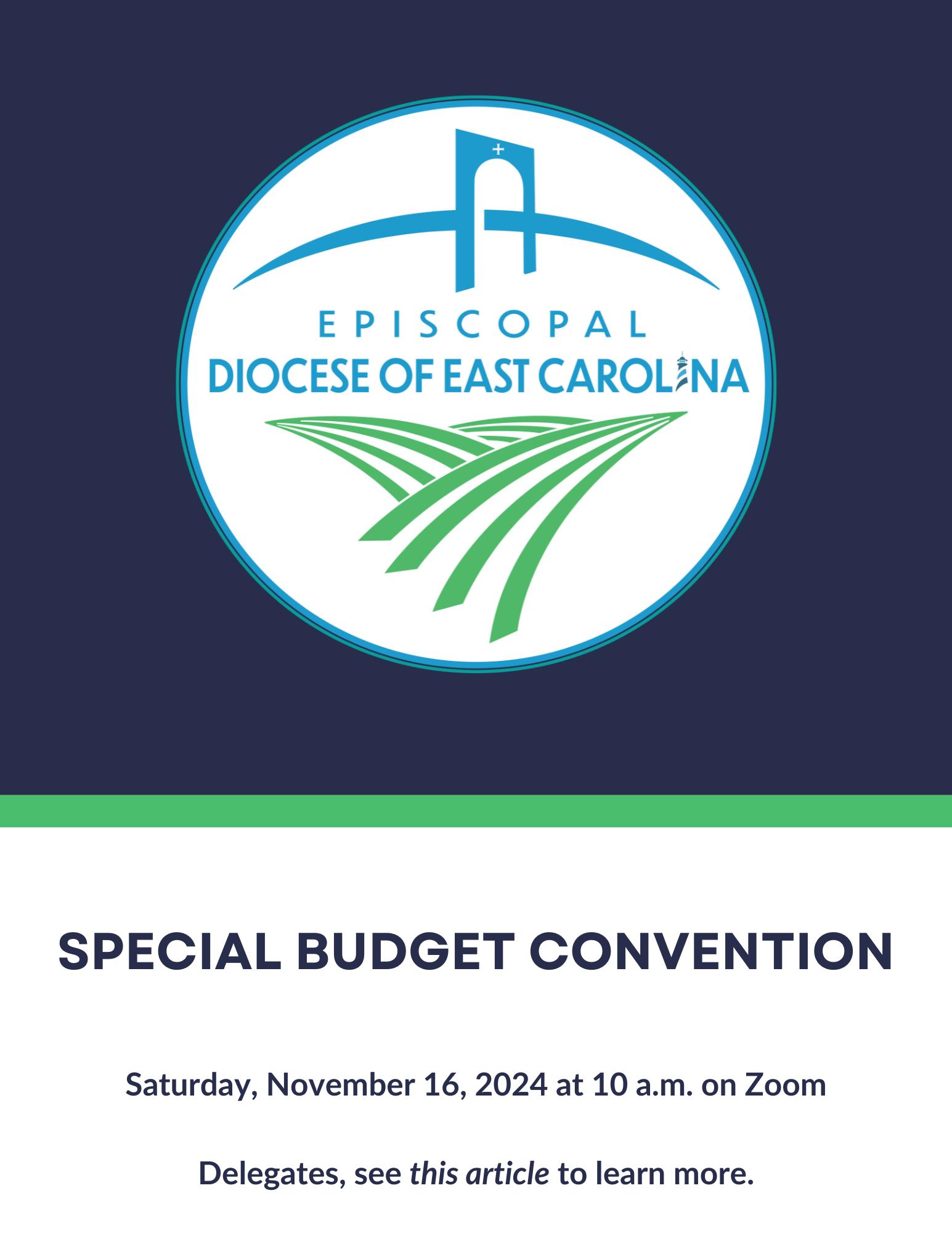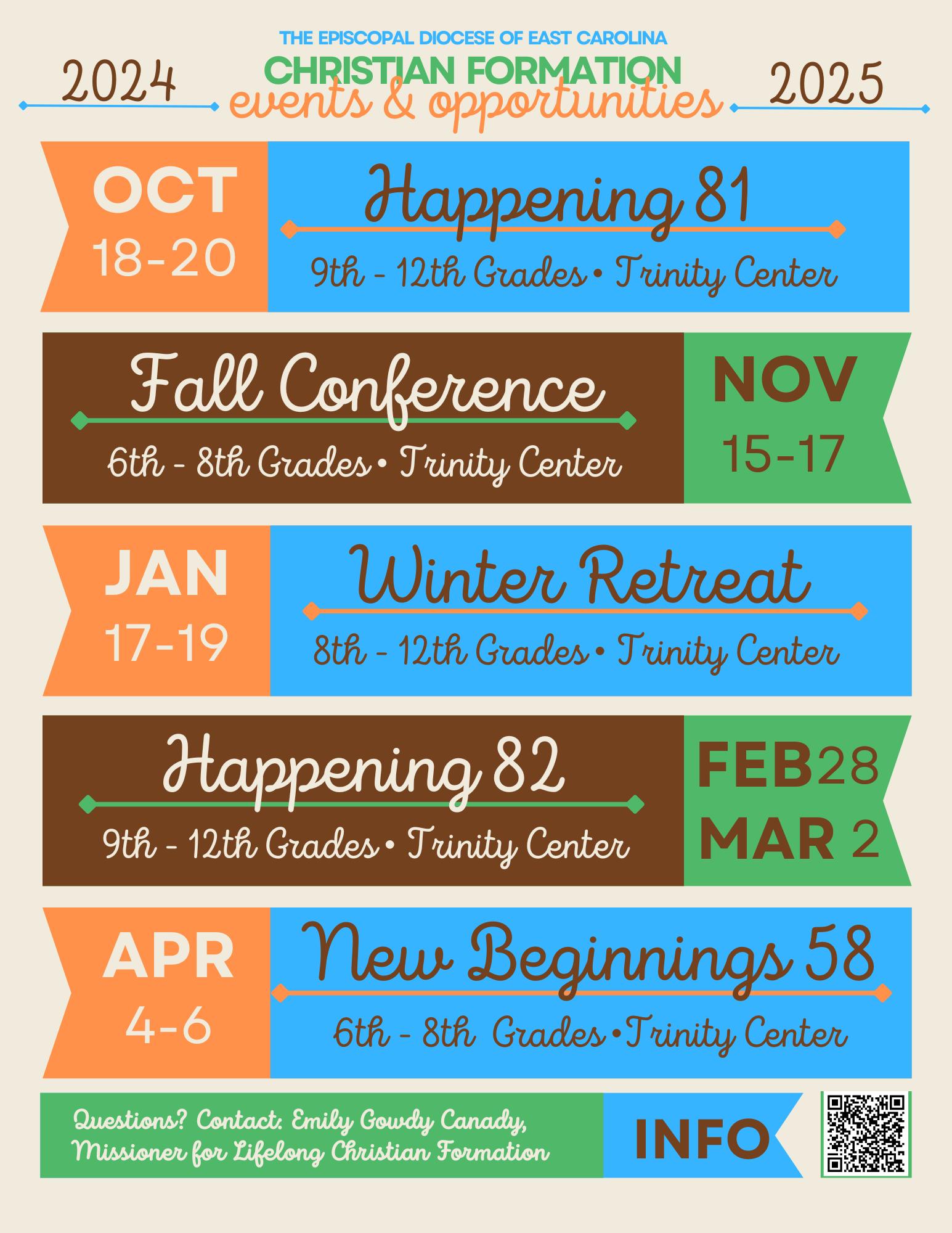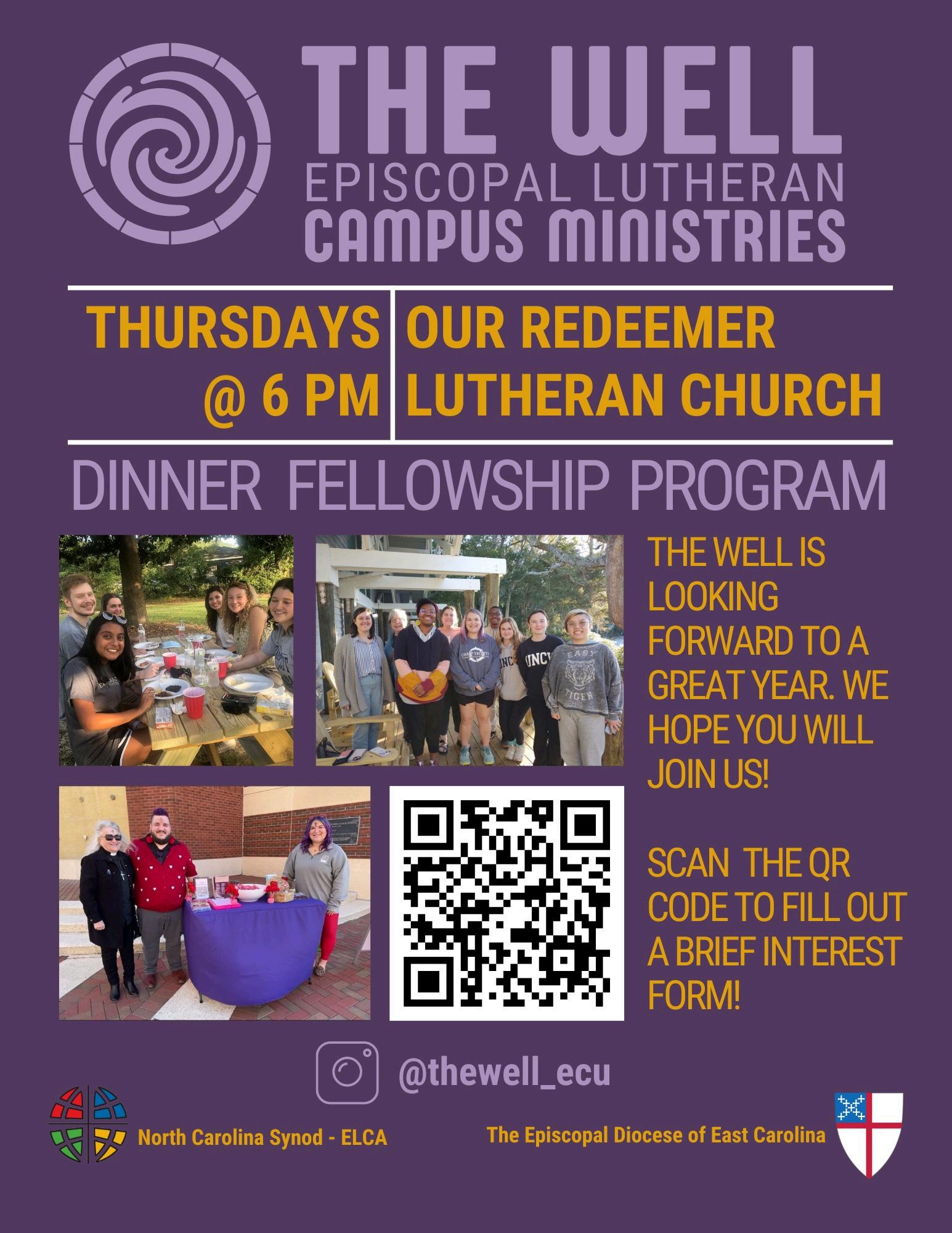DIOCESAN DIGEST
DIOCESE OF EAST CAROLINA





The Diocese of East Carolina
705 Doctors Drive
Kinston, NC 28501
Phone: (252) 522-0885
Website: www diocese-eastcarolina org
Bishop
The Rt. Rev. Robert Skirving
Editorial Director
Sara Tavela, Coordinator of Communications
Contributors in this Issue
LaTonya Smith, Tess Judge, Emerson Crawford, Rev Bonnie Smith, Rev Catherine Powell, Rev Kamila
Blessing, Rev Suzanne Hood, Hoben Thomas, Betsy Downard, David Curtis Skaggs, Rev. Ashley Simpson, Rev. Nan Cekuta, Rev. Ellen Richardson, Rev. Jody Greenwood, Rev Fanny Belanger, Rev Carrie Craig, Robin Burrs, Susan Lees, Gail Walter, Rev Blair Both, Courtney Smith, Jayden Wright, Betsy Shepherd, Emily Gowdy Canady, Rev. Caleb Lee, Rev. Paul Canady, Hannah Hutchins, Rev Richard Elliott, Tom Tully, Rev Tammy Lee, Barbara Crumbacker, Randall Gornowich, Bishop Rob Skirving, Sara Tavela
Submissions
All submission ideas are welcome and considered for publication Visit www diocese-eastcarolina org/ communication-submissions/ to submit your idea
Subscriptions
Visit www diocese-eastcarolina org/news/ and click to subscribe to our publications
Letters to the Editor
Send letters to the Editor to communications@dioceseeastcarolina org
N O T E F R O M T H E E D I T O R
Welcometooursummerissueof theDigest!Thisissuecelebrates leadershipofallagesthroughout ourdiocese.Insidethisissue,you'll finddetailsaboutourupcoming SpecialConvention;seehistory, photos,andprofilescelebrating50 yearsofwomen’sordinationtothe priesthood;hearfromyoung personswhoattendedSewanee’s
SUMMATheologicalDebate Camp,andexplorereflections fromourGC81deputies MayGod continuetoliftupallleadersand allpeopleoftheDioceseofEast Carolina,andthankyoutothe leaderswithoutwhomthisissue couldnothavebeenpossible.I hopeyouenjoythiseditionofthe DiocesanDigest,andhappyreading!

InChrist, Sara Sharingourstories, SharingourlifeinChrist.


Creating New Wine Skins: Preparing for our Special Convention
Find all the details about our preparations and what delegates need to know
Celebrating 50 Years of Women’s Ordination to the Priesthood
See history, photos, and profiles of women priests in our diocese, past and present
SUMMA Theological Debate Summer Camp at Sewanee
Hear from Jayden and Betsy, two young people in our diocese on their experience at SUMMA
East Carolina Reflects on GC81
Our deptuties are sharing their takeaways and memories from this year ’ s 81st General Convention
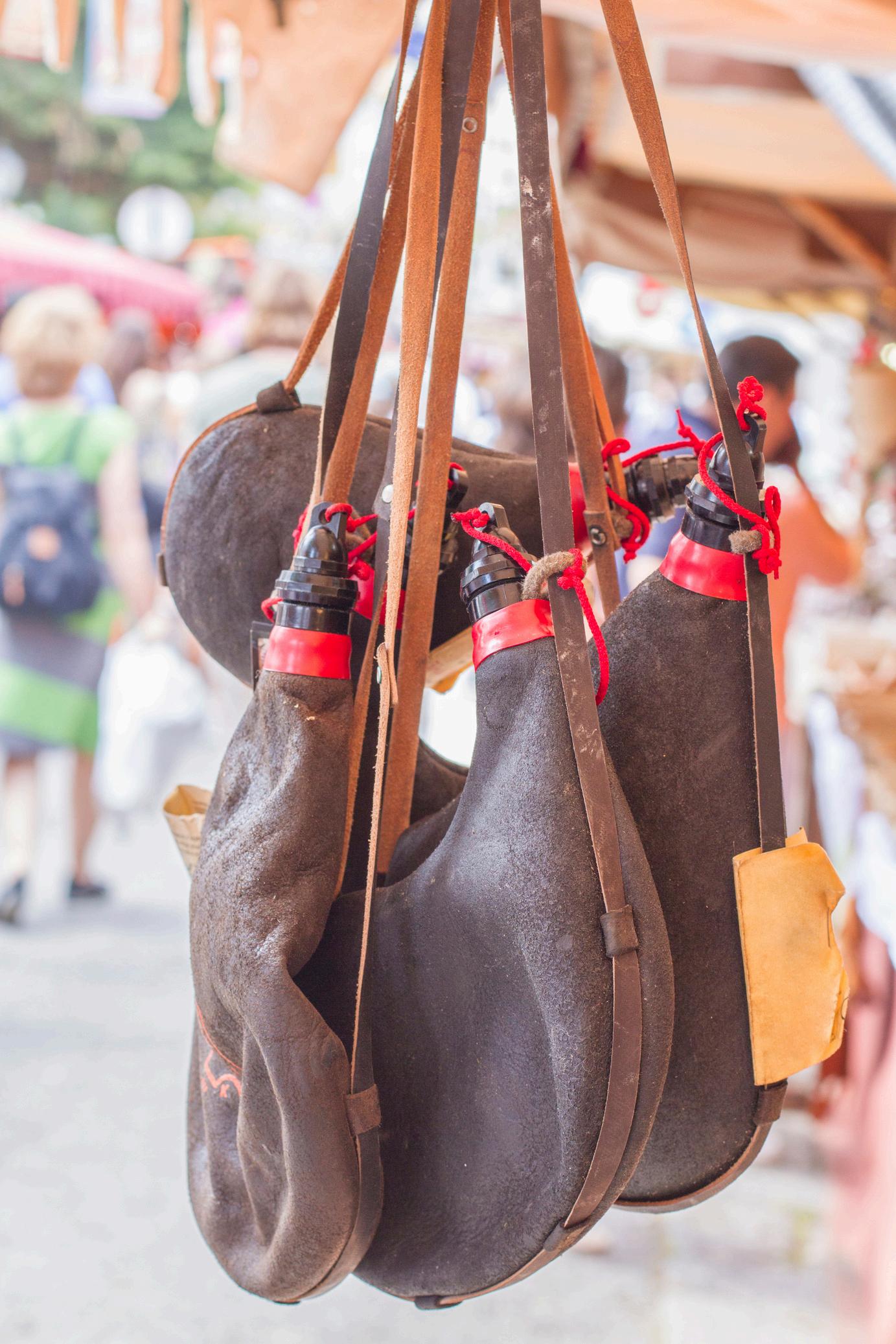
On Saturday, November 16, 2024, clergy and lay delegates of the Diocese of East Carolina will convene for a special convention, marking a significant shift in how our diocese approaches both its annual budget process and the timing of conventions. This special convention is a pathstone along the way as we transition to holding conventions in November rather than February to better align with the needs of our congregations, their leaders, and the diocese as a whole.
The 2025 budget drafting process, spearheaded by diocesan treasurer Tess Judge, Director of Finance and Administration LaTonya Smith, and the Finance Committee, has been underway since May. This year’s process is unique in that the budget will be formulated and approved before congregations submit their pledges. Previously, our budgets were finalized after receiving these pledges, but the new approach relies on past precedents and projections to build that part of the budget.
Key milestones in this process include the submission of ministry and personnel budget The first draft of the 2025 budget was completed July 31st, and throughout August, that draft budget continues to be refined. In September, the Finance Committee will present its budget recommendations to the Executive Council, which holds the authority to approve the draft. The proposed budget for 2025 will be made available ahead of the pre-convention meetings scheduled for October.


In the time approaching the special convention, clergy and lay delegates will receive the proposed 2025 budget in advance of a pre-convention meeting in October. The pre-convention meeting will primarily focus on reviewing the proposed budget. There will also be an opportunity to engage in conversation with Bishop Skirving and deputies to the 81st General Convention. Bishop Skirving will offer reflections in September, setting the stage for the GC81 discussion. Specific details for preconvention meeting will be shared soon.
The special convention on November 16th will bring together the 2024 delegates who served at the February convention earlier this year. These delegates will continue in their roles until new ones are elected in December and January, and these continuing delegates will be hearing directly about the details relative to our November 2024 convention in the coming months. Following the special convention and the approval of the 2025 budget, congregations will be asked to submit their pledges for the upcoming year. Delegates elected by their congregations to serve in 2025 will receive information about what to expect for a "year in the life of a delegate" as we embark on this pattern and timing change for our future conventions.
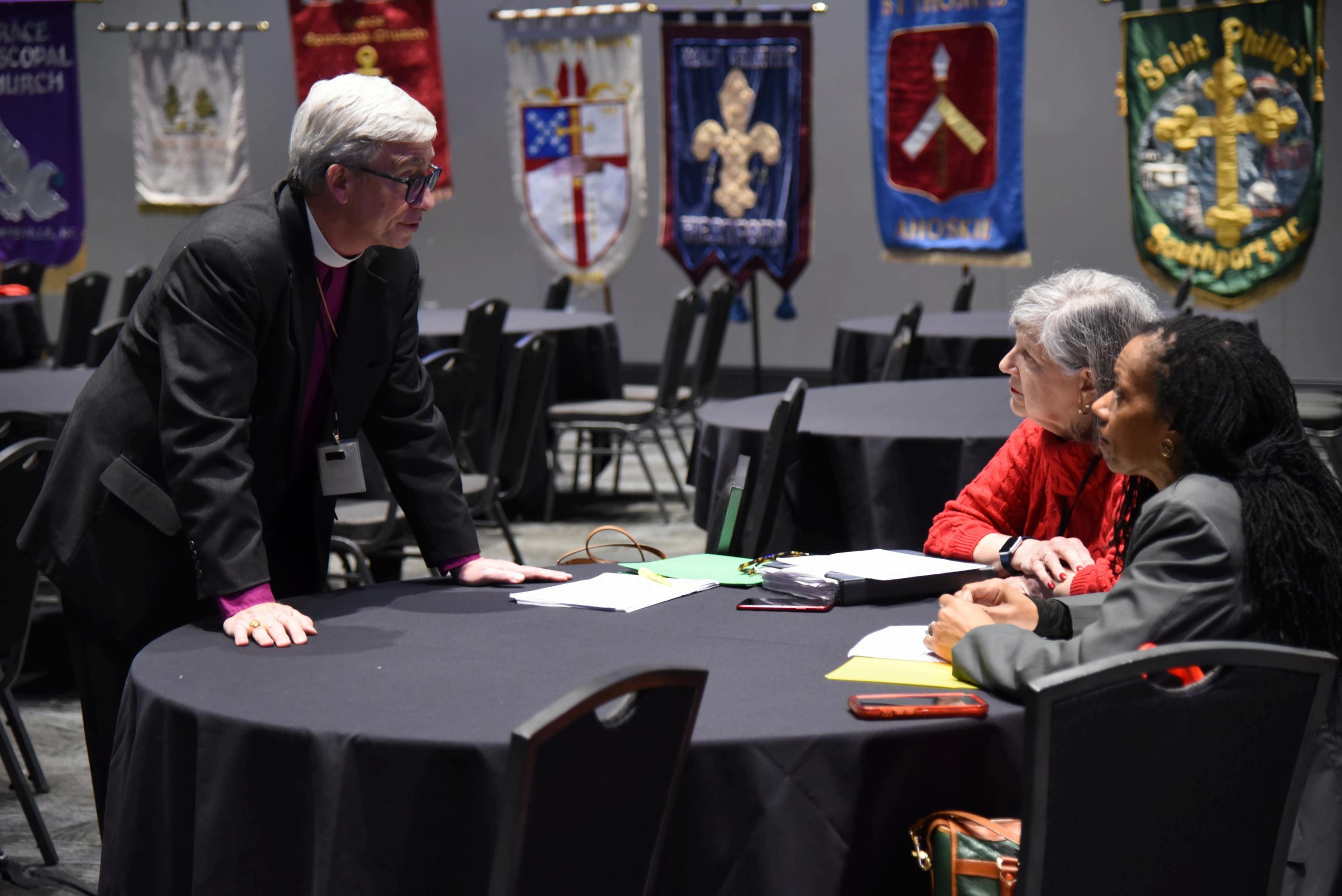
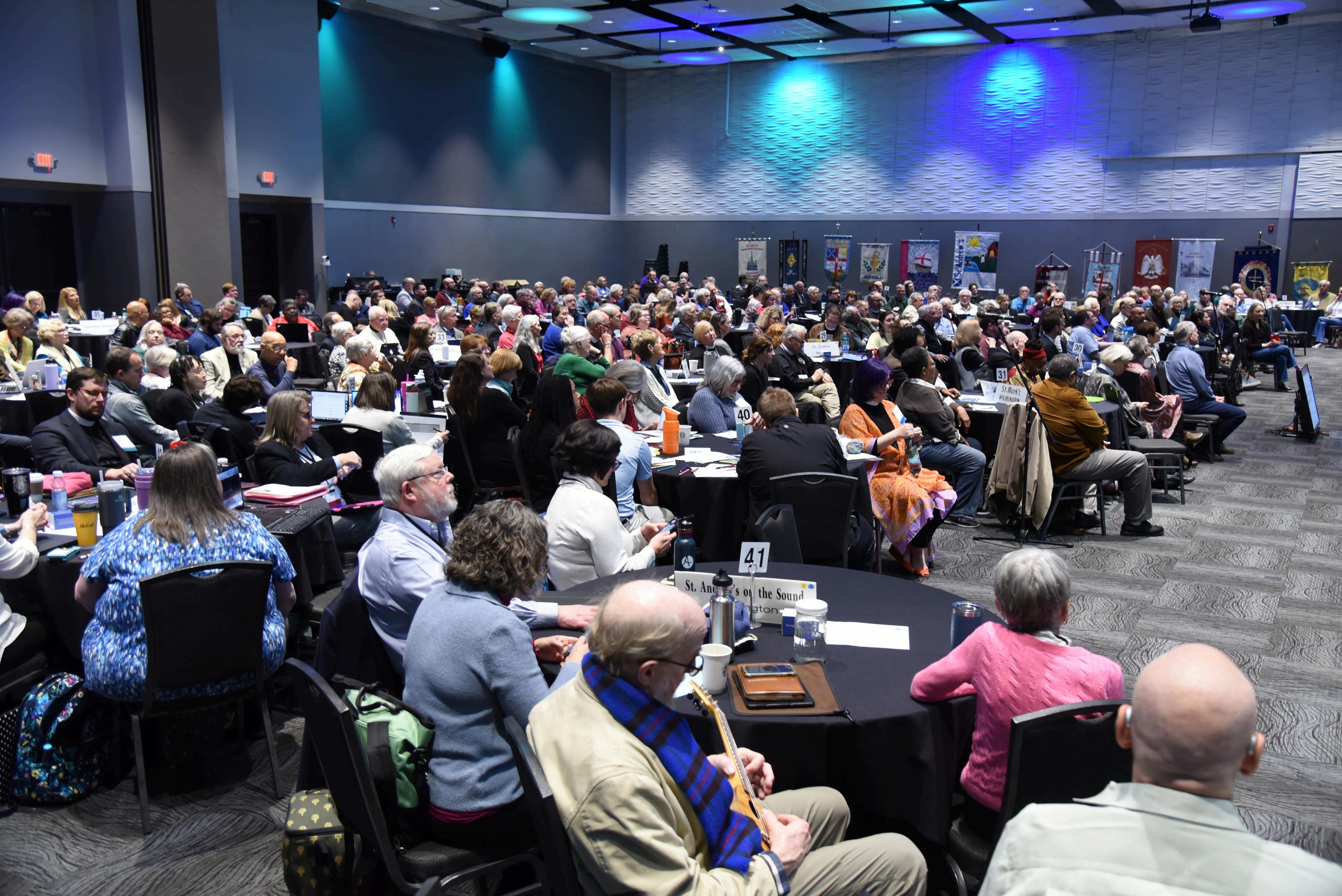
LaTonya Smith notes that this shift in the timing of convention makes financial sense for the diocese. By having an approved budget in place by January, the diocese can ensure smoother operations throughout the year. Both Smith and Judge agree that the Finance Committee is a great one and that their collaborative work has been strong while navigating this new process and timeline.
Moreover, the decision to move our conventions from February to November addresses the challenges that congregational leaders face during the busy December-January period. During these months, leaders are often overwhelmed with setting budgets, electing new leaders, and preparing for the convention all while celebrating the Advent and Christmas seasons with congregations and family. By shifting the timing to November, we aim to foster greater collaboration and engagement in diocesan life, ministry, and governance, ultimately better supporting both congregational and diocesan leadership.
This change represents a renewal in our patterns, which Bishop Skirving called the creation of “new wineskins” in his address to convention in February of this year. By aligning our convention timing with the needs of our congregations, we ensure that we are effectively supporting the work we believe God is doing in our community.
As we look ahead to the November convention and the new rhythm it introduces, we are reminded of our commitment to adapt and grow in ways that best serve the spiritual, leadership, and administrative needs of our diocese. We are not just shifting the schedule, we are also deepening our collective effort to support God’s work in our midst.


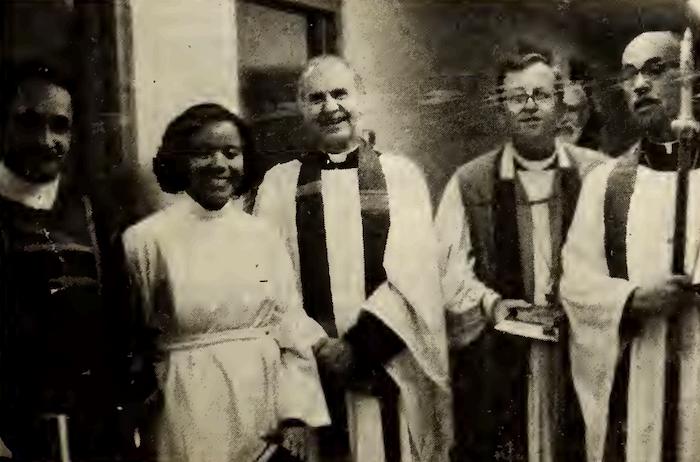
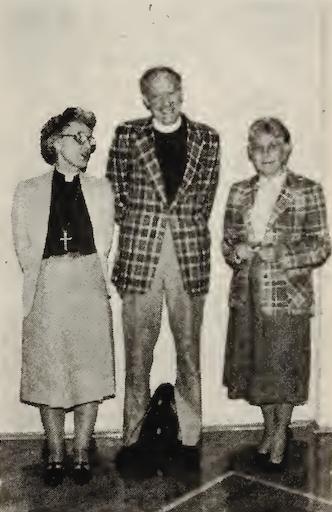
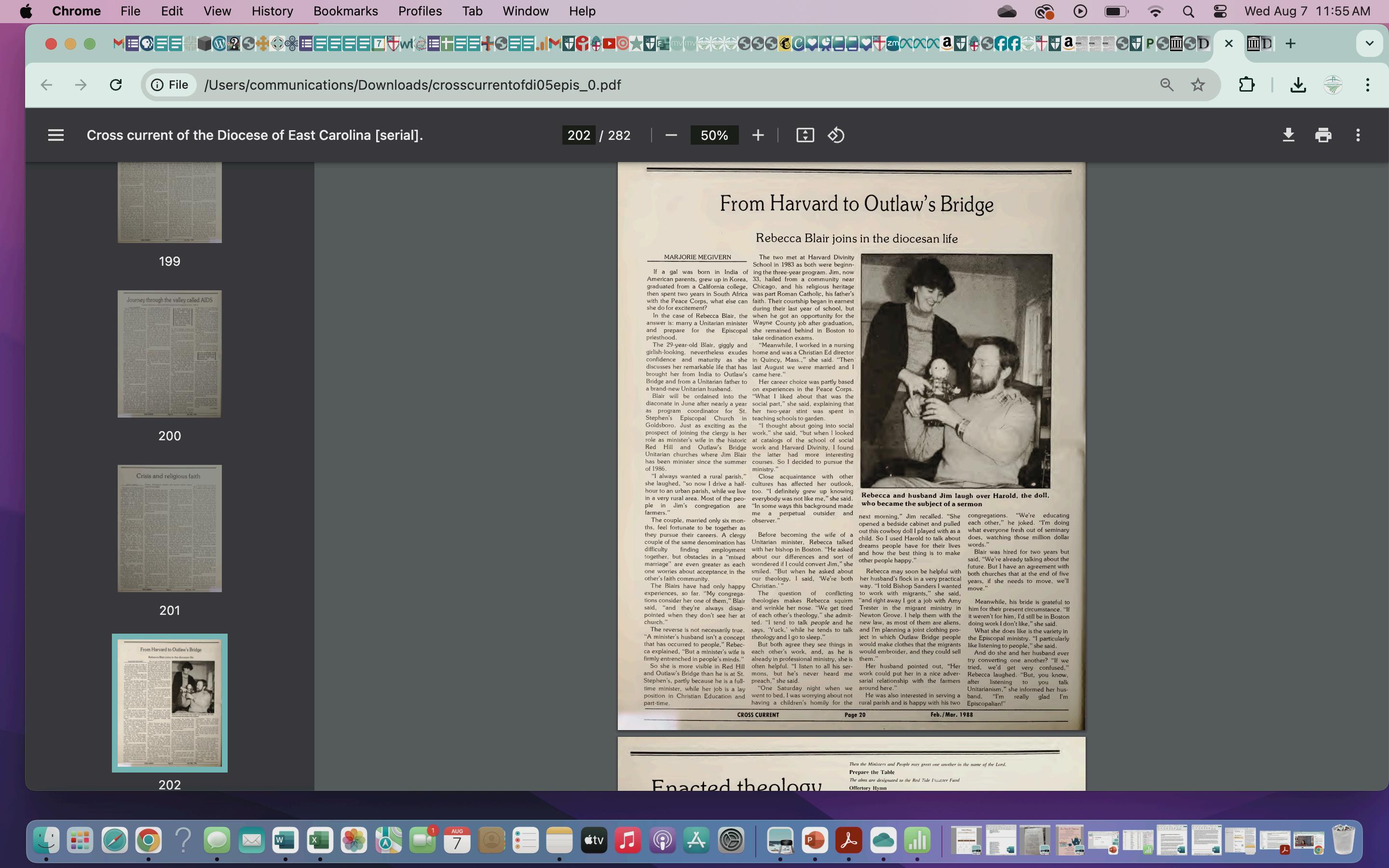


This July marked the 50th anniversary of women ’ s ordination to the priesthood in The Episcopal Church. To celebrate, we ’ re sharing profile stories, photos, and a roll call of women priests of our diocese. On the next pages, you’ll see a timeline of when women priests joined our diocese with calls, transfers, or ordinations. We’ve had a steady stream of women joining each year, enriching the diversity and perspectives that we all benefit from. We celebrate these priests, while also recognizing the challenges that women clergy have encountered since the Philadelphia Eleven and prior. Please join us in lifting up prayers for the extraordinary women priests here in our diocese and across the church!
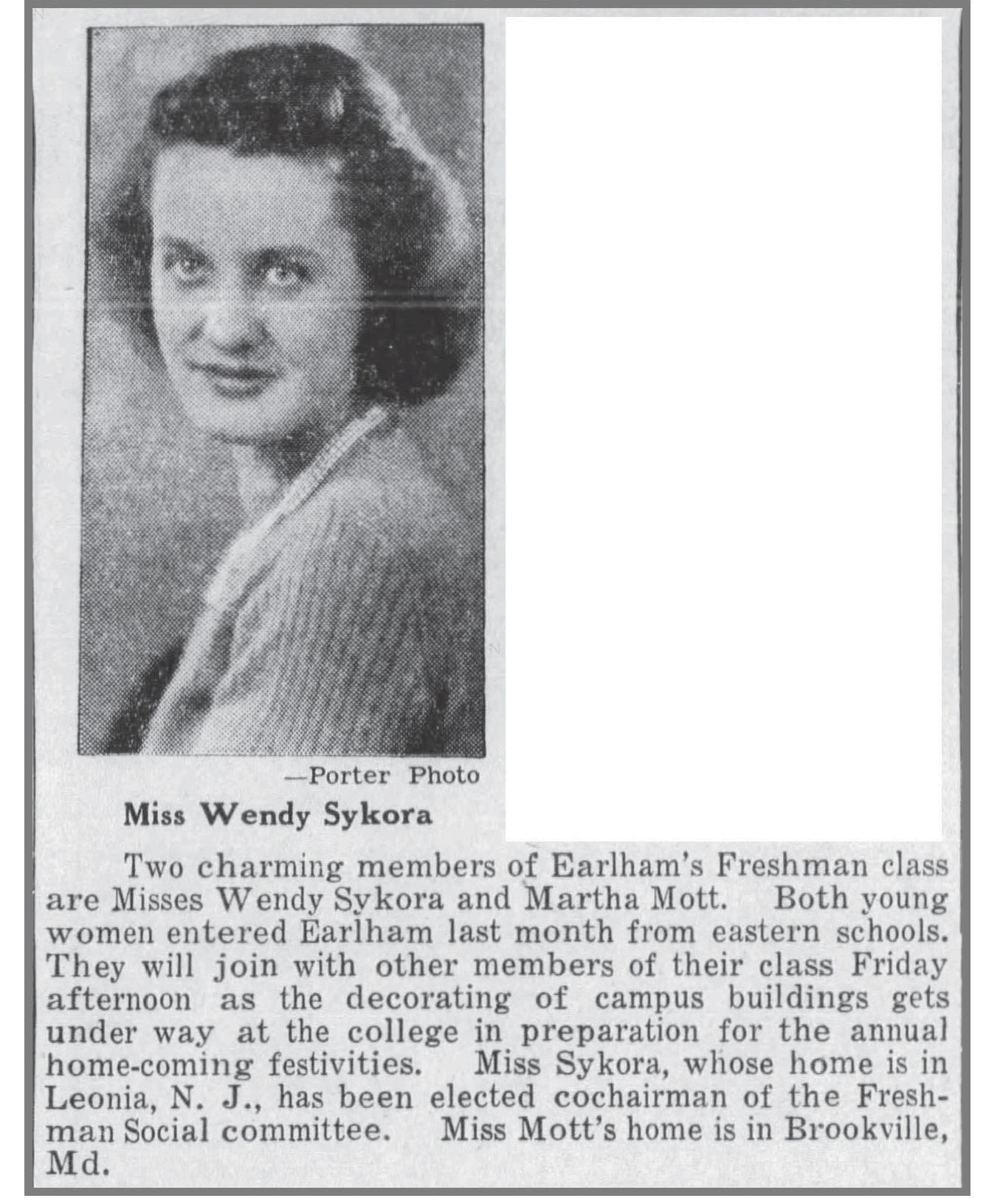
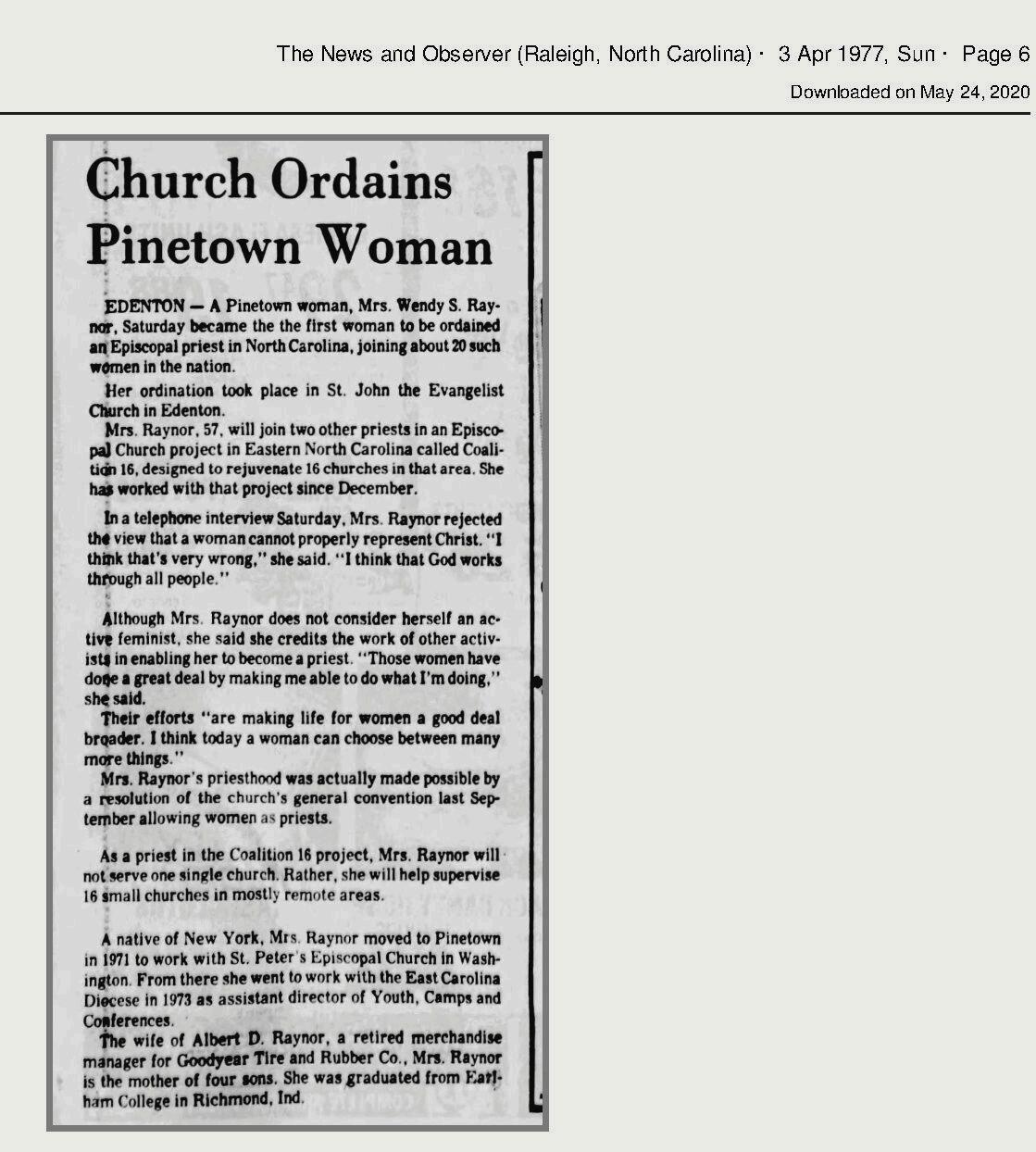
1977
The Rev. Wendy Raynor (Coalition 16)
1981
The Rev. Michelle Thornton (St. Augustine’s, Kinston and St. Andrew’s, Goldsboro)
1983
The Rev. Lucy Talbott (St. Paul’s in the Pines, Fayetteville)
1989
The Rev. Katherine Davie Awbry (St. Peter’s, Sunbury)
The Rev. Ashley Hunt (St. Thomas, Windsor)
The Rev. Bonnie Smith (St. Augustine’s, Kinston)
1990
The Rev. Beverly Weatherly (St. Andrew’s, Wilmington)
1991
The Rev. Hilary West (St. Andrew’s, Nags Head)
The Rev. Maxine Maddox (St. John’s, Wilmington)
1992
The Rev. Pamela Miller (St. Christopher’s, Havelock)
1993
The Rev. Carolyn (Carrie) Craig (St. Timothy’s, Greenville)
1994
The Rev. Barbara B. Chaffee (St. Thomas, Windsor)
The Rev. Gwynneth Mudd (St. Peter’s, Washington)
The Rev. Carolyn West (Christ Church, New Bern)
1995
The Rev. Nan Chandler (All Souls, Northwest)
The Rev. Janet Tarbox (St. James, Wilmington)
1996
The Rev. Hazel Glover (Grace, Whiteville)
The Rev. Kimberly Spire (St. Peter’s, Washington)
1997
The Rev. Marjorie McCarty (St. Christopher’s, Havelock)
1998
The Rev. Bonnie Clarke (St. Augustine’s, Kinston)
The Rev. Pamela Stringer (Holy Trinity, Hampstead)
The Rev. Martha Honaker (Holy Trinity, Fayetteville)
The Rev. Patricia D. Pierce (St. Peter’s, Washington)
The Rev. Margaret Shepard (All Saints, Southern Shores)
The Rev. Angela R. Christman (Nonparochial)
1999
The Rev. Dr. Pat Thomas (Christ Church, New Bern)
The Rev. Rebecca Blair (Ordained)
The Rev. Fredericka A. Steenstra (Church of the Good Shepherd, Wilmington)
2000
The Rev. Deborah Fox (Church of the Good Shepherd, Wilmington)
The Rev. Shirley McWhorter (St. Peter’s, Washington)
2001
The Rev. Christine Carlin (St. Timothy’s, Greenville)
The Rev. Margaret Neill (St. Paul’s, Wilmington)
2003
The Rev. Eunice Dunlap (Holy Trinity, Fayetteville)
The Rev. Mary Ogus (St. Paul’s, Clinton)
The Rev. Lynn C. Peterman (St. James, Wilmington)
2004
The Rev. Louanne Mabry Loch (St. John’s, Fayetteville)
The Rev. Anne Natoli (Grace, Whiteville)
2006
The Rev. Blair Both (Church of the Servant, Wilmington)
The Rev. Adele Dees Hatfield (St. James, Wilmington)
2007
The Rev. Catherine Davis-Daurs (St. James the Fisherman, Shallotte)
The Rev. Mary Francis Curns (Christ Church, New Bern)
The Rev. Margaret Hutchins (Retired)
The Rev. Jill Biemdick (Holy Trinity, Fayetteville)
2008
The Rev. Ann Bonner-Stewart (St. Paul’s, Greenville)
2009
The Rev. Mary Lacy (St. Timothy’s, Greenville)
The Rev. Catherine Powell (St. Paul’s, Wilmington)
2010
The Rev. Mary E. Reese (St. Stephen’s, Goldsboro)
The Rev. Ann Willms (Ordained)
The Rev. Ellen Richardson (Church of the Advent, Williamston)
2012
The Rev. Susan Rainey Dankel (Ordained)
2013
The Rev. Teddra Hussey-Smith (St. John’s, Fayetteville)
2014
The Rev. Dena Bearl (Lower Cape Fear Deanery)
The Rev. Judith Reese (Holy Trinity, Fayetteville)
The Rev. Kamila Blessing (St. John’s, Wilmington)
The Rev. Betty Glover (St. Philip’s, Southport)
2015
The Rev. Donna Kraus (ECU and Pitt Community College Campus Ministry)
The Rev. Anne Thornberg (Nonparochial)
The Rev. Margaret Finnerud (St. Philip’s, Southport)
2016
The Rev. Sarah Smith (St Andrew's On-the-Sound, Wilmington)
The Rev. Alice Webster (Christ Church, Elizabeth City)
The Rev. Cortney Dale (Christ Church, New Bern)
The Rev. Cynthia Duffus (St. Anne’s, Jacksonville)
The Rev. Sara Saxe (Zion, Washington)
The Rev. Jane Lowe Davis (Retired)
2017
The Rev. Marcia McCrae (St. Francis, Goldsboro)
The Rev. Chana Tetziaff (Holy Cross, Wilmington)
The Rev. Dr. Nancy Lee Jose (Retired)
2018
The Rev. Lori Thompson (Trinity, Chocowinity)
The Rev. Jody Greenwood (Church of the Servant, Wilmington)
The Rev. Barbara Bornemann (Christ Church, New Bern)
The Rev. Tambria (Tammy) Lee (St. Paul’s, Beaufort)
2020
The Rev. Kate Byrd (St. Francis, Goldsboro)
The Rev. Michelle Bullock (St. Peter’s By-the-Sea, Swansboro)
The Rev. Cindy Simpson (All Saints, Southern Shores)
The Rev. Cheryl Brainard (St. James, Wilmington)
2021
The Rev. Canon Mollie Roberts (Canon for Diocesan Life & Leadership)
The Rev. Nancee Cekuta (Holy Trinity, Fayetteville)
The Rev. Constance (Connie) Conelly (Church of the Advent, Williamston)
The Rev. Margaret Pollock (Retired)
2022
The Rev. Lisa Erdeljon (St. Philip’s, Southport)
The Rev. Leslie Roraback (Saint Andrew’s On-the-Sound, Wilmington)
The Rev. Katherine Mitchell (St. Peter’s, Washington)
The Rev. Fanny Belanger (All Souls, Northwest)
2023
The Rev. Ashley Simpson (St. Paul’s, Beaufort)
The Rev. Suzanne Hood (Christ Church, New Bern)
The Rev. Anne Abdy (Holy Cross, Wilmington)
The Rev. Anne Dale (Christ Church, Elizabeth City)
The Rev. Canon Stephanie Allen (Canon for Leadership Development)
The Rev. Tara Bartal (Ordained)
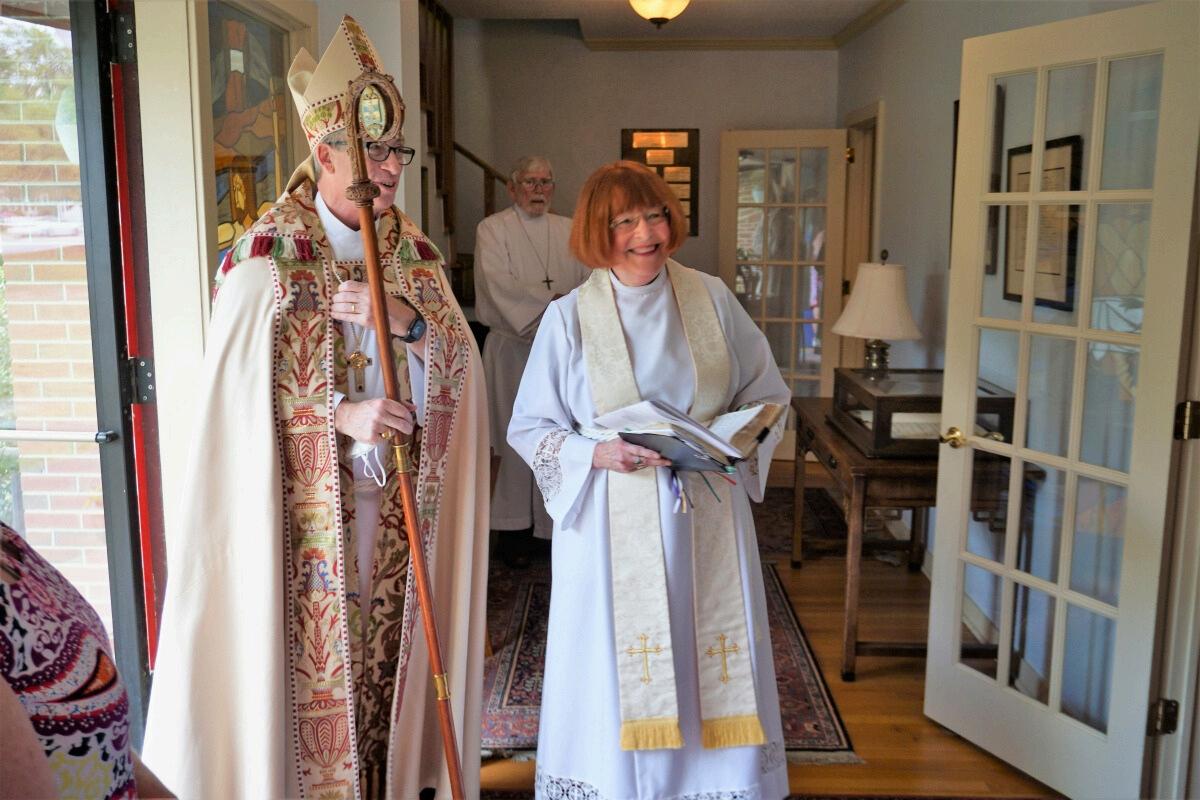
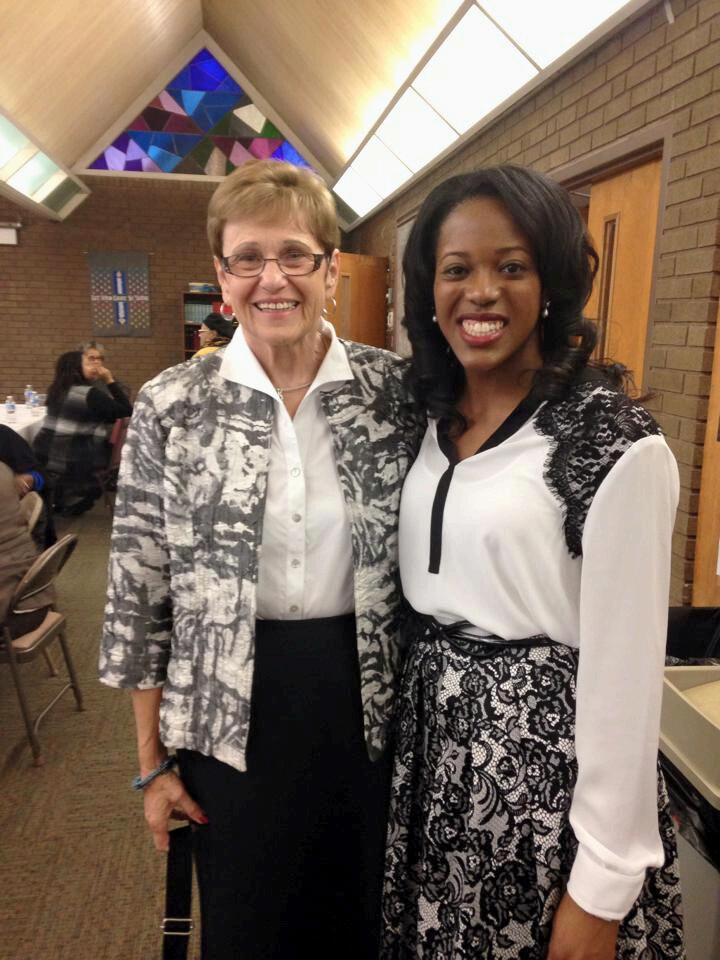
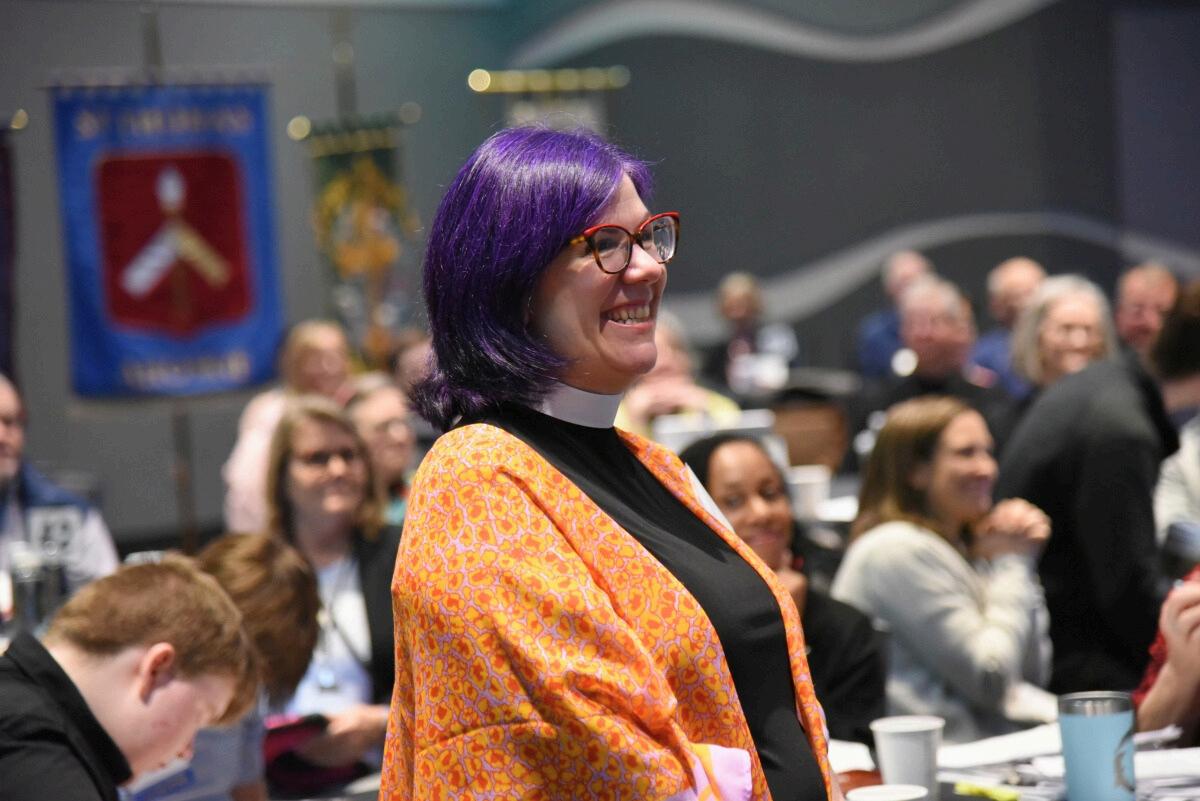
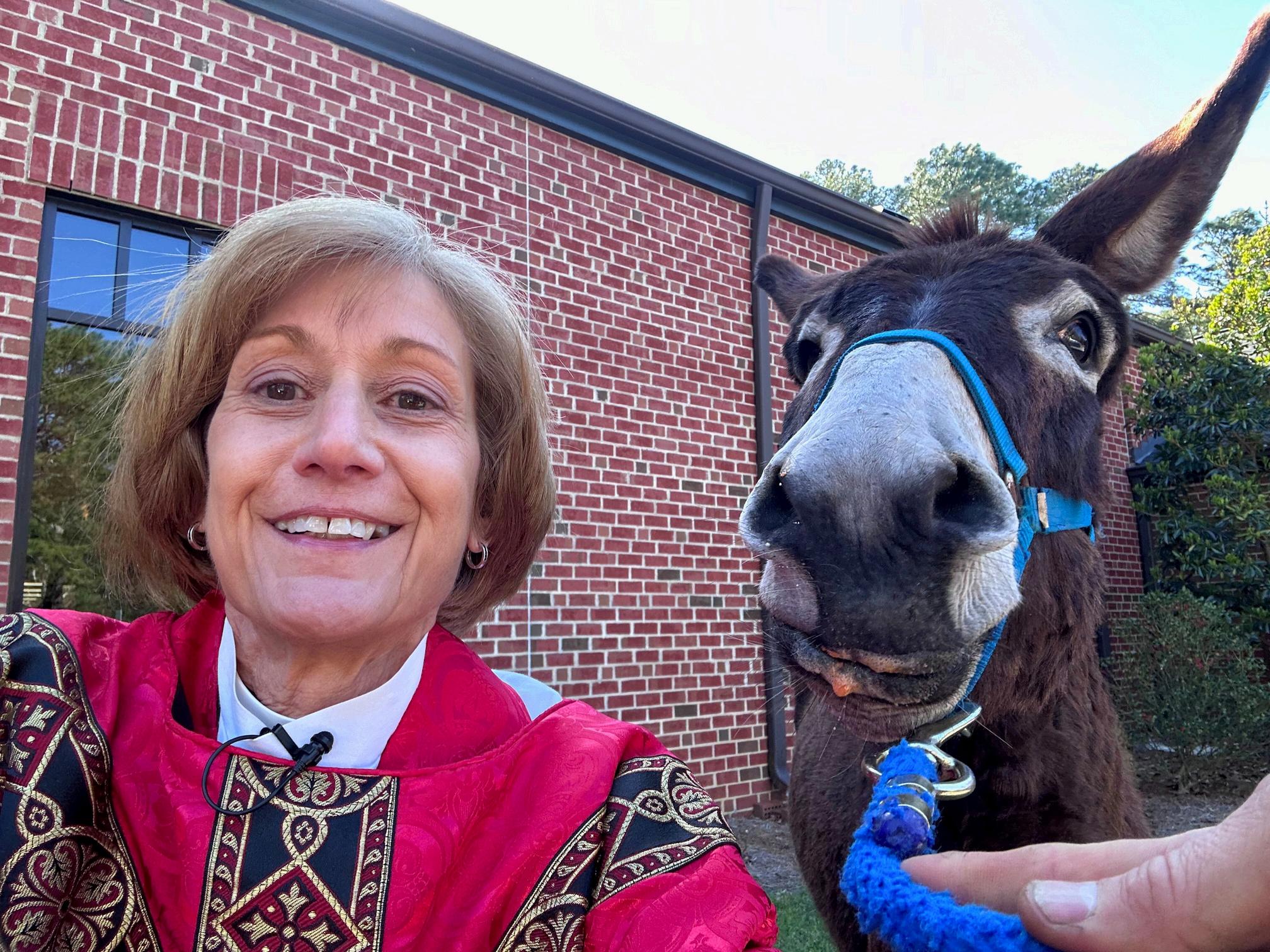

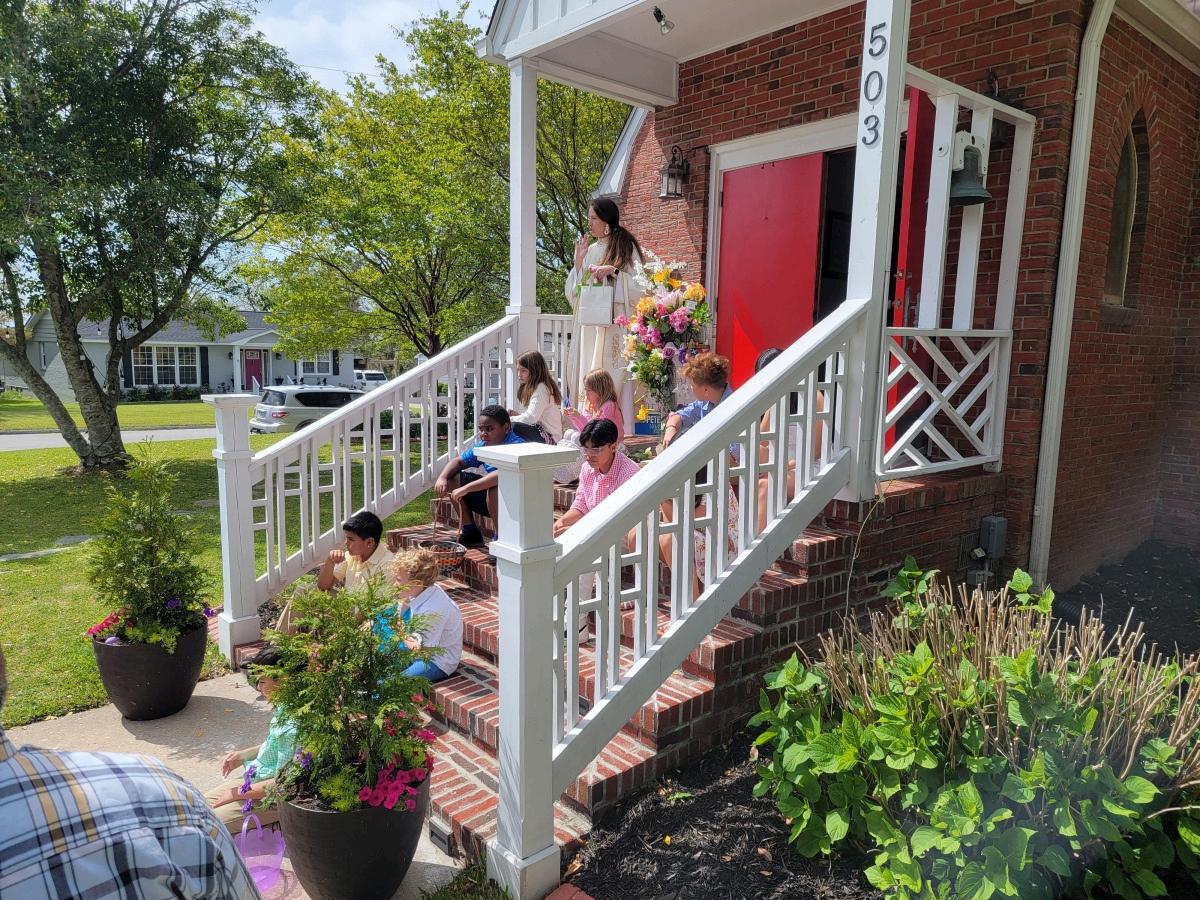



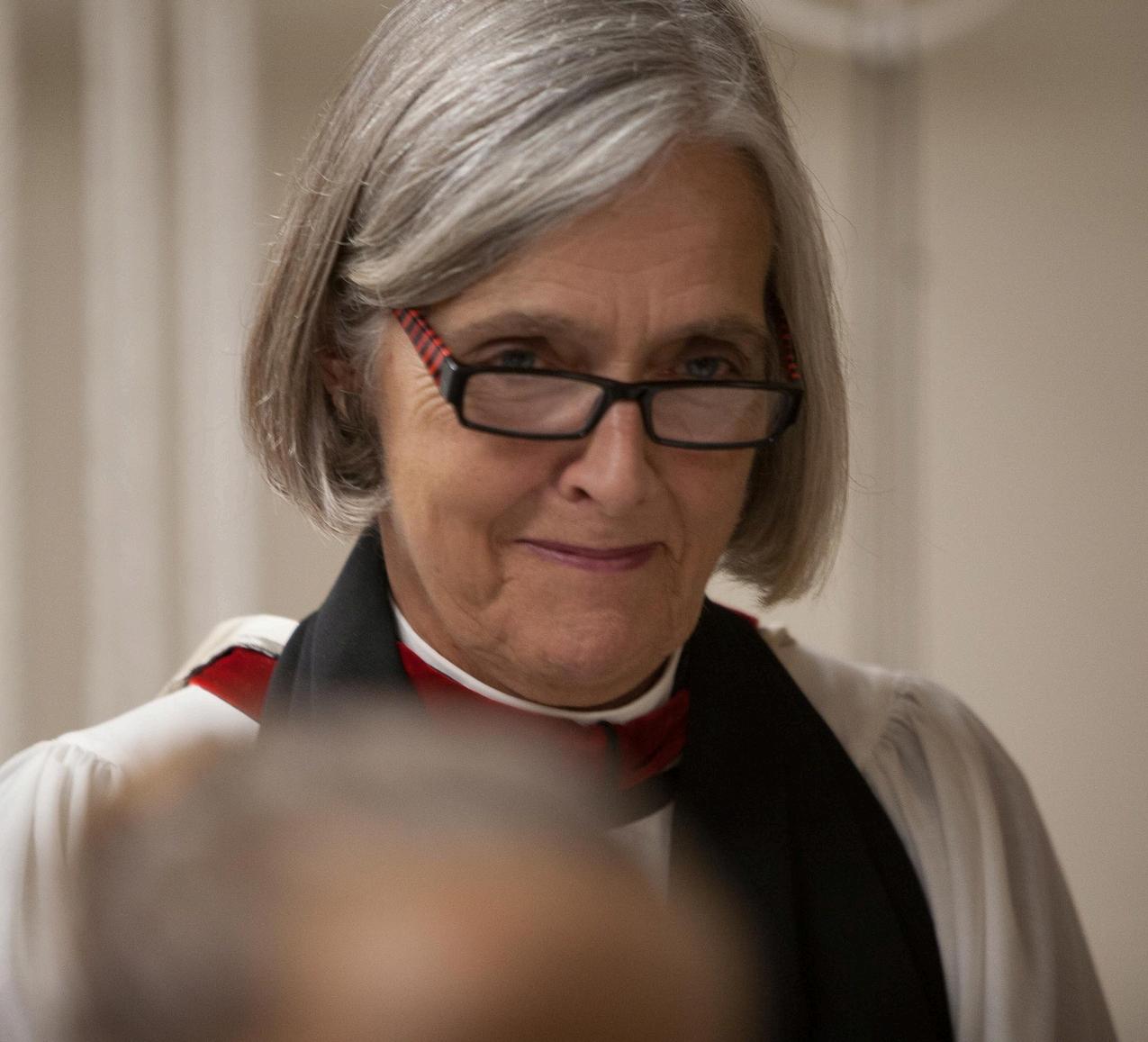
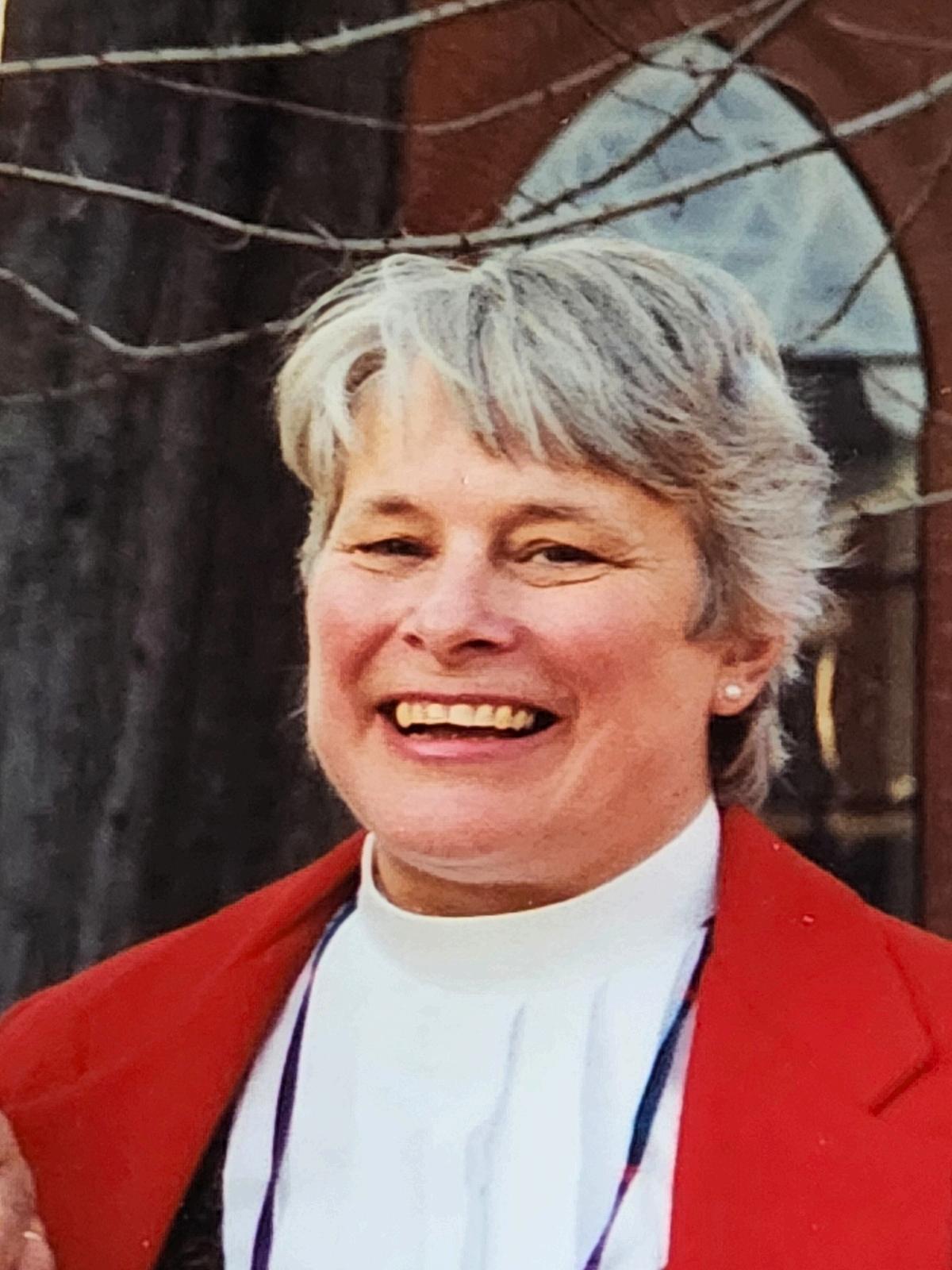
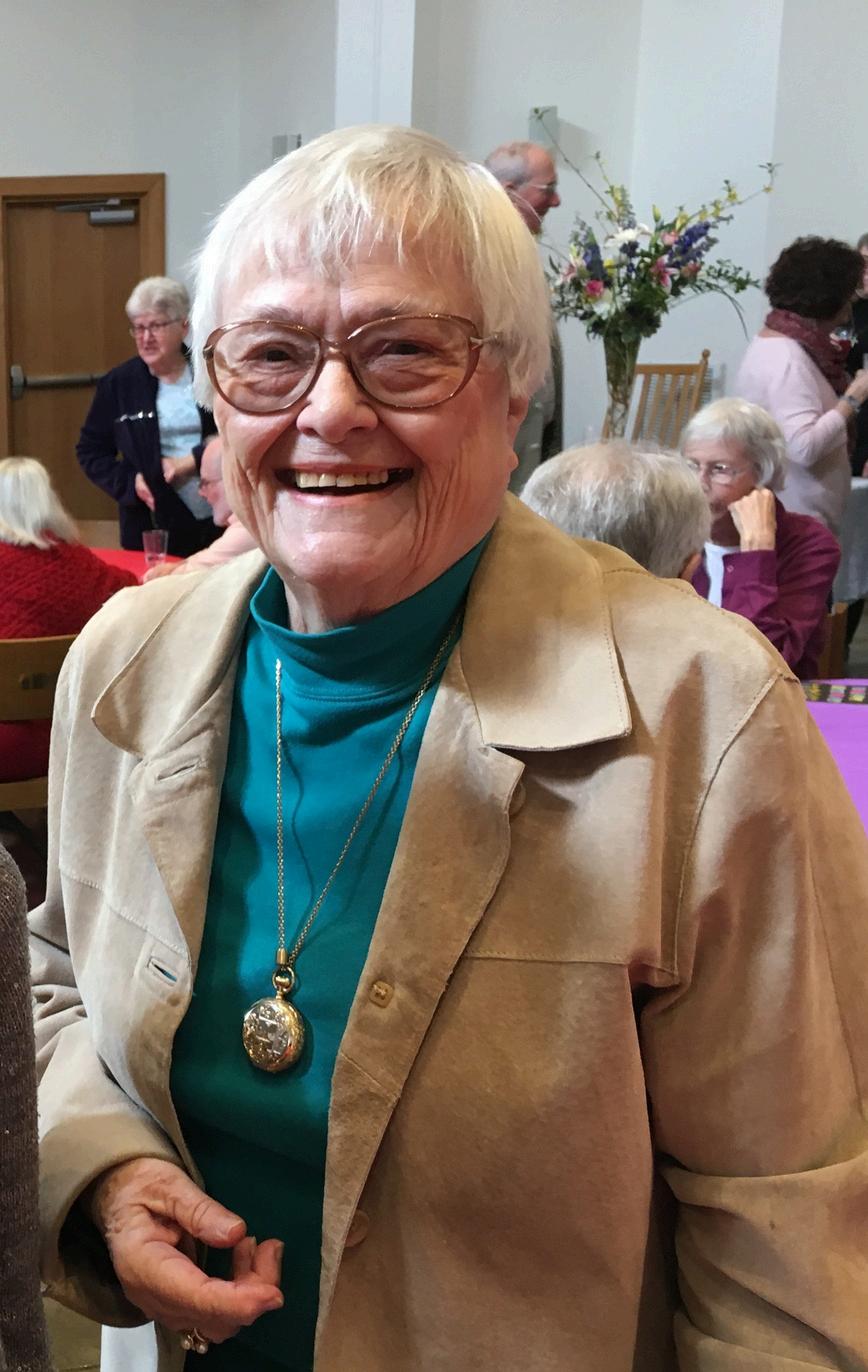
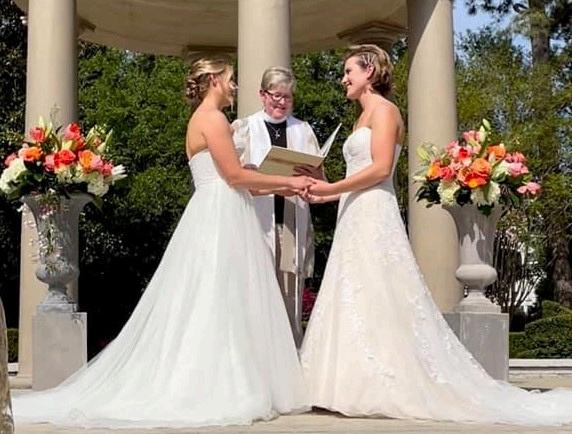
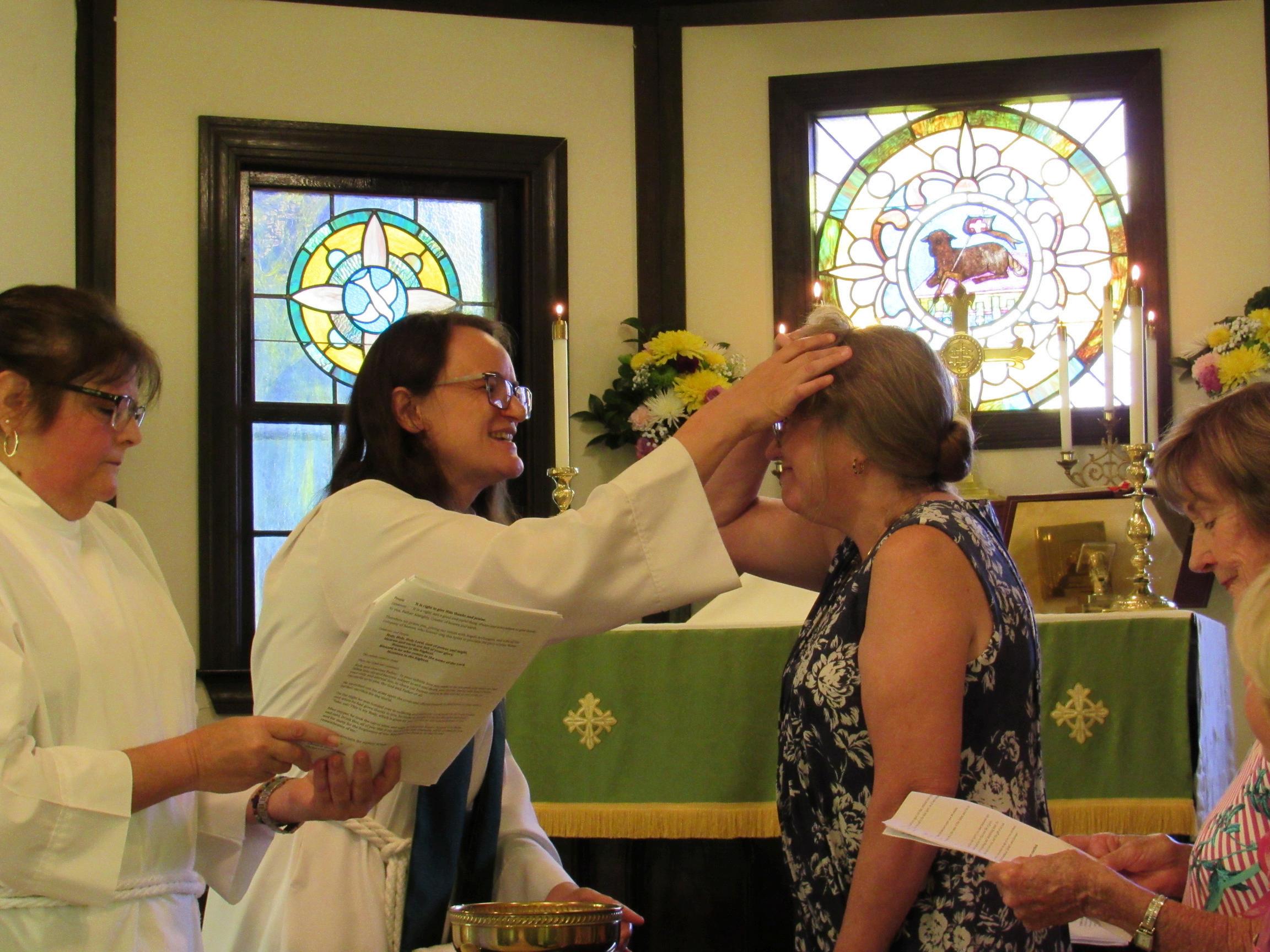
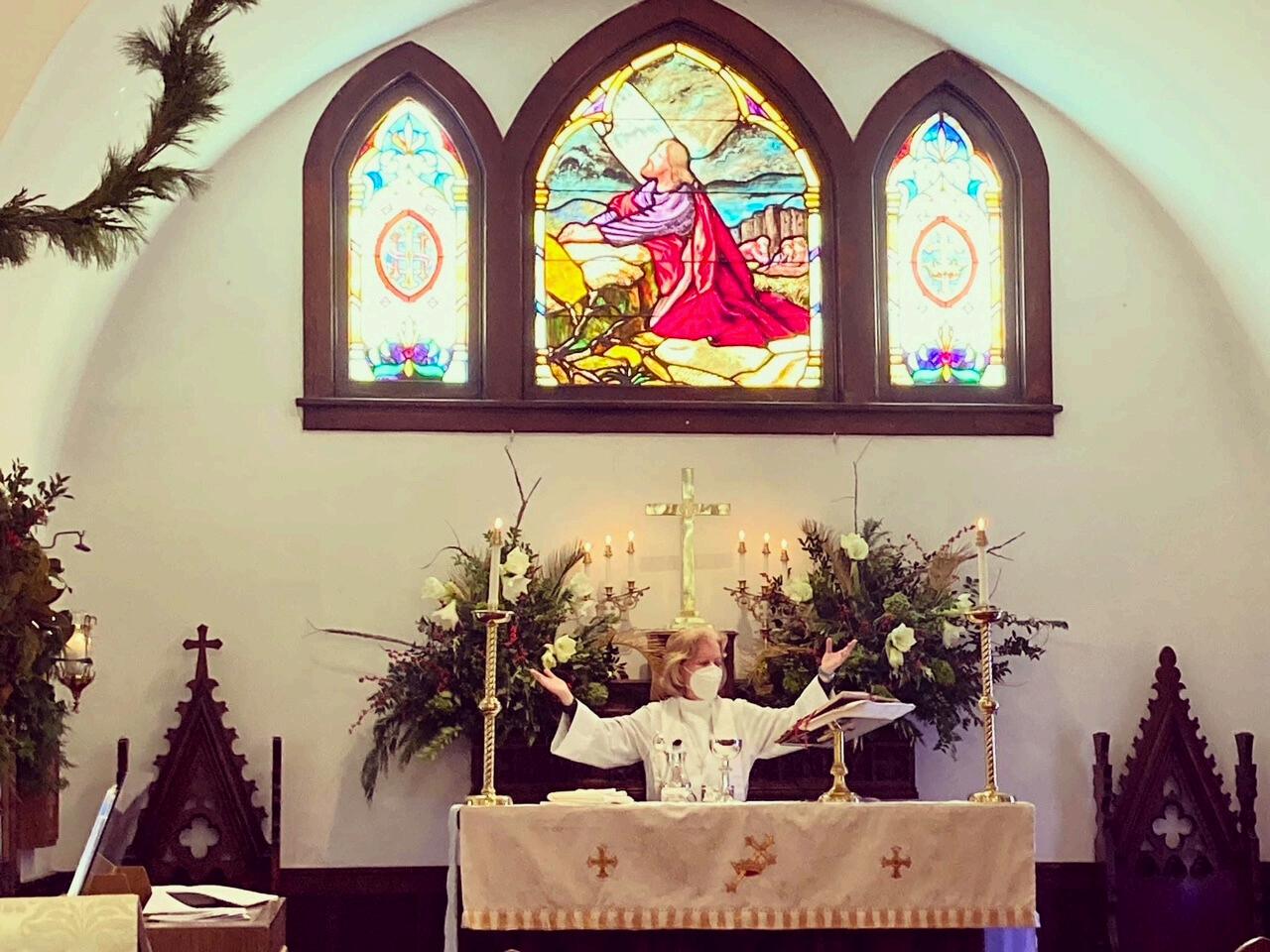
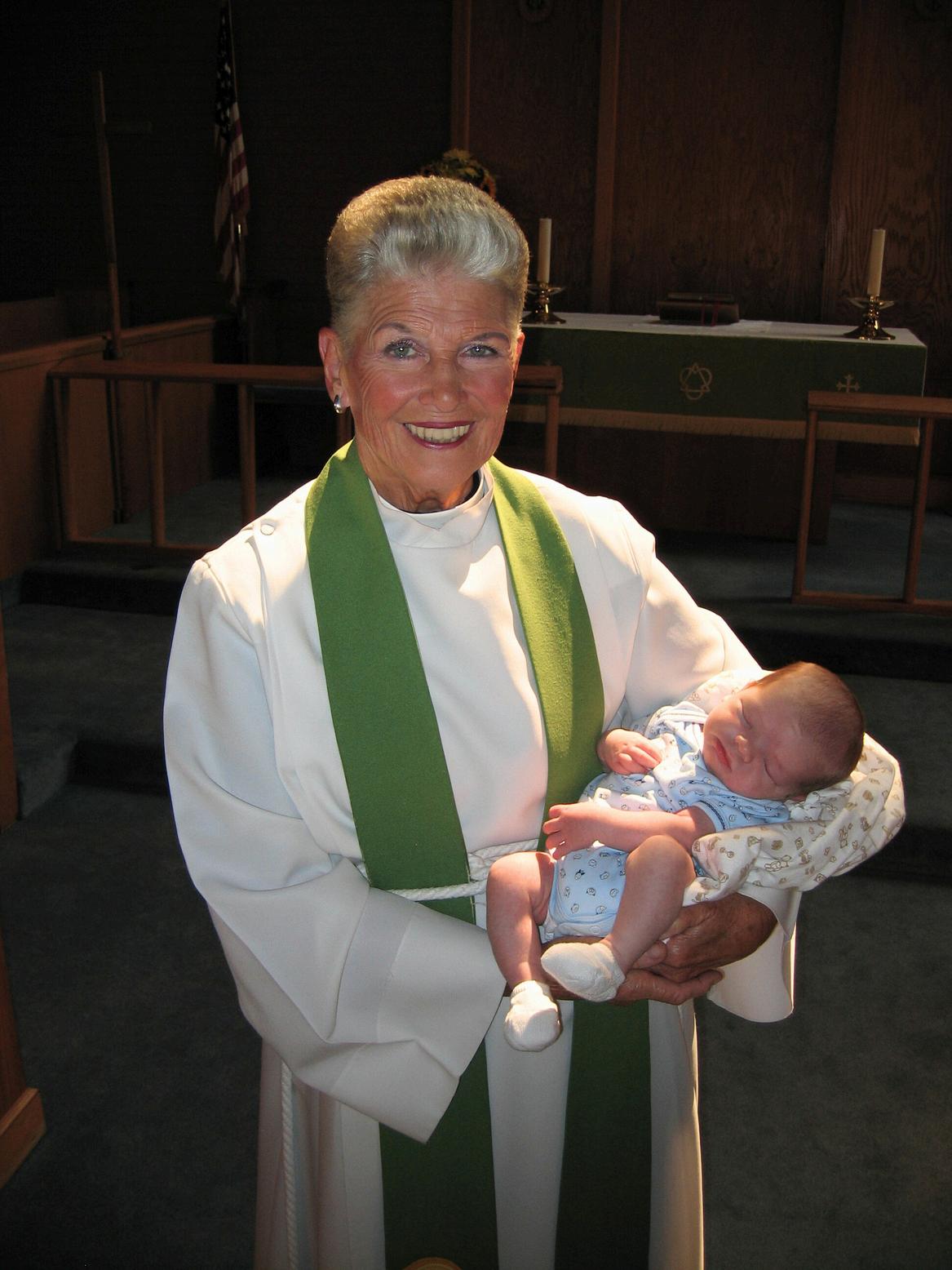

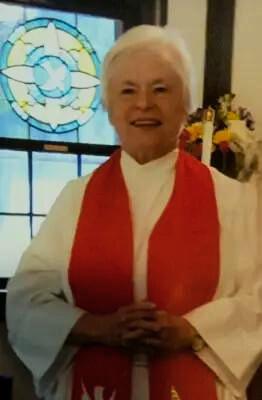
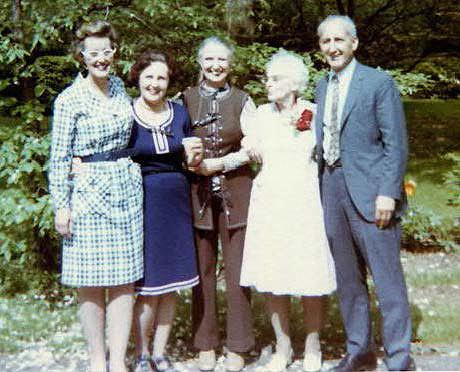
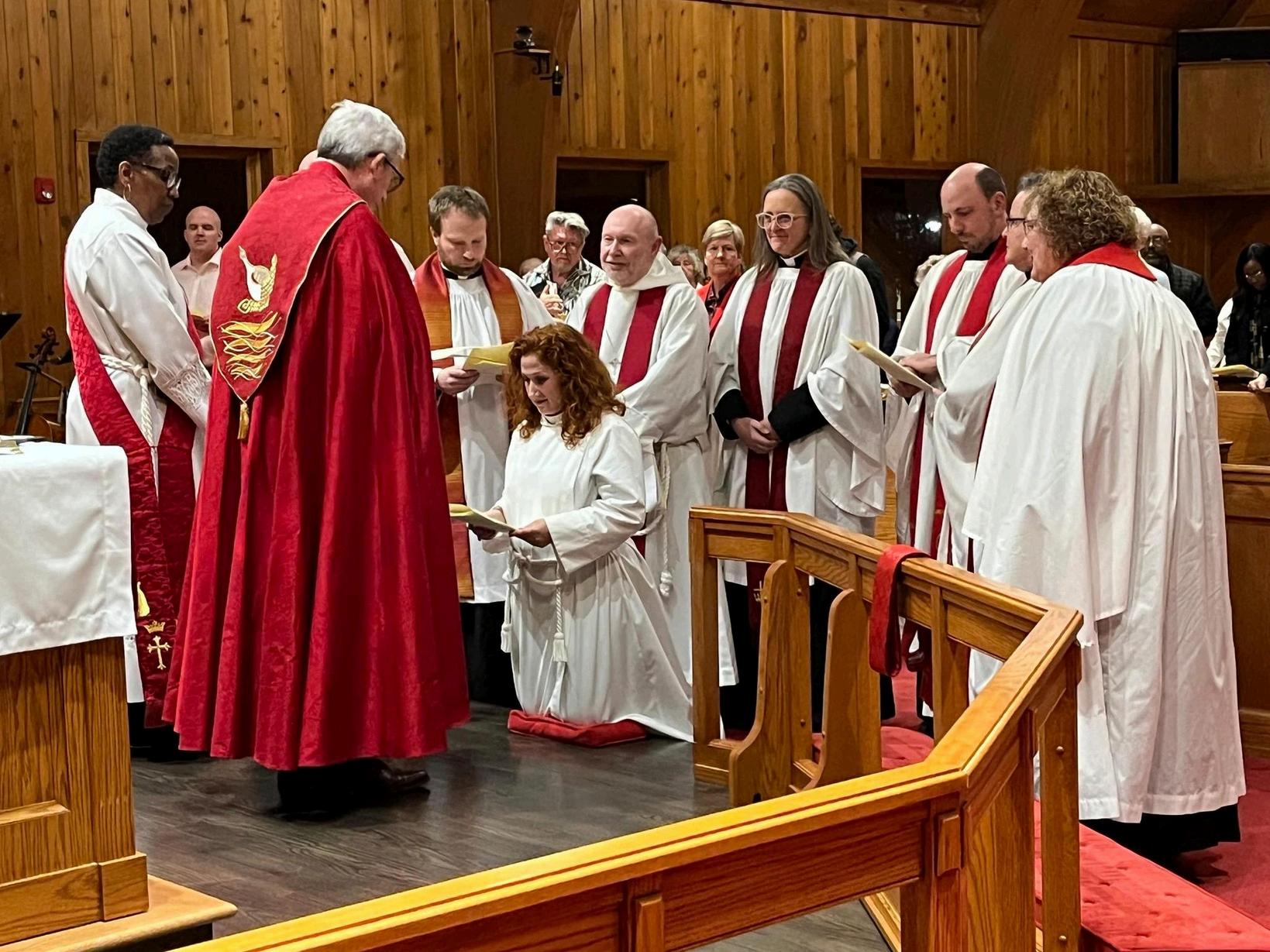


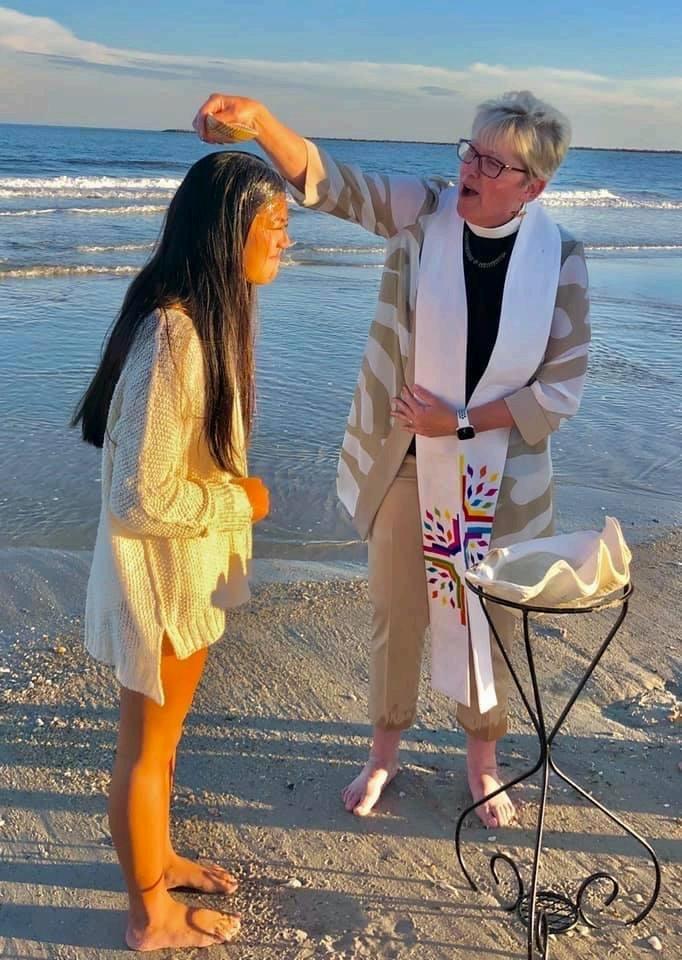
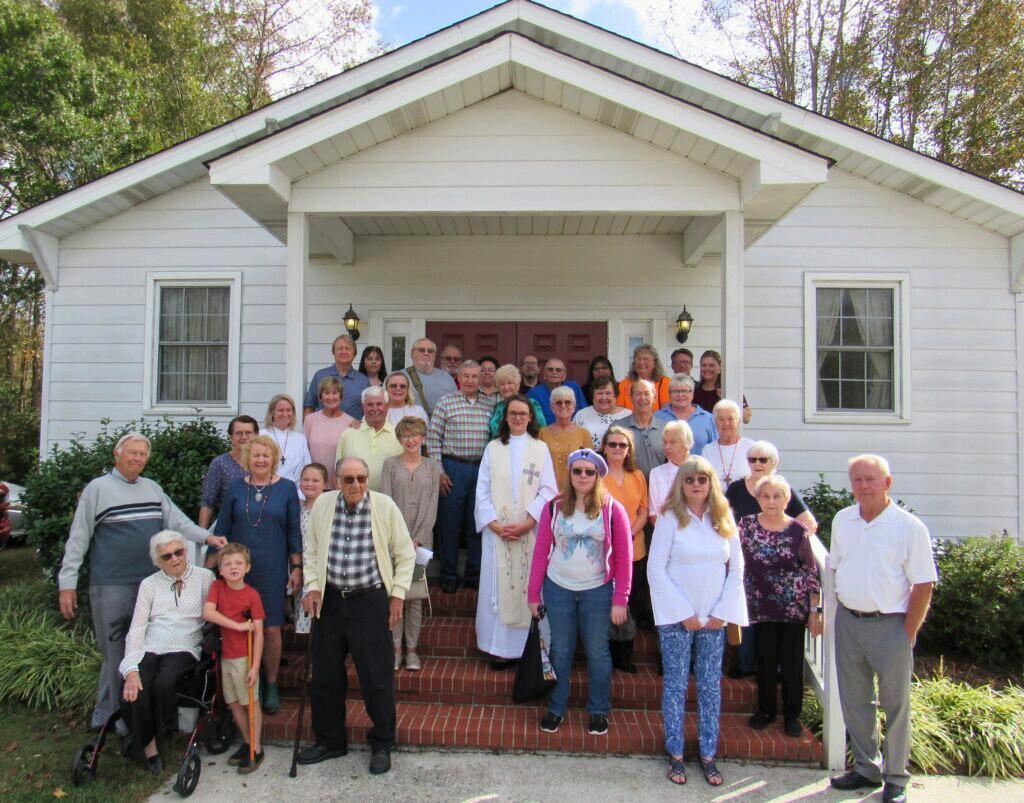
As a student at Converse College, a women's college in my home state of South Carolina, I began to wonder if God was calling me to the priesthood. Professor Dennis M. Campbell, who later became Dean of Duke Divinity School, had introduced us to feminist theology and the fact that The Episcopal Church had recently begun ordaining women. However, I had never even met a female priest.

In late 1977 or 1978, The Episcopal Church held a conference in Cleveland, Ohio, on the lay and ordained ministry
of women. I drove from SC to Cleveland in order to meet some of the women. As I approached the hotel elevator, I saw two women waiting. One was wearing a clerical collar, and one was not The woman in the collar introduced herself as Wendy Raynor, from The Diocese of East Carolina. I soon learned that she was the first and, at the time, the only female priest in East Carolina. With her was Ruth Woodley, an active layperson in the diocese.
Wendy offered to meet with me and field my questions. While I don’t remember the details of
that conversation, I will always remember her kindness and encouragement at a pivotal time in my life.
Unfortunately, when providence brought me to East Carolina in 1989, Wendy had died. However, Ruth was still very active, and we enjoyed reconnecting at diocesan convention and other events.
When I returned home from that conference, I began to explore the possibility of ordination in my home diocese of Upper South Carolina (based in Columbia).
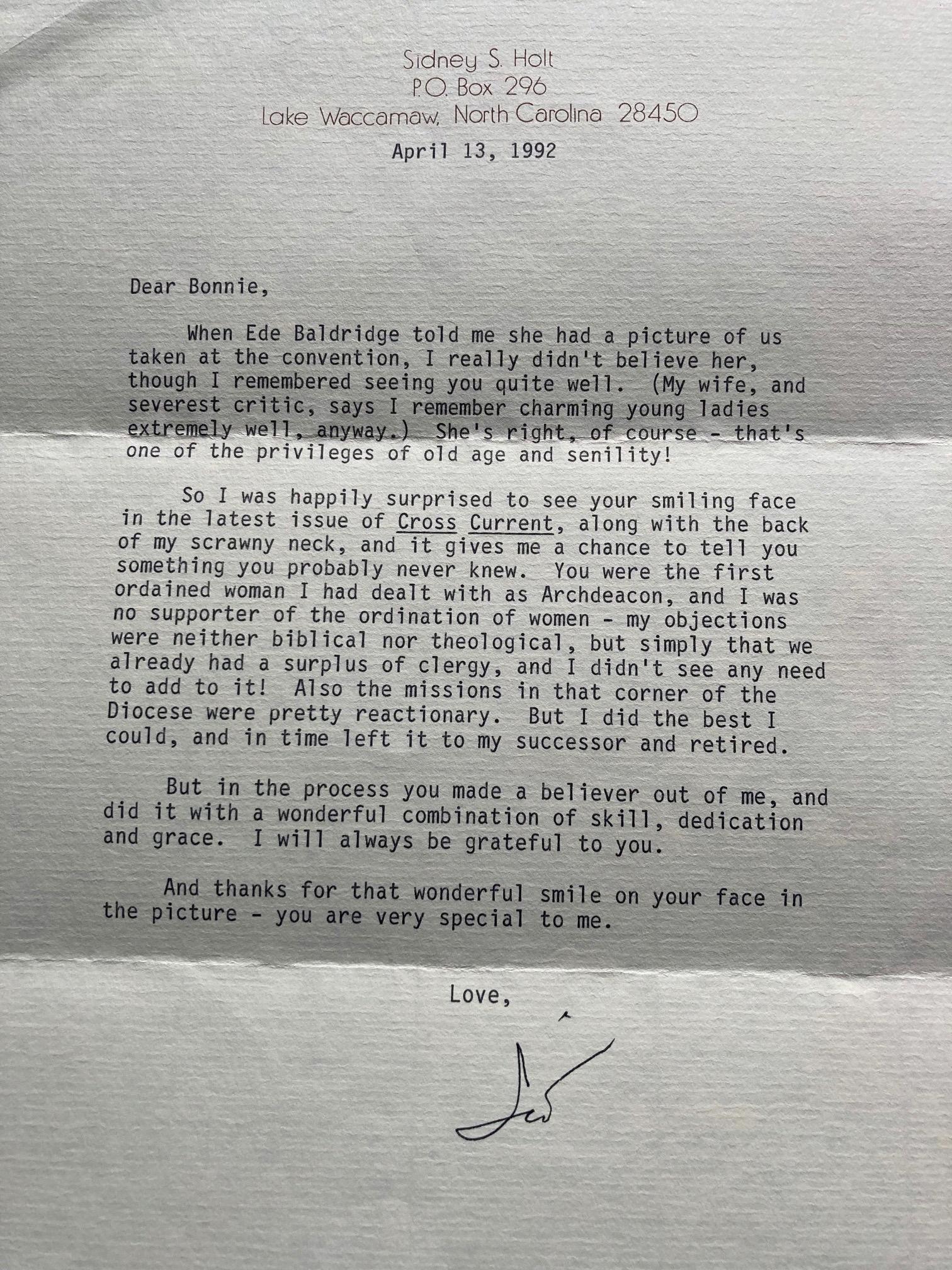
Another South Carolina/East Carolina connection for me: The Rev. Sid Holt was Archdiocesan in The Diocese of South Carolina from 1983-1984, which covered the beginnings of my ordained ministry there. As Archdeacon, he had responsibility for issues related to my employment. In 1984 he retired to Lake Waccamaw in East Carolina. After I moved here, I would see Sid and his wife “Mike” at diocesan events. Before he died, he sent me the above letter.
However, I was told that while there was one ordained woman, The Rev. Mellie Hickey, and the bishop had stated that he would not ordain any more women. I felt led to apply to seminary anyway and was thrilled to be accepted to Yale Divinity School. Then that bishop retired, a new bishop was consecrated, and I was able to enter the ordination process. The new bishop told me that with six of us graduating and being ordained at the same time, he could not guarantee placements for all of us.
So…the five males were given placements, and I was released. Thankfully, the Diocese of South Carolina (based in Charleston), where I had done an internship during seminary, welcomed me. That same summer, another ordained female, The Rev. Connie Dee Belmore, also arrived as an import into The Diocese of South Carolina. Where was she from? The Diocese of East Carolina! From 1983 to 1986, Connie Dee and I served as the only female clergy in The Diocese of South Carolina. Whenever there was a diocesan service with clergy vesting, we were ushered to a separate room. Having sung in the junior choir as a child, I knew this was unnecessary.
Connie Dee Belmore was ordained to the priesthood in April 1984 by Bishop Moultrie Moore. Bishop William Beckham of Upper South Carolina ordained me a priest in May 1984, the second woman ordained to the priesthood in Upper South Carolina. Thankfully, there were no formal objections, as there had been for Mellie Hickey’s ordination in 1978
In 1986, Cynthia Taylor was the first female to complete the ordination process in The Diocese of South Carolina. She was ordained Deacon in 1986 and Priest in 1987 by Bishop C. FitzSimons Allison.
When I moved to The Diocese of East Carolina in 1989, I was delighted to find lay and ordained women in key leadership positions. The Rev. Lucy Talbott, the first female rector in the diocese, adeptly chaired the Resolutions Committee. Later, I collaborated with Lucy when she was President of the Standing Committee, and I served as Chairperson of the Commission on Ministry. I valued her wisdom and expertise.
I have also served as Co-Chair of the Racial Reconciliation Commission, member of Executive Council, and Dean of the Trinity Deanery. I was Rector at St. Augustine’s, Kinston; Priest-in-Charge at Holy Innocents, Seven Springs, and Priest-in-Charge at St. Thomas, Windsor.
In The Diocese of South Carolina, I was elected to Diocesan Council and served as Deacon and Priest-in-Charge in Allendale, Estill, and Hampton, the first female Priest-in-Charge in that diocese. I retired in 2022.
This year marked the 40th anniversary of my ordination to the priesthood and the 50th anniversary of women in the priesthood in The Episcopal Church. I actually attended the 10th anniversary service in Philadelphia as a newly ordained priest in 1984. It was full of joy!
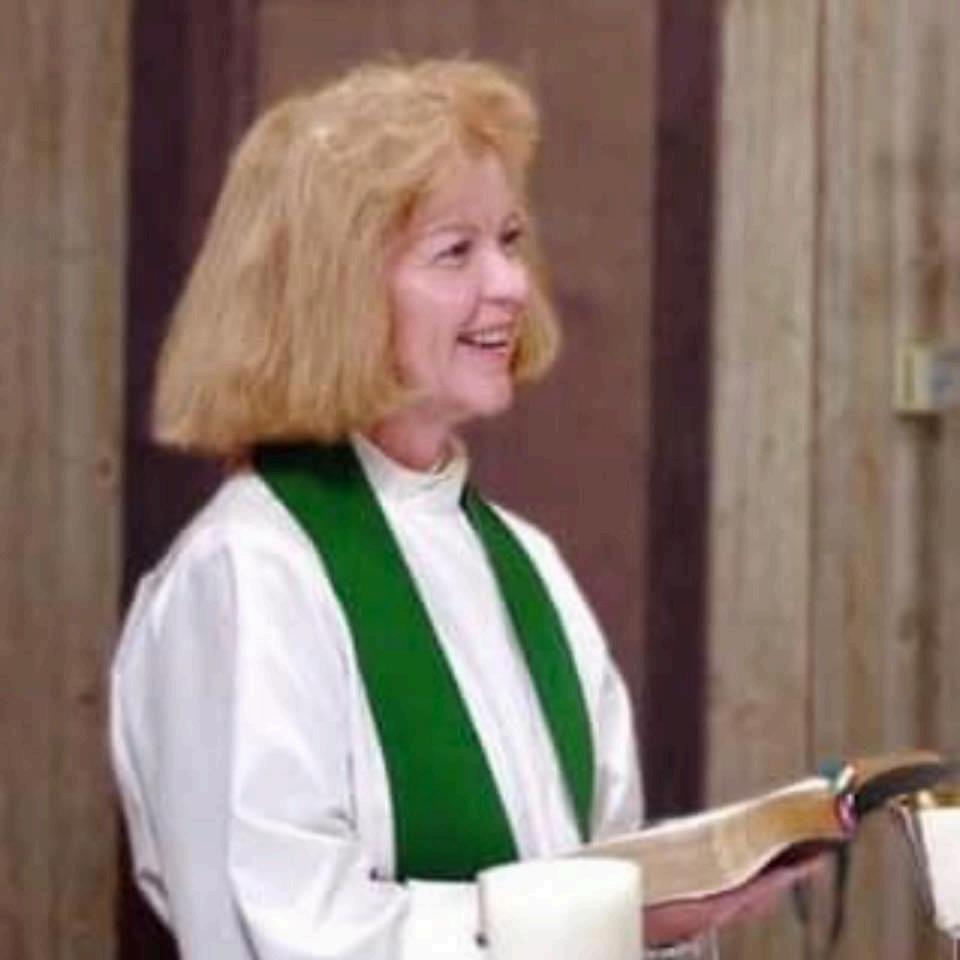
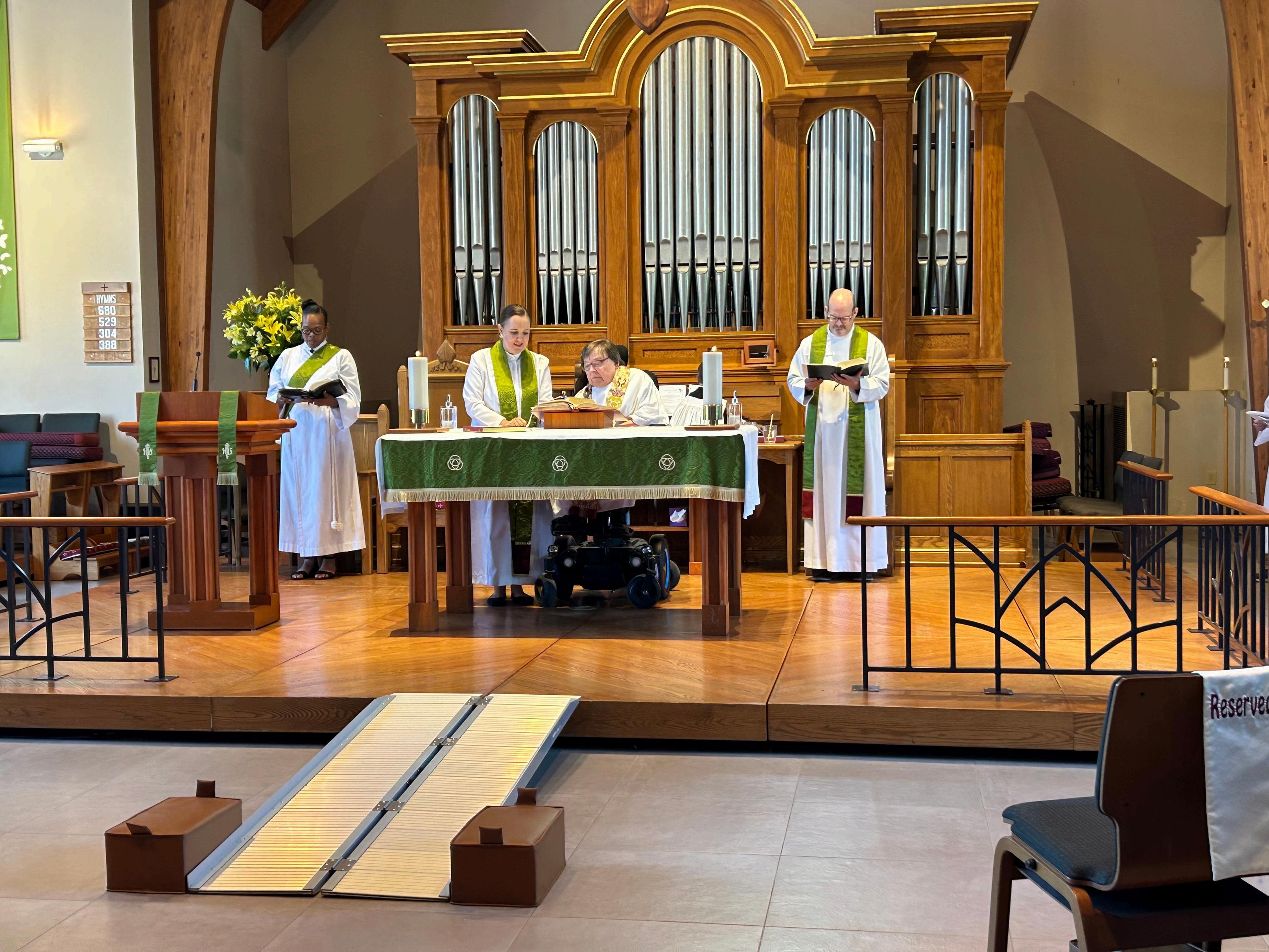
I am Carrie Craig, a retired Episcopal priest in the Diocese Of East Carolina. My life as a priest has been unique—I’m sure almost any minister could say that! I was ordained in ’93, almost 20 years since the first women were ordained. In my graduating class from seminary, there were quite a few women. We were hopeful and ready to preach the gospel with voices not yet heard in many parishes.
My unique experience continued with the fact that I am disabled. I have used an electric wheelchair since they were created (yes, I've been around for a while!). There were few role models as women who could be mentors. I had no disabled role models as I prepared to be a priest.
I had never seen a minister conduct a service from a wheelchair or receive any pastoral care from someone who was disabled. Looking back, I recognize ‘me’ – the person always ready to try something new. No one told me I couldn't be ordained, so my job was to listen to the Holy Spirit and envision what was possible. With confidence, I would try to help others do the same.
The two images I’ve shared in this profile speak to the challenge often before me and other people with disabilities who come to the church with a call to serve. At times places of worship do not even realize that their open doors “to welcome” may not include all. It is possible to make a space accessible with an open mind and a little creativity.
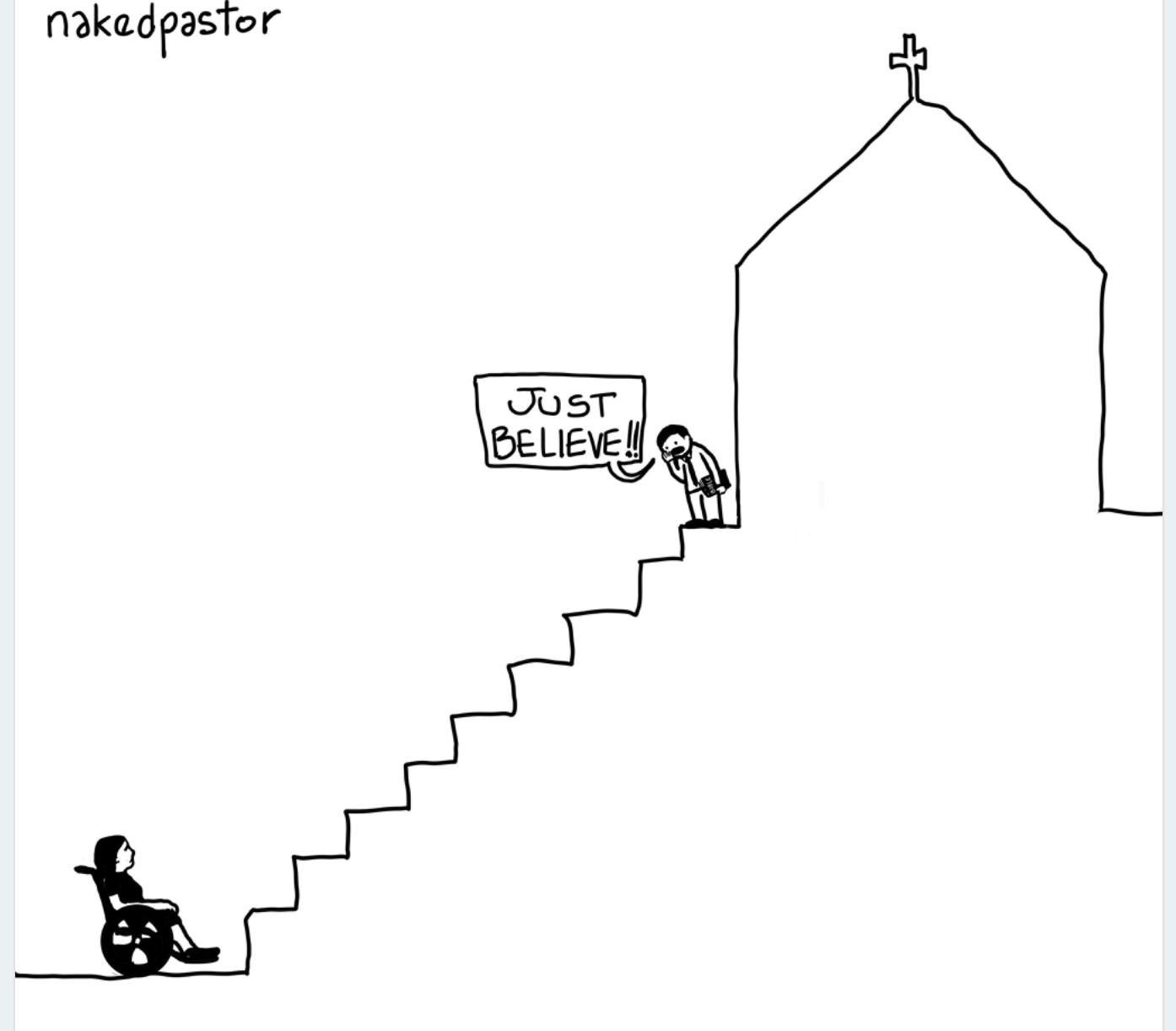
In March of this year, Christ Church in New Bern had the honor to host a screening of the film, The Philadelphia Eleven. It was something I was very excited to offer to our community. We held the event on a Saturday, offered a light lunch to begin our time together, watched the film, and concluded with conversation and reflection. The event was attended by almost one hundred people, and I know it was important to those who had the opportunity to see it and be part of the day. The event was a celebration of the women who were first, those who have been ordained since that day, and a celebration of what God is doing in the midst of us. Of course, it is always my hope that what we present to those in our community will in some way serve them, but this film was more than just an educational offering or a history lesson. For me, this was an opportunity to share the gratitude I have in my heart for the women who were the first and for those who have bravely walked the path of ordination before me, preparing the way.
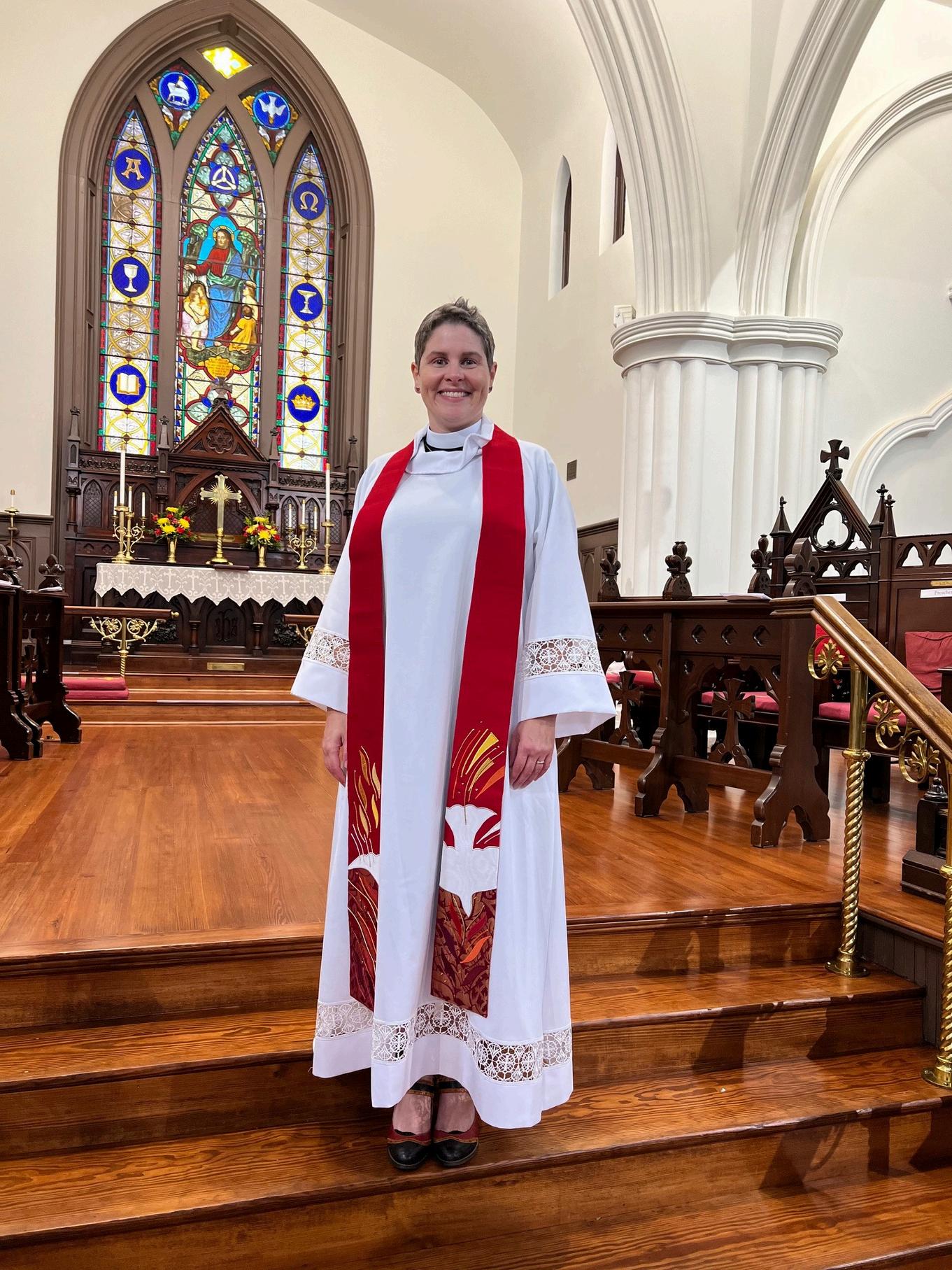
I was pretty young when I first felt the tug to the altar, but I was raised in the Roman Catholic church and so didn’t even consider the possibility that that feeling might in fact be a call to ordained ministry. It wasn’t until years later, now an Episcopalian, when a friend said to me, ‘You know, Suzanne, not everyone wants to be a priest’ that it finally hit me that that is what my heart yearned for, and I never even knew what to call it. I so resonated with some of what was shared in the film because despite ordination to the priesthood being available to women in The Episcopal Church my whole life, as a Roman Catholic I just didn’t even consider it an option and that was the lens that I continued to view the world through despite leaving that tradition at age eighteen and being active in The Episcopal Church for many years. I know that not everyone wants to be a priest – it is not everyone’s call. But it is such a gift to me that this calling was open as a possibility to me in our church.
I am forever grateful to my friend for helping me begin to see the world through a different lens and all of those who were instrumental in my journey to ordination. I love being a priest. I feel at the core of my soul that it is who I am and who I was always meant to be. The women who were ordained in Philadelphia fifty years ago bravely walked the path set before them and I am so deeply grateful that they did.
I believe with all of my heart that God is always doing a new thing. Creation is a never ending, ongoing, beautiful journey.
It is my hope that this film may help us reflect upon what God is up to in this moment. What new direction are we as church being called to? Where is God nudging us to go?
I am certain that the Holy Spirit is already there in that space ahead, calling us forward, calling us to new things. Can we see the example of the women who were first as encouragement to be brave and to set off down the path trusting that God is creating something new?

This month marks 50 years since the beginning of women’s ordination to the priesthood in the Episcopal Church. This May was the 40th anniversary of my own ordination. And so, I offer here my journey to the priesthood of 20some years.
I have been drawn to priesthood since I was 12. In the 60+ years since, particularly at the beginning, people made an unquestioned assumption that I must be doing a political thing a feminist thing asserting my civil rights.
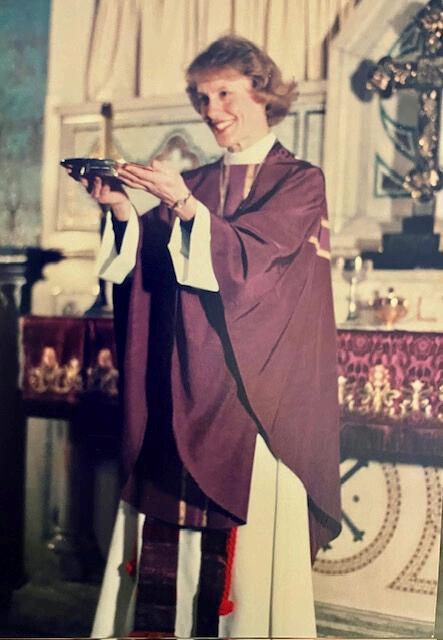
That was never the case, simply because I was mostly unaware of any connection with social issues. My calling was not to shake things up overtly. More importantly, such things were eclipsed for me. I had been introduced to real evil with mother’s milk because at the very moment of my birth, my Czech father became a political prisoner of the Communists, and I felt my mother’s unspoken fear. My mother, however, was a devout Christian, and I picked that up by osmosis. When I was 12, I became aware of these issues in a more mature way and succumbed to a deep depression. For the first time, I explicitly thought, can my prayer actually help?
In that moment, I knew that God cared for me and that I was being drawn forward to something that acts on that knowledge. The something did not have a name yet, and over the following years, I used to think: I have been given a key, but what or where is the keyhole?
Meanwhile, when I was grade school age (the 1950s), there was no Episcopal church within walking distance, so my mother arranged a ride for her and me once a month. I remember being bored. Sunday school was nonexistent, and the services meant little to me. Finally, when the service was over, I would urge my mother to wait in the greeting line with me because I
wanted a personal connection with the priest. Finally, getting to him, I would watch him greet my mother but never, ever look down to me. Not once. I began to think that was part of a pattern: you had to be an adult to have the love of God in this place.
However, the parish had helped sponsor a Chinese bishop to escape and come to the US, and he came to preach. I can still repeat a large part of his sermon: he had had to learn to sleep standing up in the Chinese prison; but the Lord was everything for him. He had no regrets. His powerful inner glow of faith reached right into me. Then I understood: I was not going to hear about my mother’s kind of devotion in that place or from that American priest. I must point out that there was nothing extreme in the bishop’s words or manner; there was no hint of what we now call evangelicalism. It was just love. After several of those experiences, I refused to go to that church unless he was visiting.
Skip to 1975: I was just finishing my dissertation on victim-emergency personnel interactions at Children’s Hospital of Pittsburgh. I turned on the television to see the national news, and there was my mother’s (different) rector Don being interviewed from the Triennial. He said, “They should never have voted to ordain women… disaster.” In that moment, I knew that “Episcopal priest” was the name of my key, and The Episcopal Church was the keyhole. This was NOT to be perverse or for any political reasoning That devotion resonated with the research I had been doing about churches and callings and where I might fit in. It all clicked together. It was not about agreeing with him; it was about the shared devotion I saw in him.
I later went to Don for counseling about ordination. I was horribly naïve.
But I was trapped into it: retired Bishop Pardue (who also did not believe women should be ordained) was a friend of my mother, so I had asked him to talk with me. After some hours of visiting, he picked up his phone and made an appointment for me with that same priest! So I went. Without even a “hello,” that priest asked, “So why do you want to be ordained?” I answered, “Because I think God wants me to.” His expression changed, and we began a decades-long conversation not about the issue of ordination, but about God.
Years later, he called me and said, unbidden, “I now believe women are called to priesthood.” I had told him once, long since, why I thought it was biblical, but I had never said that he should agree.
I was finally ordained deacon in 1983 at a large, markedly evangelical parish. The circumstances that led me there are beyond this present scope.
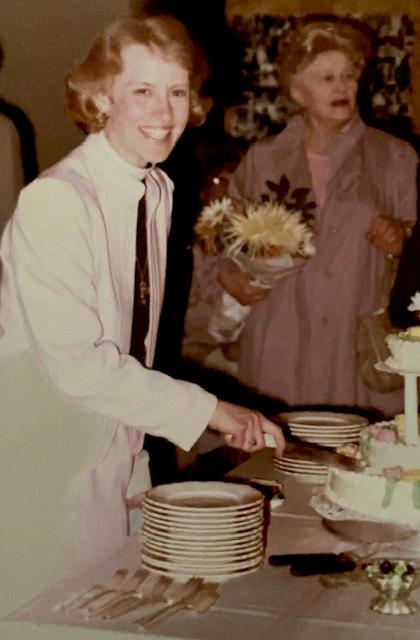
Those people were really sure that I was singlehandedly wrecking the denomination and their parish, though by some alchemy out of my vision, the rector and vestry had sponsored me. There was no hope of a job, however, made worse by my being divorced and still single. But the rector had some life difficulties, and they turned out to need me. Suddenly, I was a fulltime minister. I left my academic job at the end of that year and was ordained priest in 1984 when I was 35.
One more thing is essential to understanding this beginning and my calling. The succeeding year saw that rector leave under painful circumstances, and the parish ricocheted anxiety much of which was taken out on “that woman” (me). But my expertise was in organizational systems and broken communication. I saw them silently agonizing: Where did God go? Doesn’t God love us anymore?
I quickly learned that I had to love those people with God’s love. No matter what they threw at me, I resolved to check that I did not look angry or pained, and then I deliberately but quietly would do something loving toward them. By the time I left, I did, in fact, love even the most difficult of them. And they were not to know it for some time, but I was the one who (behind the scenes, several years later) found the rector who finally made peace and love reign again in that place. He plainly told people that!
This was only the beginning of my journey, and the other half of the story is that I became an intentional interim and had 16 miracle parishes. Most started as something no one else wanted to tackle and ended up vibrant in faith, money, and attendance.
I have published a more expanded version of these things in my books, It Was a Miracle (Augsburg Fortress, 1999), and Speak Ye First the Kingdom (Design Group International, 2011).
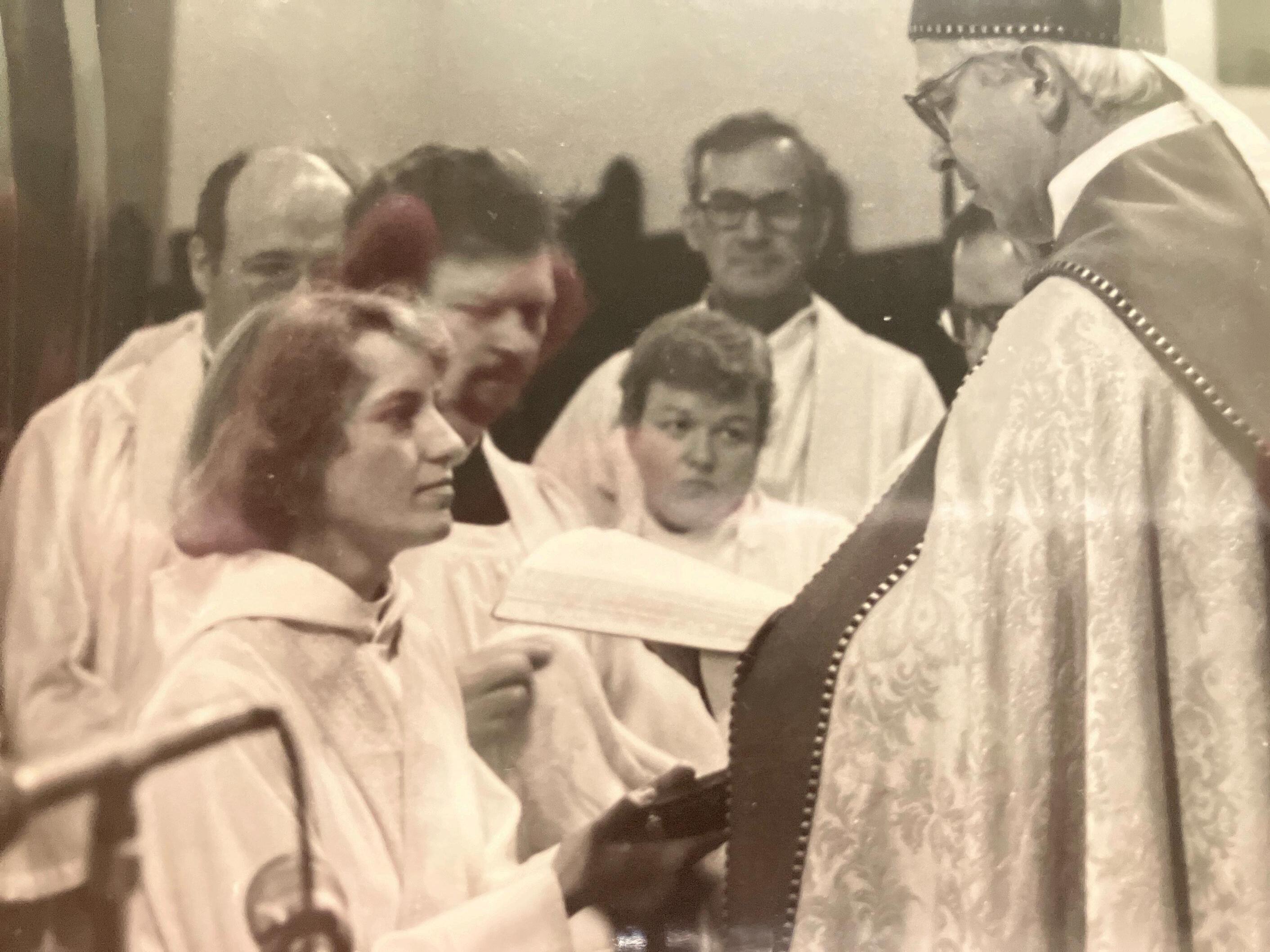
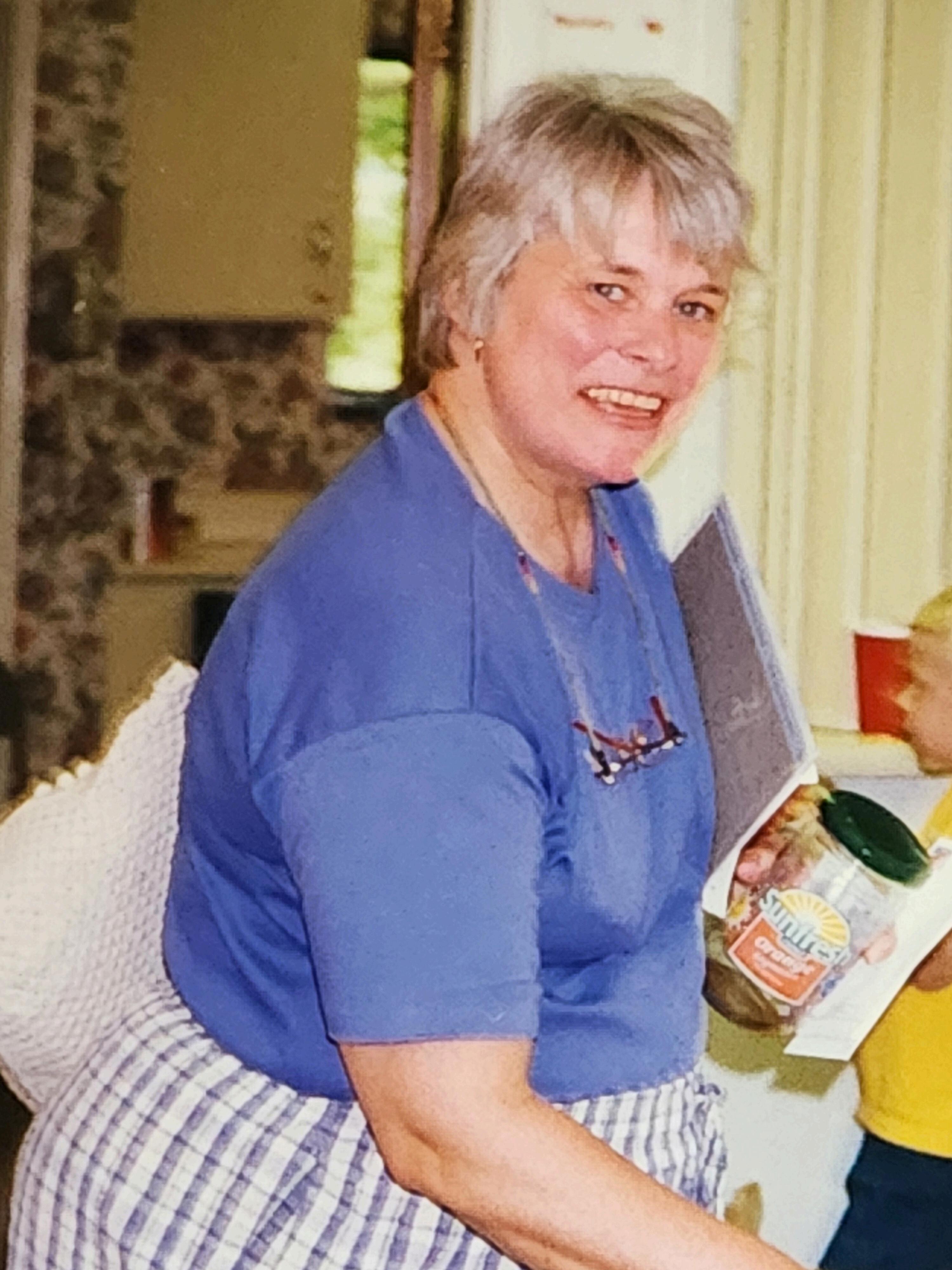
By Robin Burrs & Susan Lees of St. Paul’s-in-the-Pines, Fayetteville
In October of 1983, St. Paul’s-in-the-Pines, Fayetteville called the Rev. Lucy Brady Talbott to serve as our rector. She was the first female priest to be called to lead a church in the Diocese of East Carolina. In 1989, St. Paul’s became a full parish, and Rev. Talbott helped us to adjust to this status. During her 17-plus years at St. Paul’s, Rev. Talbott served not only our parish, but also was active in local, Diocesan, and National Church service.
Robin Burrs’s Remembrances of Rev. Lucy Brady Talbott
Rev. Lucy Talbott was truly a beloved priest in our parish, St. Paul’s-in-thePines. She fought bravely in the face of injustice, inequality, and prejudice. Two of her most outstanding memories for me both involve her unwavering sense of inclusivity.
In the late 80s, when AIDS was looked upon as a scourge and a punishment, Lucy was not about to fall in with the superstition, condemnation, or ignorance surrounding the disease. She was very vocal about our responsibilities as Christ’s representatives to educate ourselves about the disease and to refrain from engaging the negative stigma surrounding those persons infected. A local HIV Task Force support group had created AIDS Quilt Panels comparable to the National Aids Quilt. The LGBT (before the added letters) community and supporters had created the panels with cloth petals in the shape of leaves of the Dogwood tree, within which was written the name of a victim.
That local coalition went to the ministers of MANY of the churches in Fayetteville, NC for permission to display these panels in their churches. Of course, that request was NOT received well. The group was dismissed as absurd, or met with disdain and even some unChristian-like rhetoric! Lucy, however, was honored to be asked and eagerly presented it to her Vestry, who decided it was a parish issue which turned out to be fully accepted by all.
We received the panels, put them up on the walls of the sanctuary, and then covered them. At The Great Vigil of Easter, during the Salvation offered freely to all reading, the panels were revealed. Such an incredible impact!
Word got out about the panels having found a home finally, and Lucy kept the church open for visitors to view the panels, see their loved one’s names, and a means was offered to visitors to submit names that they wished to be included.

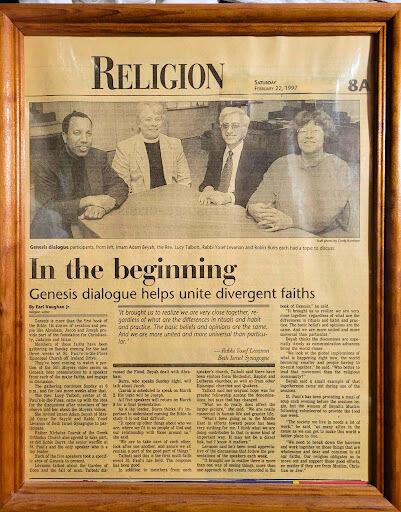
The beginning of the Interfaith Community; Rev. Lucy is pictured the second from the left.
Lucy and LAF (Lambda Association of Fayetteville): Susan Lees’s Remembrance
What I appreciated about Reverend Lucy was her inclusiveness. The Lambda Association of Fayetteville (LAF) was officially formed in February 1992 as a non-profit organization for GLBTs in the community who wanted something in addition to the bar scene that was alive and well in Fayetteville. Alan Taziri, who was a member of St. Paul’s-in-the-Pines Episcopal Church, volunteered to talk with Rev. Lucy for permission to hold a coffeehouse in the church’s Fellowship Hall. The request was denied; I heard later that Alan apparently exaggerated the amount of public displays of affection that might occur at the coffeehouse. I volunteered to meet with her and clarify LAF’s position; we were given permission to host the coffeehouse at the Fellowship Hall; and thus began the relationship between LAF and St. Paul’s. LAF began holding its meetings at the church as well as other coffeehouses and events until LAF closed around the turn of the century. Lucy and the church consistently supported LAF’s ideals and actions.
Lucy and the church were supportive of Emmaus Metropolitan Church holding its faith community services on Sunday evenings at the church and using the church for meetings as needed. Lucy and the church were supportive of 12step meetings being held at the church, such as Sex Offenders Anonymous. Lucy and the church were supportive of the church being used as a home for families who were temporarily homeless.

Lucy appeared supportive of those who live outside the average: the outcast, the different-than-average, those not accepted generally by those in power (however power is defined). Later, after I met Robin (Robin Burrs, my spouse, whom I met through Rev. Lucy), I saw her in action helping her parishioners practice on Saturday mornings for the Holy Day services, and observed her work ethic to provide a professional and spiritual experience for Sunday and Holy Day services. Lucy’s work ethic was something her/the church’s parishioners appeared to emulate and integrate into their part of the services.
Rev. Lucy was a force to be reckoned with, and many who learned under her tutelage still remember, practice, and teach those lessons to other parishioners in this wonderful church.

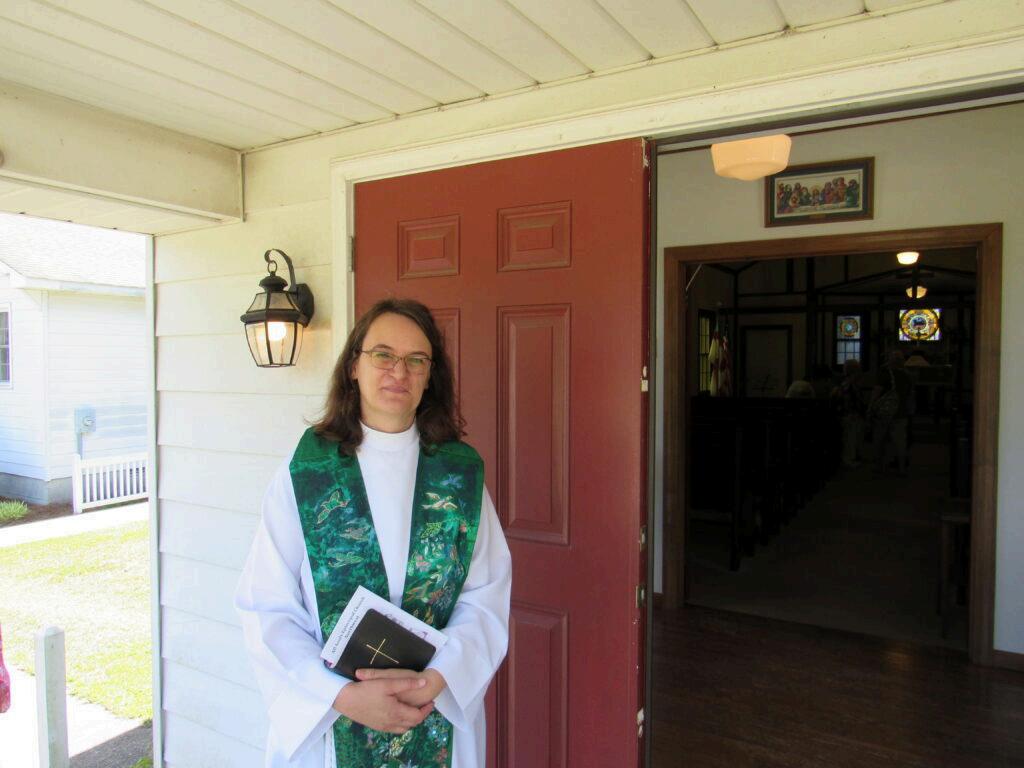
I was born in the ’70s in Grenoble, France, and even as a child, I knew I wanted to be a priest. It wasn’t just a fleeting thought—it was a deep, abiding desire that felt like it had always been part of me. Growing up Roman Catholic in France, I loved going to church. I was particularly drawn to the parish priest, who embodied the spirit of the post-Vatican II era, doing things differently, with a fun and approachable personality. I wanted to do what he did. I remember telling my parents that I wanted to become a priest, convinced it was as obvious to them as it was to me, but when my father responded, “Well, you can’t do that,” it felt like a stab to my soul. I asked why, and the answer was simple yet crushing: “Because you’re a girl.” There was nothing more to say, no way to change that. It wasn’t about working harder or striving for something it was an unchangeable fact!
As I grew older, especially during my teenage years, I wrestled with that sense of calling. I thought maybe I was meant to
join a religious order, but that never felt right either. I tried different paths, but none seemed to fit. Yet, whenever I envisioned my future, it always involved talking to people about God. That was my true desire.
When it came time to choose a field of study, I gravitated toward philosophy. I wanted to delve into the big questions of life, to reflect deeply on them. But as an adult, I found myself at a loss. The call to ministry was still there, but I didn’t know how to pursue it. I was taking theology classes, surrounded by men who prepared for priesthood, but what was I going to do? I was still worshiping in the Catholic Church, and over time, as I questioned and studied, I began to drift away. The church seemed to have all the answers, but they weren’t answers that resonated with me anymore.
A few years later, after I started working
boring office jobs, my father's death and my marriage forced me to reevaluate more urgently the sense I wanted to give to my life. I remember a job counselor asked me a simple but profound question: “What is it that you dream of doing, even if it doesn’t make any sense?” I told her about becoming a priest, even though it seemed impossible.
Surprisingly, as I was volunteering for a non-profit, I discovered a Church of England congregation in my hometown of Grenoble, France. My mother, who was an English teacher, had taught me the language from an early age, so attending services wasn’t difficult. The priest there was welcoming, and I found myself asking him countless questions. I didn’t tell anyone about my desire to be a priest I just attended, participated, and observed.
Then, one day, the Bishop of the Convocation of Episcopal Churches in Europe came for a visit. The convocation is a small diocese mostly serving expatriates in Europe and includes a small number of parishes scattered across the continent. The bishop, Bishop Pierre Whalon, had American and French dual citizenship and was deeply connected to both cultures. When he asked me, in front of everyone, if I wanted to be a priest, it felt like a moment of truth. I heard a voice inside saying, “Well, it’s now or never,” and I found myself saying yes, though I added that it wasn’t up to me. He laughed and agreed, but after he left, my priest told me I should go to Paris to see him. I went to Paris, and I visited with Bishop Whalon at
the American Cathedral. I just had this sense: "Wow, it's maybe it's possible, after all." And it was.
Visiting Bishop Whalon and the cathedral in Paris was overwhelming in the best way. For the first time, it seemed like my dream could actually become a reality. I began the process with the convocation, met with the standing committee, and continued my theological studies. But the more I studied on my own, the more I felt disconnected. It was very theoretical, and I had no community. That's when the bishop suggested I go to seminary in the United States. After some deliberation, I ended up at Virginia Theological Seminary (VTS) in Alexandria.
Moving to the United States was a great adventure. My husband and I left everything behind in France—our jobs, our home, our life. But VTS welcomed us with open arms, helping us with everything from navigating
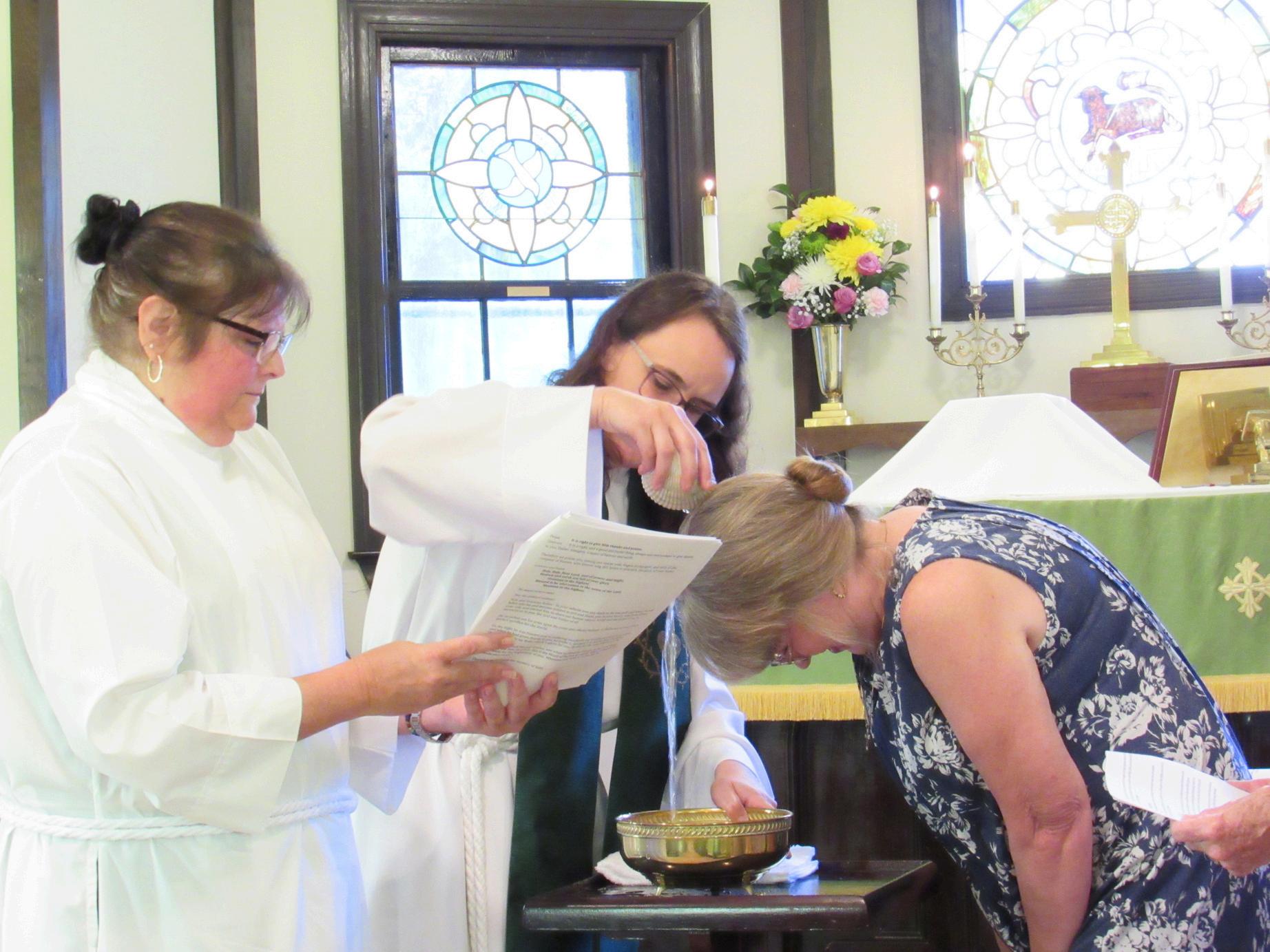
the DMV to finding groceries. It was a completely different world, even in worship, but it felt closer to the Catholic Church in some ways than the Church of England, more evangelical, at least where I used to live.
The seminary experience was transformative. My husband found work in IT at the seminary, which helped us secure a work visa. Everything seemed to fall into place, and I was filled with a certainty that I was exactly where I was meant to be, doing what I was meant to do. That certainty was a rare gift, one I would hold onto through the challenges that came later.
After seminary, things were more difficult. There were no job opportunities for me in Europe, andI didn't know where to turn to. With only a "spouse" visa, I couldn't work, and no church was willing to sponsor me for a work visa. After I was ordained, I spent two years doing non stipendiary work in different churches, and especially doing ministry with the homeless, which I loved.

surrounded by fields. The congregation is like a family they’ve known each other all their lives and have welcomed us with open arms, even inviting us to spend holidays with them since we’re far from our families in France.
Eventually, when my husband got his green card, I got one as well, I started working as an Associate Rector in a church in Virginia, then later had a parish of my own in Southern Maryland. After the pandemic, we wanted to change our lifestyle, and my husband was offered a job at UNCW. We moved to Wilmington, and I began serving at All Souls, Northwest, a small country church
My spiritual journey now, one of more maturity, sees the once-in-a-lifetime adventure my journey to priesthood was; now I need to grow in it and find God in everyday life and ministry. I have decided to resume my studies: I am starting a doctorate at Sewanee on preaching. It feels like a good refreshment and renewal, since my goal has always been to talk about God with people!
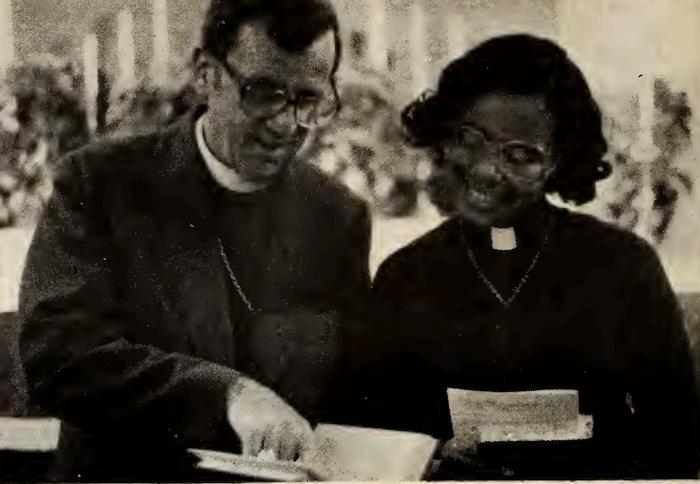
The Rev. Michelle Thornton was the first black woman (and the second woman) to be ordained in the Diocese of East Carolina. She was ordained in December 1981, and she served as vicar at St. Andrew’s, Goldsboro and St. Augustine’s, Kinston. Rev. Thornton was also the youngest priest in the diocese in 1982.
In an interview for the diocesan newspaper, the Cross Current, she was asked what made her choose the South and this diocese, to which she asserted, “I did have another offer, but this Diocese offered me the first opportunity to be on my own, not as assistant to another priest. It is also the one place where I would not be yoked in a team ministry with my husband. Also, I had a very strong conviction that the Spirit was leading me here.”
Rev. Thornton noted that she had been accepted into this diocese “very well. The people little by little are beginning to trust me and are coming to me.” Her husband, Hugh, who sat in on the interview noted, “Some people will go to her because she is a woman: others will not. for the same reason. She'll provide a catharsis for some people: for others. not. She's got a unique instrument.”

Je suis née dans les années 70 à Grenoble, en France, et depuis mon enfance je voulais devenir prêtre. Ce n'était pas juste une idée en l'air, mais un désir profond qui a toujours fait partie de moi. J'ai été élevée dans la foi catholique romaine et j’aimais beaucoup aller à l'église. J'aimais beaucoup le prêtre de notre paroisse qui était très imprégné par l'esprit Vatican II, il faisait les choses différemment des autres églises avec humour et simplicité. Je me disais toujours que plus tard je voudrais vraiment faire la même chose que lui. Je me rappelle avoir dit à mes parents que je voulais devenir prêtre car c'était tellement évident pour moi, mais quand mon père m'a répondu que c'était impossible ça m'a fait comme un coup de poignard au coeur. J'ai demandé pourquoi et la réponse était simple et inéluctable: Parce que tu es une fille. Il n'y avait rien de plus à dire et rien à faire pour changer cela. Ce n'était pas juste un objectif difficile à atteindre mais quelque chose qui n'était pas pour moi, point final.
En grandissant, et en particulier à l'adolescence, je me suis posée beaucoup de questions sur ma vocation. J'ai pensé que peut-être j'étais appelée à entrer dans les ordres et en même temps cela ne me semblait pas fait pour moi. J'ai essayé différentes choses, mais rien ne me convenait. Par contre, dès que j'essayais de penser à l'avenir, je me voyais parler de Dieu aux gens, c'était mon véritable désir.
Quand il a fallu que je me décide pour poursuivre des études, je me suis dirigée vers la philosophie, je voulais réfléchir aux questions importantes de l'existence, mais arrivée à l'âge adulte adulte, je ne savais pas vers où me tourner. L'appel du Seigneur était toujours là et je ne savais pas comment y répondre. Je suivais des cours de théologie entourée d'hommes qui se préparaient à la prêtrise, mais moi qu'allais-je devenir? J'allais toujours à la messe dans l’église catholique,
mais avec le temps, à force d'étudier et de me poser des questions, j'avais fini par m'en éloigner. L'église semblait avoir toutes les réponses mais elles ne me satisfaisaient pas.
Quelques années après, alors que j'avais commencer à travailler dans des emplois de bureau qui m'ennuyaient passablement, la mort de mon père et mon mariage m'ont ramené à me reposer de façon plus urgente le sens que je voulais donner à ma vie. Je me souviens d'avoir rencontré une conseillère professionnelle qui m'a posé une question simple mais assez profonde: Qu'est ce que vous rêveriez de faire, même si c'est complètement absurde? Je lui ai répondu que je voulais devenir prêtre, bien que ce soit impossible.
De façon surprenante, alors que je faisais du bénévolat au Secours Catholique, j'ai découvert que l’Église d'Angleterre était présente dans la ville où j'habitais. Ma mère, qui était professeure d'anglais, m'avait appris à parler très jeune et ainsi assister aux cultes en anglais n'était pas un problème. Le prêtre était très accueillant et j'ai pu lui poser toutes mes questions qui étaient innombrables...par contre, je ne lui parlais pas de mon désir de devenir prêtre, je me contentais d'observer et de participer.
Et puis un jour, l'Évêque de la Convocation des Églises Épiscopales d'Europe est venu nous rendre visite à l'église. La Convocation est un Diocèse au service des expatriés en Europe et a un petit nombre de paroisses dispersées sur le continent.
L’évêque Pierre Whalon avait la double citoyenneté Française américaine et naviguait très bien les deux cultures. Quand il m'a demandé devant tout le monde si j'étudiais la théologie pour devenir prêtre, ça m'est apparu comme un moment décisif, j'ai entendu à l'intérieur de moi une voix qui disait: C’est maintenant ou jamais, et j'ai répondu oui, tout en ajoutant que ça ne dépendait pas de moi. L'évêque a ri et il m'a dit qu'en effet, ça ne dépendait pas de moi. Après son départ, le prêtre m'a dit que je devrais aller voir l'évêque à Paris à la Cathédrale Américaine et je me suis dit que peut-être ce qui me semblait impossible n'était peut-être pas si impossible que ça.
Cette visite avec Mgr Whalon à la cathédrale a été bouleversante dans le bon sens du terme. Pour la première fois, il m'a semblé que mon rêve pouvait devenir réalité. J'ai commencé le processus de discernement dans le Diocèse d'Europe et rencontré les différents comités et j'ai poursuivi mes études de théologie.

Mais au plus j'avançais dans mes études, au plus je me sentais isolée. C'était très intellectuel et je n’avais pas de communauté. C’est alors que l'évêque a commencé à suggérer que j'aille au séminaire aux États-Unis. Après quelques mois de réflexion, je suis partie au séminaire d'Alexandria en Virginie (VTS).
Déménager aux États-Unis a été une grande aventure. Mon mari et moi avons dû tout quitter en France - nos emplois, notre appartement, notre vie. Mais le VTS nous a accueillis à bras ouverts et nous a aidé pour tout ce dont nous avions besoin, que ce soit pour aller récupérer mon permis de conduire ou nous montrer où faire nos courses alimentaires. Tout était différent y compris les services religieux, mais cela m'a semblé en quelque sorte plus proche de l'Église catholique que de l'église d'Angleterre, beaucoup plus évangélique, tout du moins là où j'habitais.
Mon passage au séminaire a tout changé. Mon mari a trouvé un emploi en tant qu'informaticien dans leurs services techniques ce qui lui a permis d'avoir un visa de travail. Tout semblait prendre forme, et j'étais remplie de la certitude que j'étais là où je devais être et que je faisais ce que j'étais censée faire. C'était vraiment une grâce qui m'a aidée à tenir bon quand les choses se sont compliquées par la suite.
Après le séminaire, c'était plus difficile. Il n'y avait pas de possibilité de travail pour moi en Europe et je en savais pas à qui m'adresser. J'avais seulement un visa
d'épouse et je ne pouvais pas travailler, je n'ai pas réussi à trouver d'église prête à faire une demande de visa pour m’embaucher. Après mon ordination, j'ai donc passé deux ans à travailler bénévolement dans différentes églises, et en particulier à servir les sans-domicile, ce qui me plaisait beaucoup. Finalement, quand mon mari a obtenu sa carte verte, j'ai pu aussi recevoir la mienne et j'ai pu commencer à travailler en tant qu'Assistante au Recteur dans une église de Virginie, et plus tard dans ma propre paroisse dans le Sud du Maryland.
Après la pandémie, mon mari et moi voulions changer de vie, il a pu trouver un emploi à l'Université de Caroline du Nord et nous avons déménagé à Wilmington. J'ai commencé un ministère à All Souls, Northwest, une petite église de campagne. La congrégation est très familiale, ils se connaissent depuis toujours et nous ont accueillis très chaleureusement, nous invitant même à passer les fêtes avec eux puisque nous sommes loin de nos familles en France.
Ma spiritualité est maintenant orientée vers l'acquisition de plus de maturité et je réalise tout ce que mon chemin vers la prêtrise avait d'unique. J'ai décidé de reprendre mes études et j'ai commencé un doctorat sur la prédication avec le séminaire de Sewanee. Cela m'apporte beaucoup de renouveau et me rapproche encore plus de mon but initial: parler de Dieu avec les autres!
"For all of us in the Diocese of East Carolina - clergy, ECW, Church of the Advent, St. Peter's, Washington, the Department of Christian Education, C
The Rev Wendy Sykora Raynor, who was the first woman ordained as a priest here in East Carolina. The January 1985 issue of the Cross Current shares 'Loving Memories of Wendy Raynor' by Katerina Whitley, a selection of which is below:
EFM graduates, and above all, Coalition 16 - a poignant loss which started last June became final on September 21. Our friend, sister, priest, the Rev. Wendy Raynor died in the early hours of Saturday. She faced death with courage and fortitude, and the quality which shone in her life - faith in her Lord Jesus Christ.
Wendy had the distinction of being the first woman priest in North Carolina, and she was always joyful over her ordination and happily surprised that she was so well accepted by our two bishops and by the whole diocesan family in her ministry.
Someone from Washington told me after her death, ‘Wendy's ordination came at the right
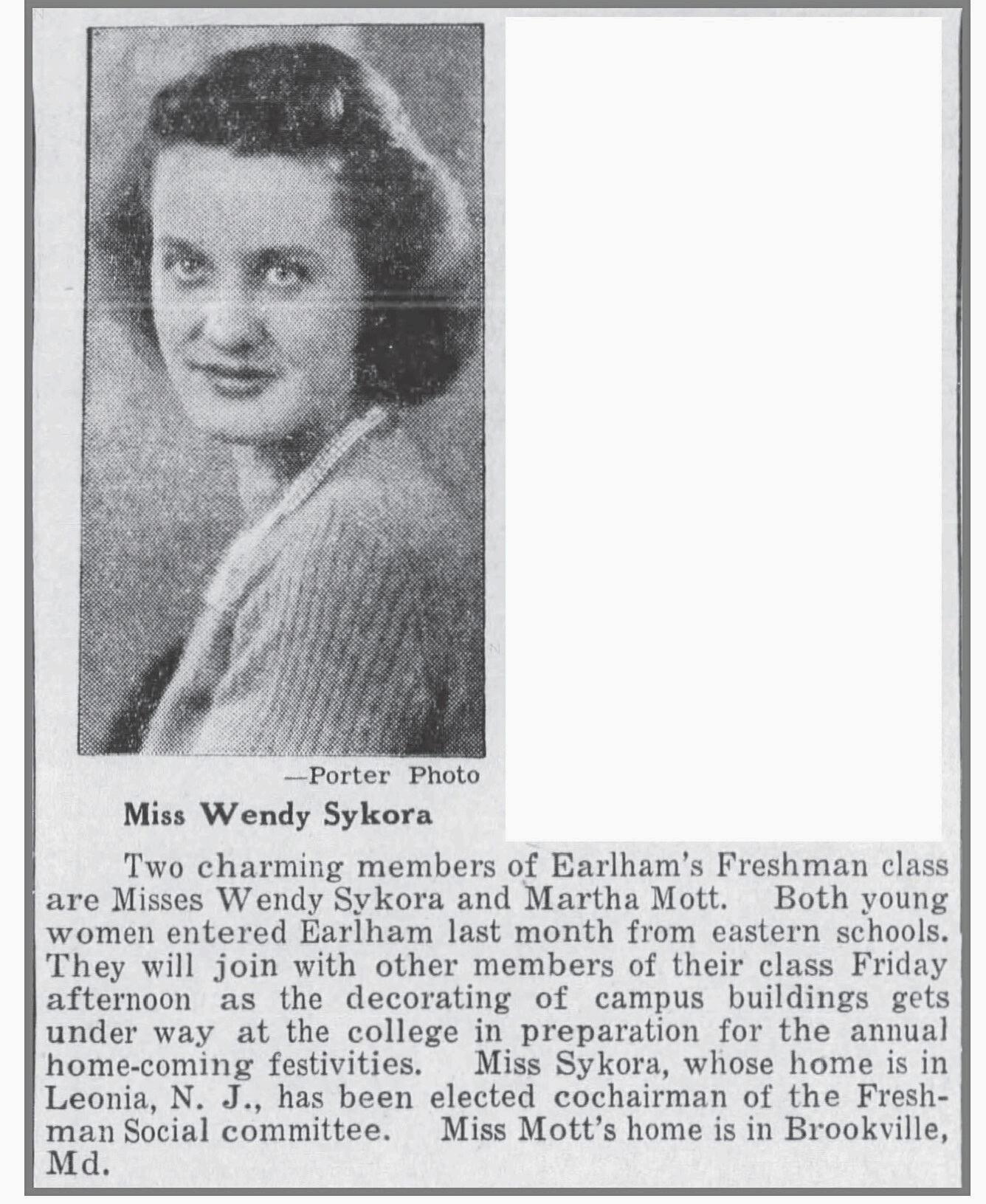
time. Somehow she bound us together at a time when there was much division elsewhere.'”
Author Katerina Whitley closed the article saying, “I have a two-fold realization when I listen to Wendy. One is the sense she gives me that priesthood is servanthood...The other is that this first woman priest in our diocese is full of the awe and wonder which come to one who is deeply aware of having been the recipient of a gift."
The Rev. Bonnie Smith who pointed us to archival resources on The Rev. Wendy Raynor shares, "I am thankful to have known both of them [The Rev. Wendy Sykora Raynor and The Rev. Lucy Talbott]. And, I am so thankful for all the women who have followed in their footsteps!"




Hello, my name is Jayden Wright, and I attended the SUMMA Student Theological Debate Camp at The University of the South (Sewanee) in July 2024. I have been asked to explain what SUMMA is. SUMMA, at its core, teaches the campers how the Lincoln-Douglas debate works and how Christian Theology relates to the given resolution. Throughout the week, the campers better understand the given resolution and must begin thinking of ways to argue for and against it. At SUMMA, the campers have to argue for both sides of the argument, which
teaches them how to consider opposing viewpoints while also thinking of ways to defend the arguments they give. In between lectures, they have “free time” where campers can choose from a variety of options to spend two hours on the selected activity and then an hour of “true free time” where as long as they do not go alone, they can spend that time however they wish. Campers have full access to the on-campus library, where they may check out books to research for their argument.
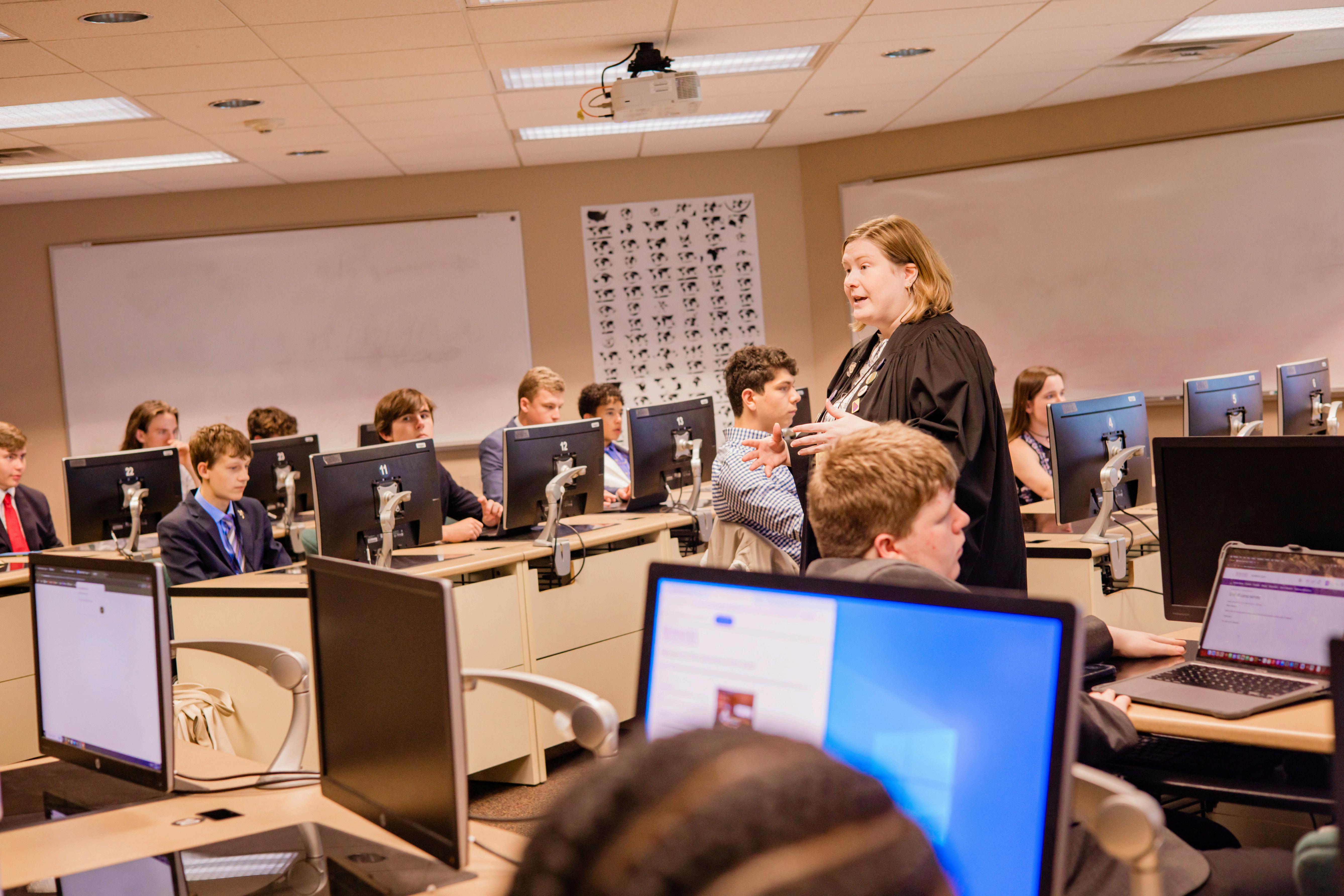
SUMMA was a unique experience because of its structure and how it was run. Throughout the week, you learn not only how to debate but also how to research and find evidence for your arguments. During my time at SUMMA, they had an excellent balance between work time and free time, and as long as you used the time allotted for research and speech writing, you should be fully prepared before the debate. SUMMA is surprisingly casual instead of being very serious and guided. The attendees have a lot of freedom. All the people were incredibly friendly, and there was so much other stuff besides the debating aspects. Some other activities involved playing musical instruments in the chapel and board games in the dorm common room, among others. Finally, what made SUMMA unique was the beauty of the campus. The main chapel where we held the eucharist services is absolutely massive and breathtaking when you first see it, and the entire campus is like this.
What I loved the most about my experiences at SUMMA was the friends and other people I met there. At SUMMA, you are put into a group of 5 other campers, and they are your support group You will not debate them; you will help each other research information about the resolution and brainstorm arguments. I couldn’t have asked for a better group They were incredibly smart, and we always shared our ideas with each other to the point that all of our arguments included ideas and sources from the others. We stayed together the entire time, and the connections I made at SUMMA will stay with me for a long time Also, during free time, a group of campers would get together and have respectful discussions with each other on theological topics, allowing all of them to hear different sides on the same subject
SUMMA is a fantastic experience for two main reasons. The first is learning how to debate and research in preparation for both sides of the argument. It is so interesting to look into scripture to see what it says about the particular resolution. The second reason is the friendships that are made while at SUMMA. The conversations I had were so much fun, and I can’t wait to be with them next year. SUMMA was truly an unforgettable experience that I cannot wait to go back to, and I hope to see you all there.



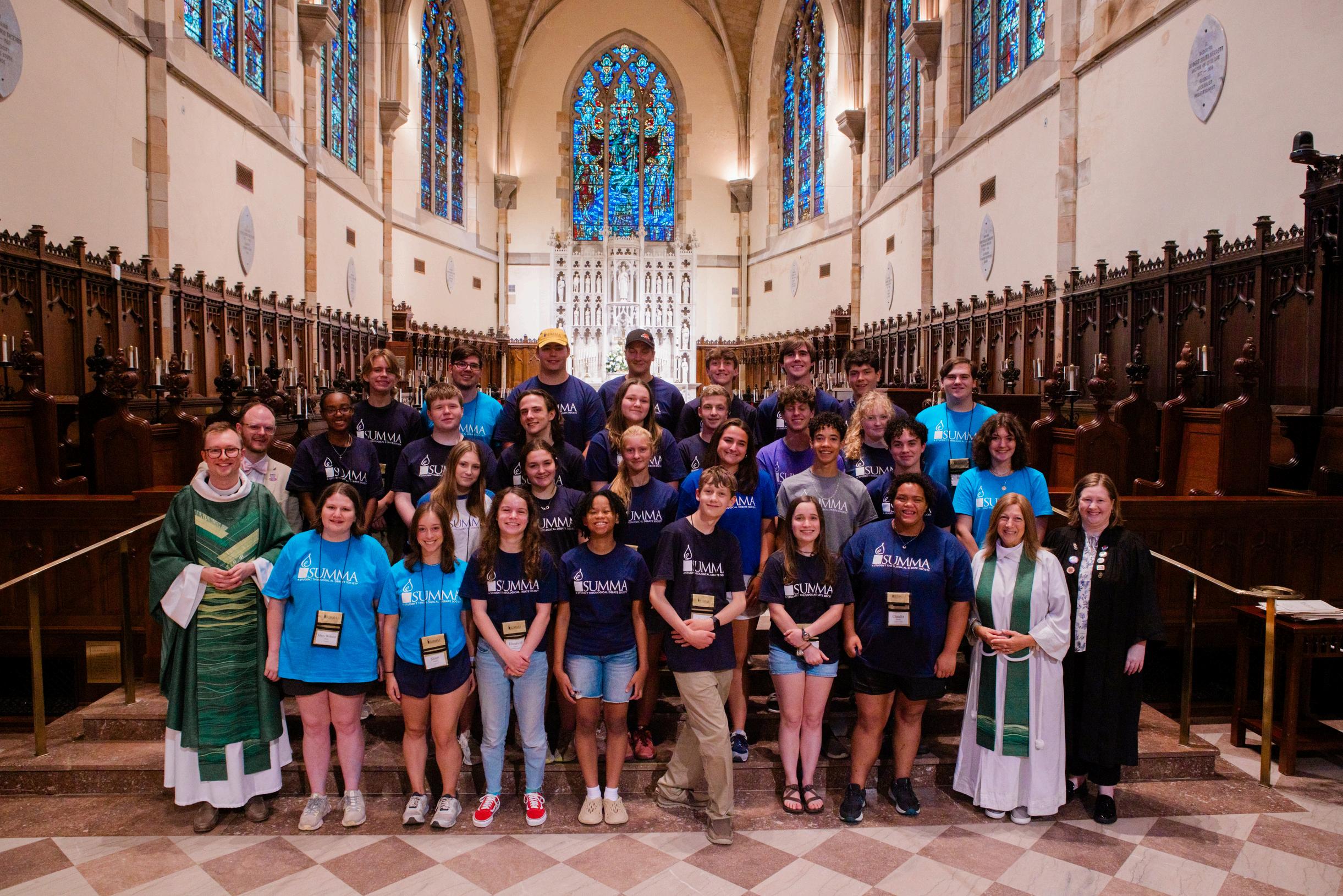
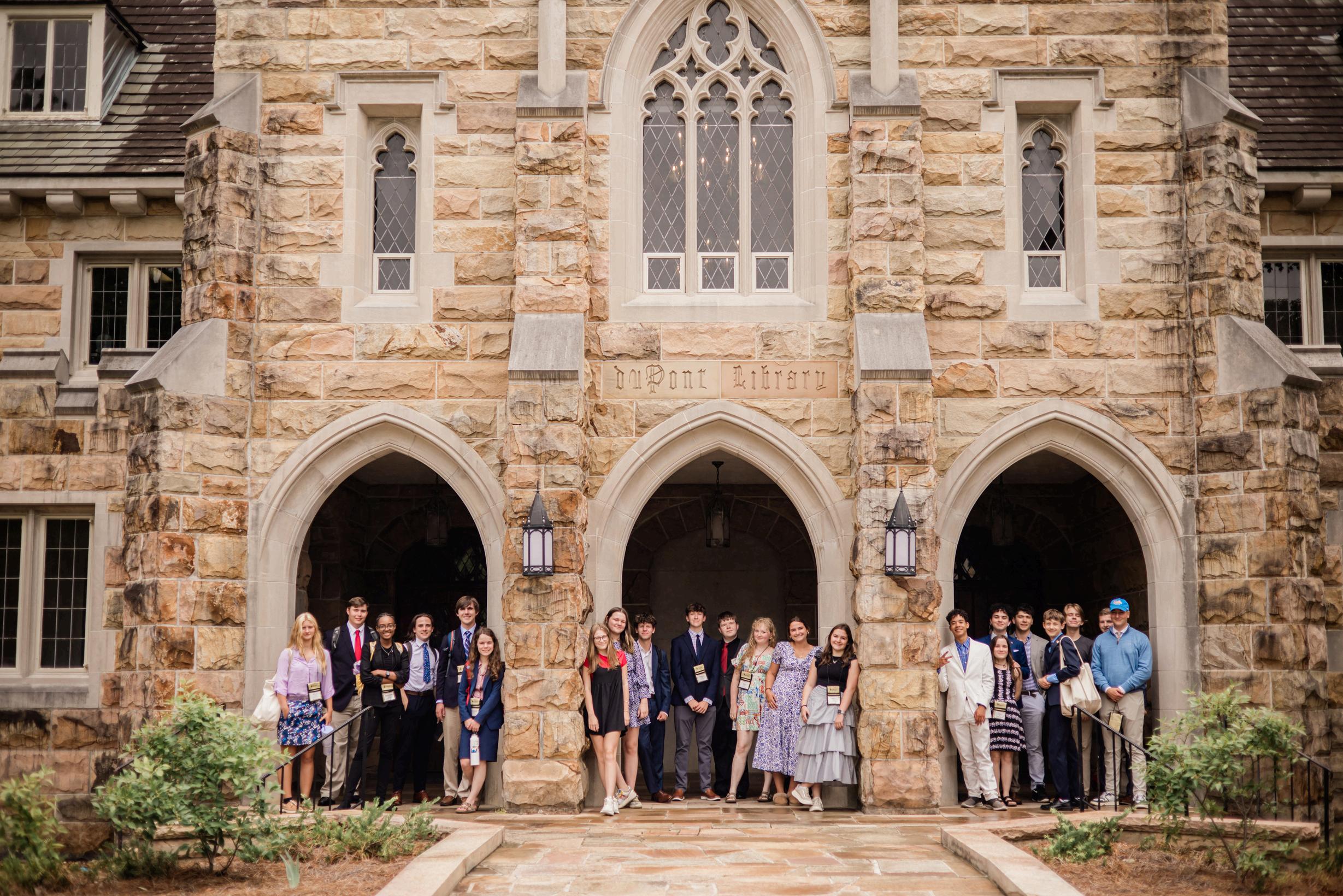
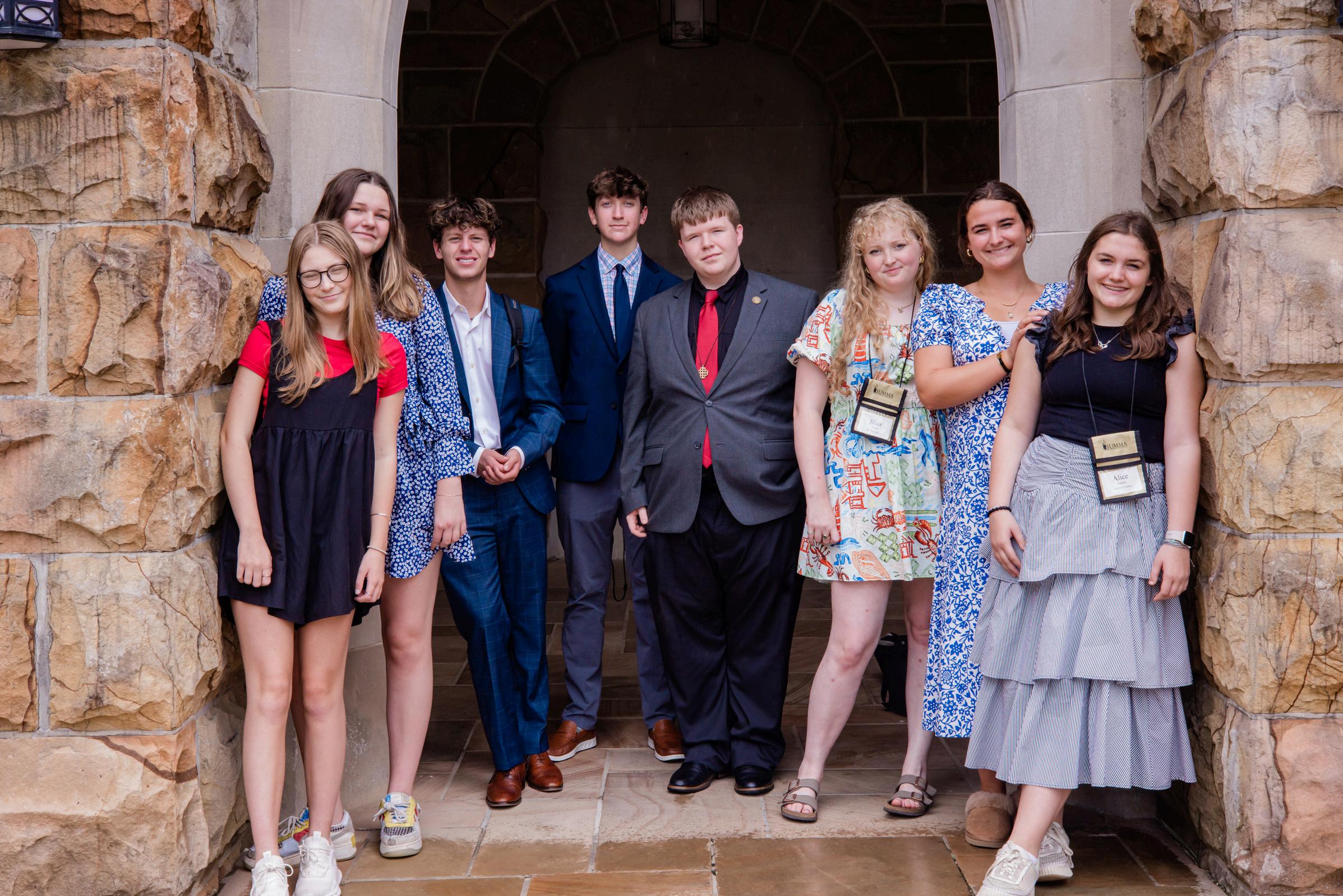
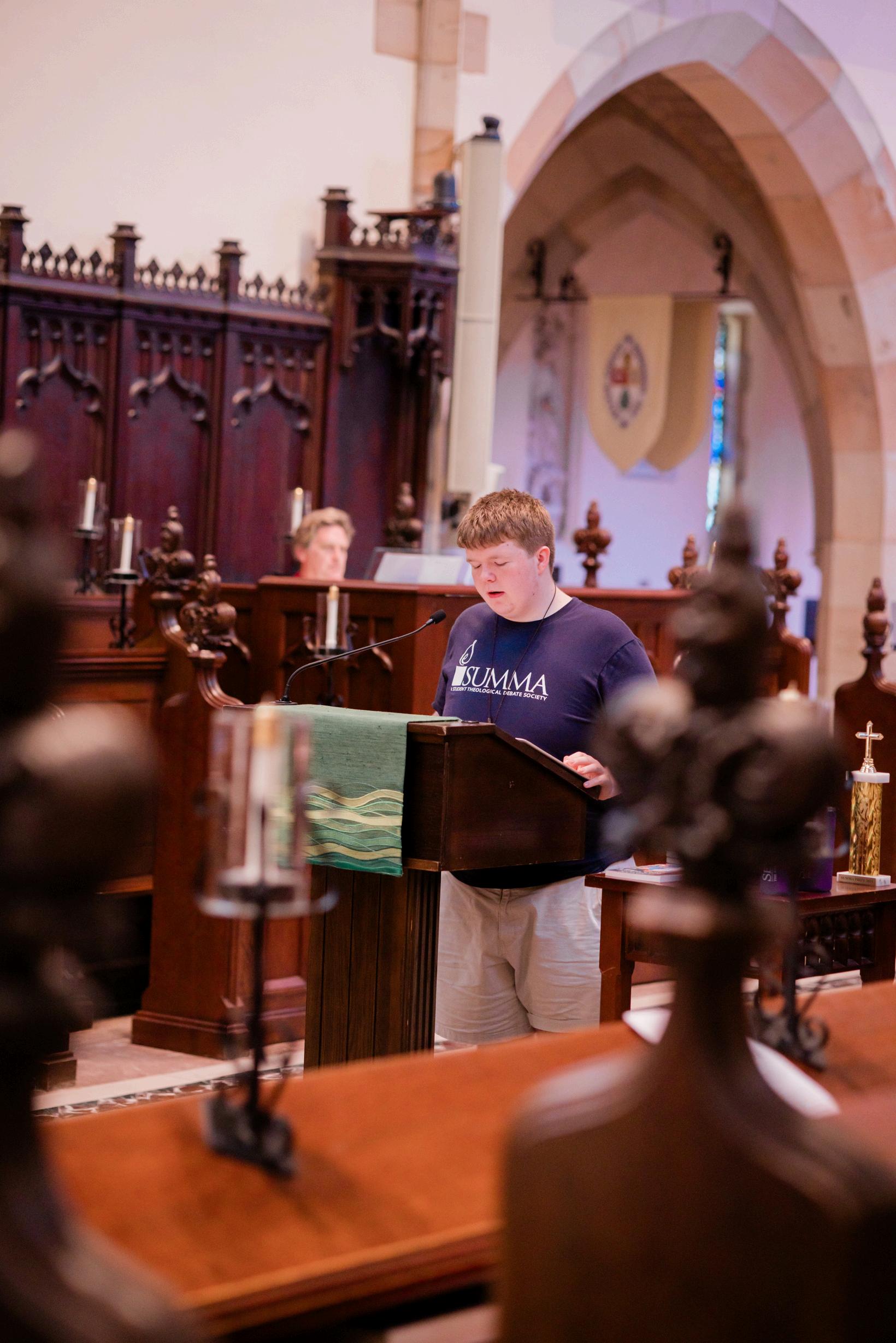





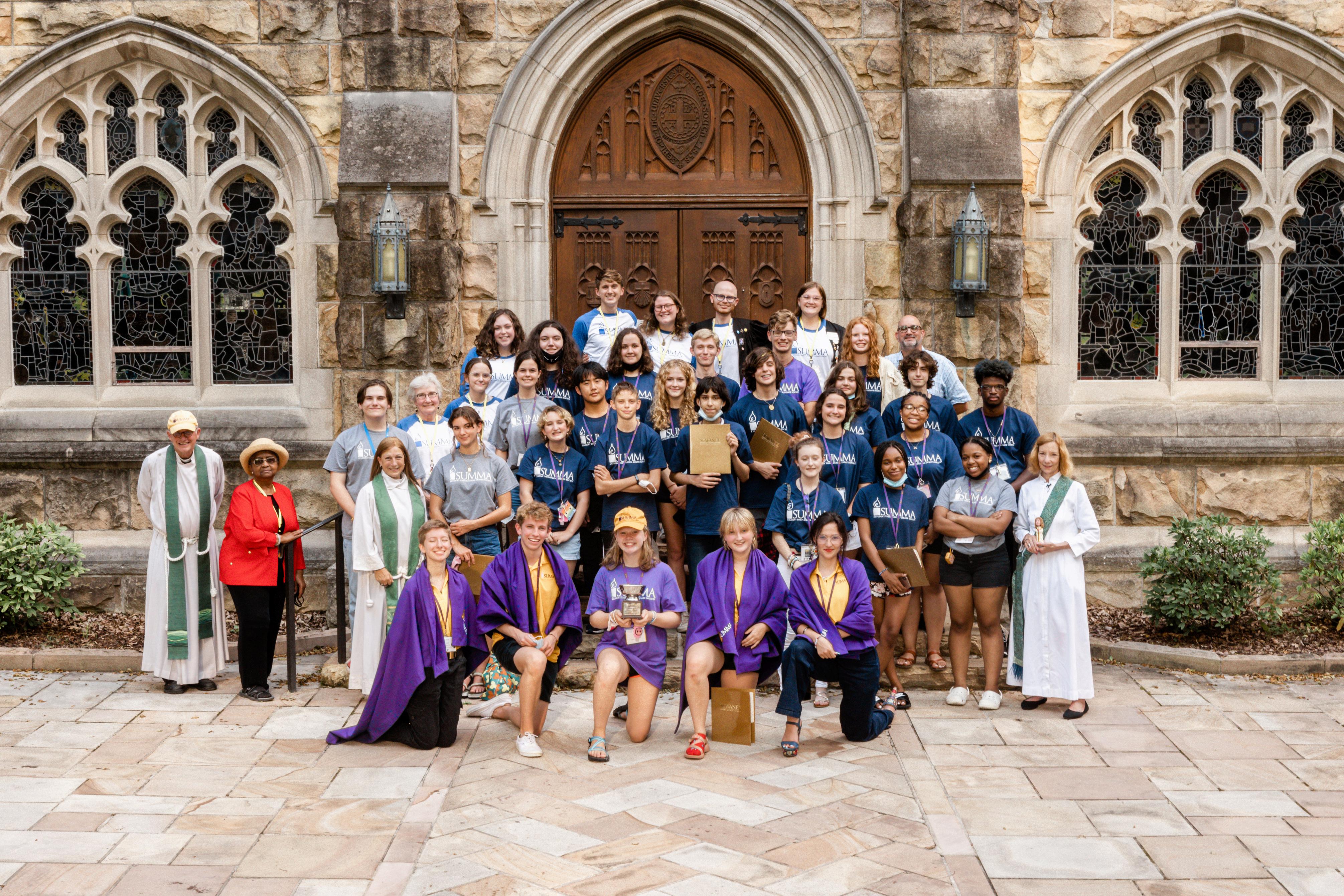
My name is Betsy Shepherd, and I attended SUMMA Theological Debate Camp at Sewanee in 2019, 2020, and 2021. When I was in the eighth grade, my priest, Father Robert Alves, walked into an EYC meeting before Sunday church at St. John’s in Fayetteville. My friend and I were having a heated theological debate about that Sunday’s readings. Father Robert looked on with a smile and then softly said: "Hold on for a second. There's something I want you to see. " He came back a few minutes later holding a SUMMA brochure.
The following summer, I was driving past the University of the South sign and into the best week of my year.
In short, SUMMA has impacted my day-to-day life more than any other experience I had in high school. Nearly every day, I thank God for all the experiences and memories SUMMA gave me. The most meaningful times of my high school summers were spent hiking to Sewanee’s Memorial Cross on the last day of camp to watch the sunrise with my friends, laughing so hard in the dining hall that soda
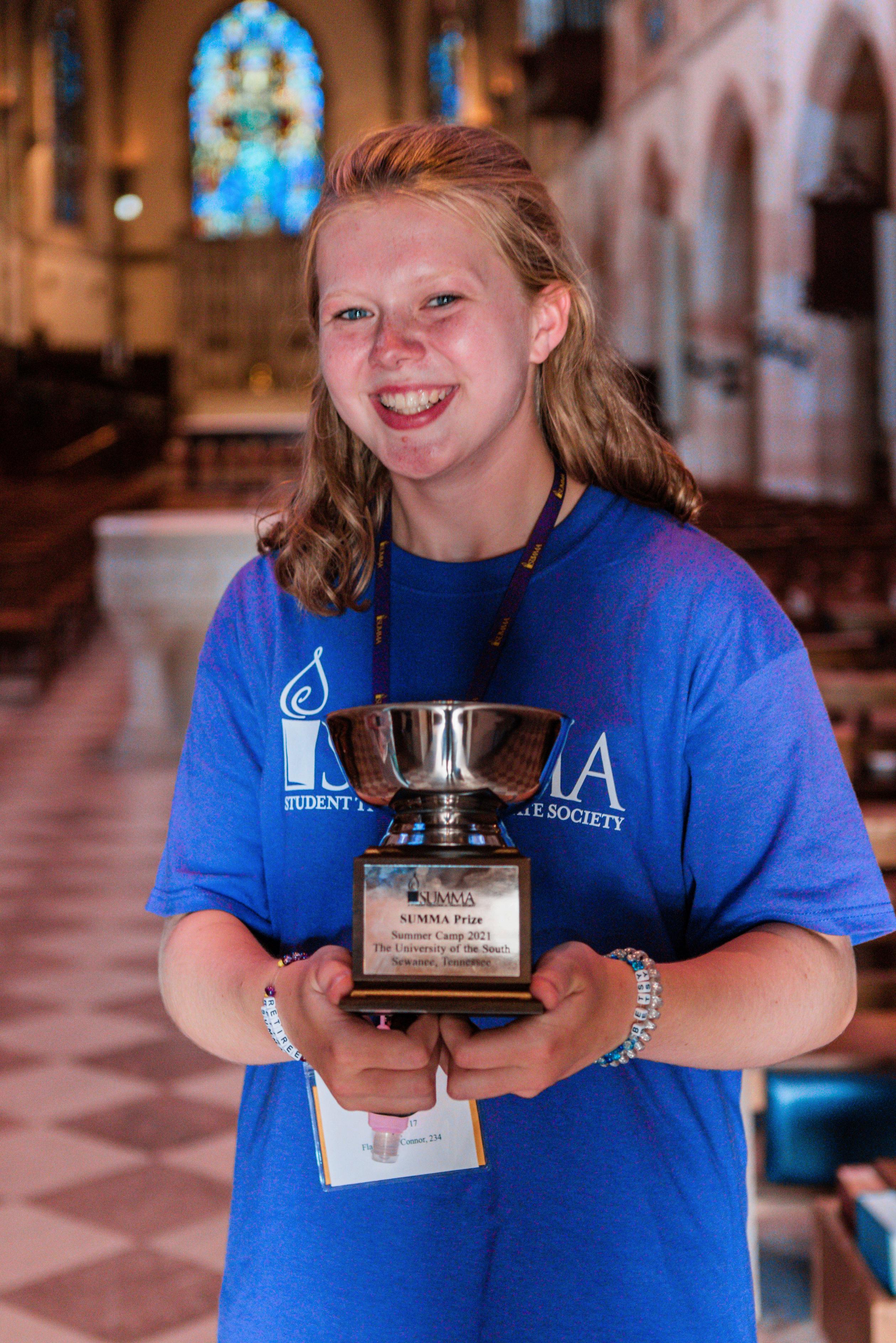
came out of my nose, sipping a latte at Stirling’s, playing round after round of card games in the dormitory kitchen, taking a breathless jump off of a cliff into the St. Andrew’s Reservoir, or just taking in all the sights and sounds of Sewanee. I remember feeling completely surrounded by God's glory when I was at camp.
SUMMA gave me guidance on how to live a Christ-centered life, particularly as a young adult in The Episcopal Church. One of the most valuable lessons I took from SUMMA is that there is a Christian community for every person. Additionally, youth in particular should seek to involve themselves in Christian communities that are full of people who love God wherever they can find them - even if these groups take a unique shape, such as a theological debate camp.
SUMMA gave me the courage to apply and serve on the East Carolina Youth Council and present youth events for the Diocesan youth community throughout my high school years. I also felt empowered to find and join different Christian communities outside of my home church These groups, along with my home church in East Carolina, led me to mentors, friends, experiences, and places that strengthened my faith into what it is today.
SUMMA is unique, because it fosters strong individual faiths in the lives of the young people who come through the program. Most campers come to SUMMA with very few friends from home and no idea of what to expect. Campers are encouraged and empowered to deepen their faith and all campers come home having gained a greater knowledge of God through their enhanced ability to speak truth in love.

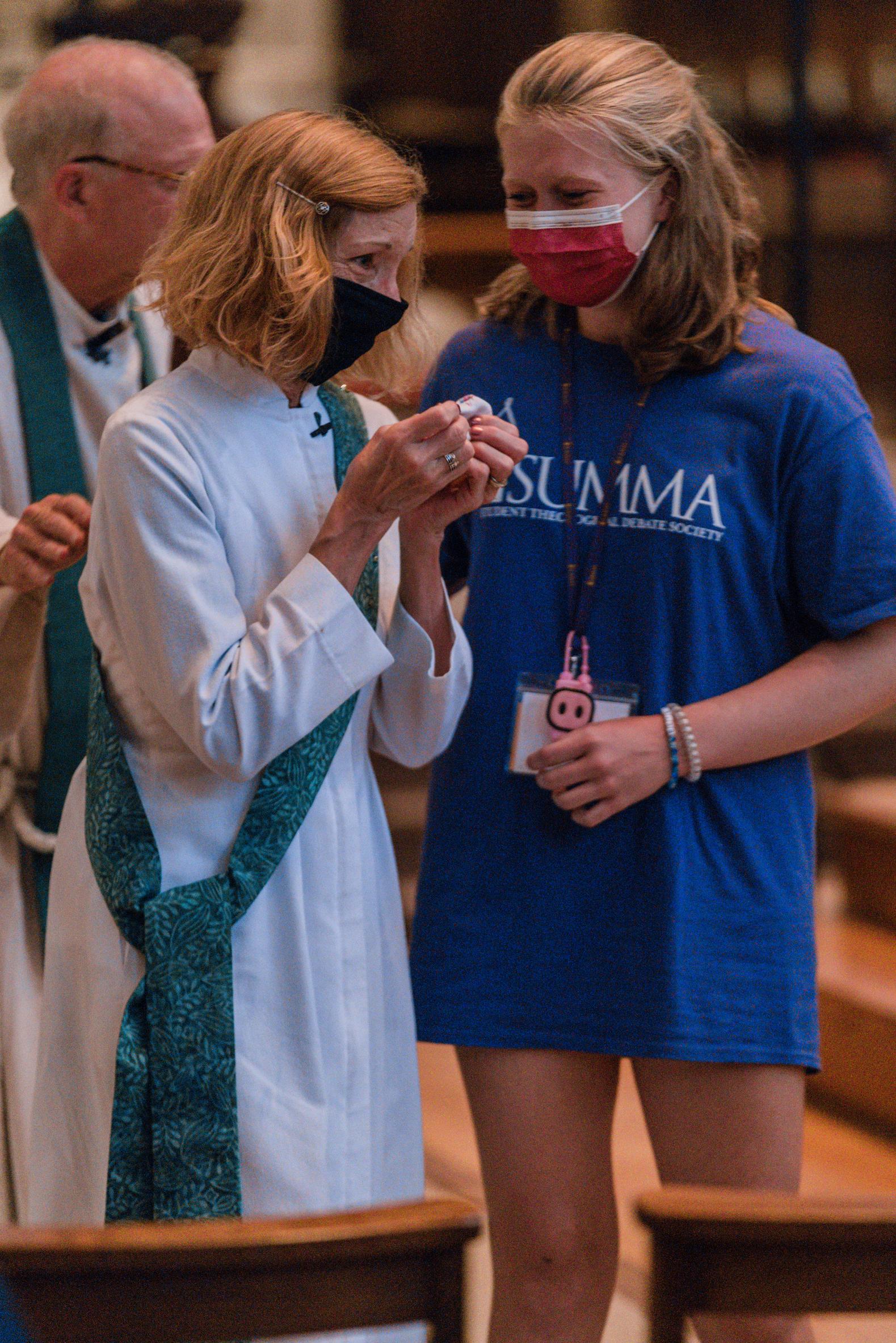

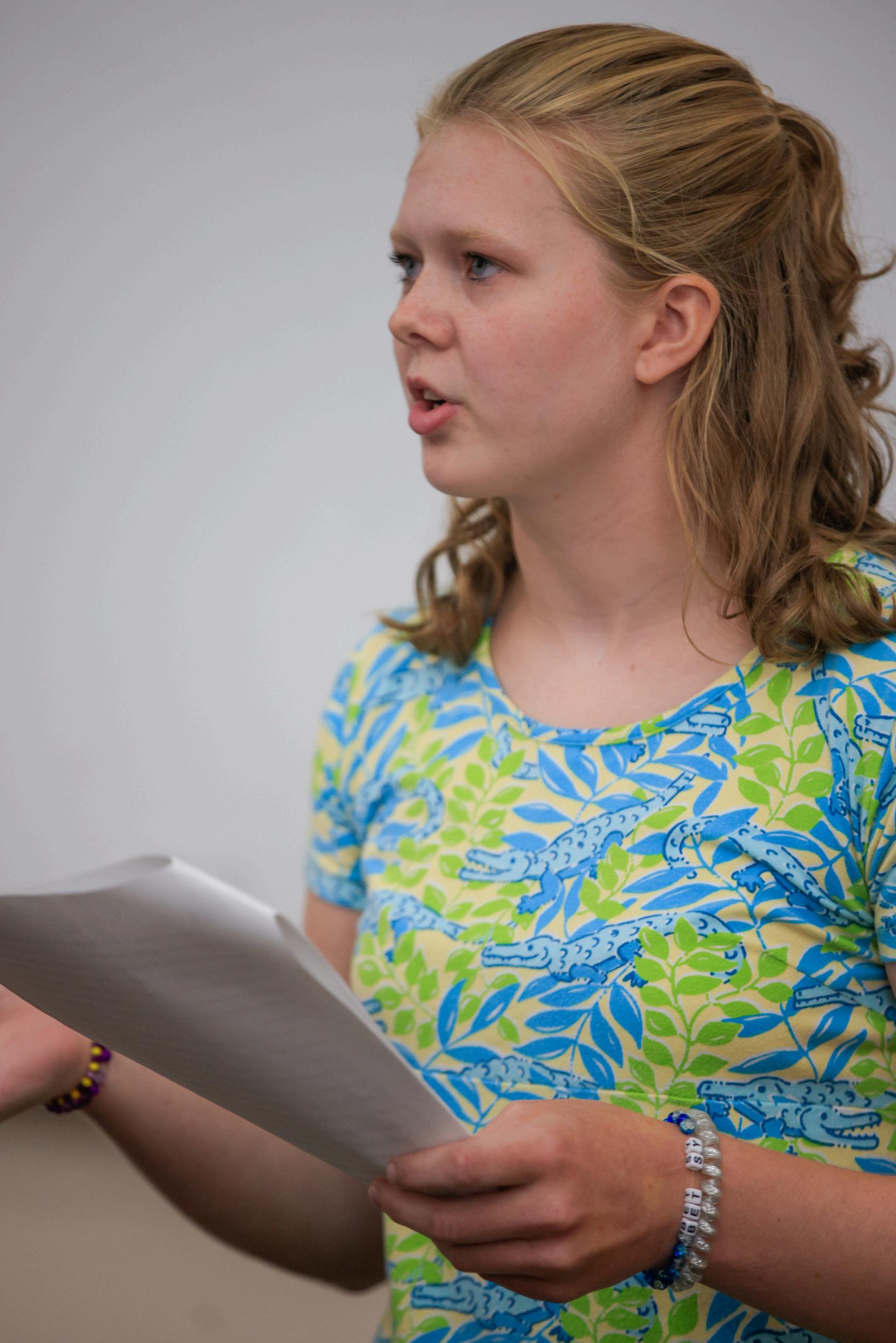
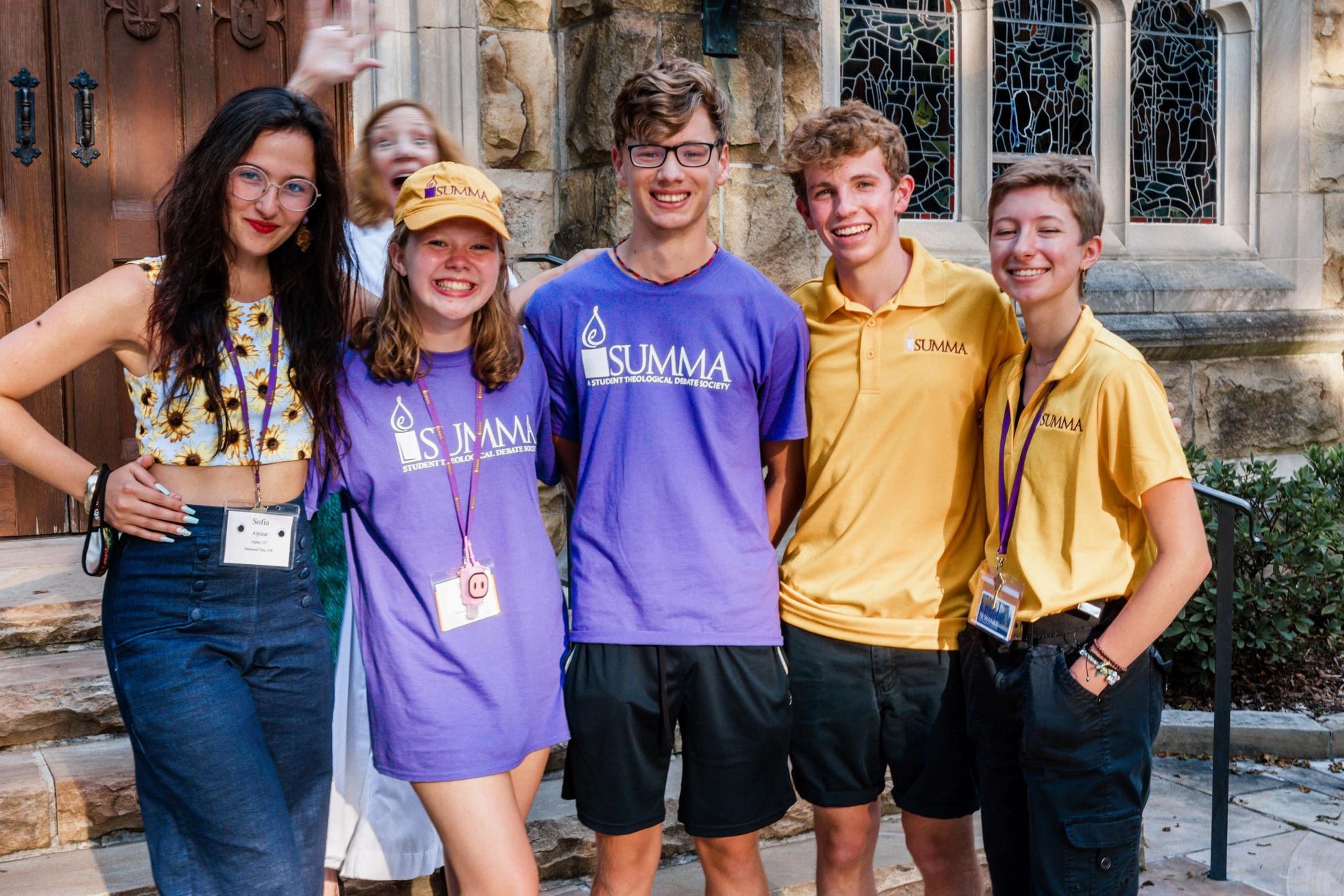
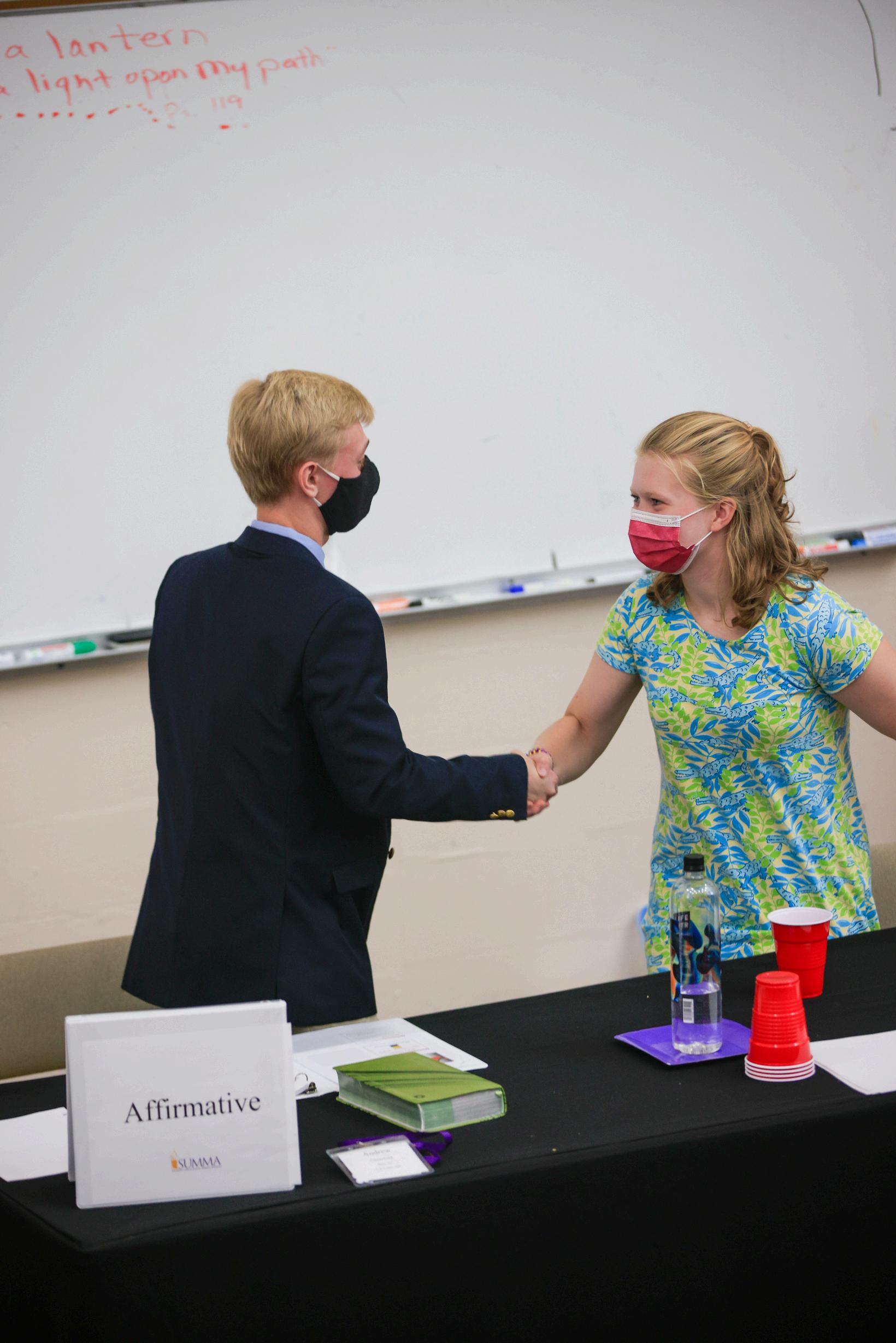
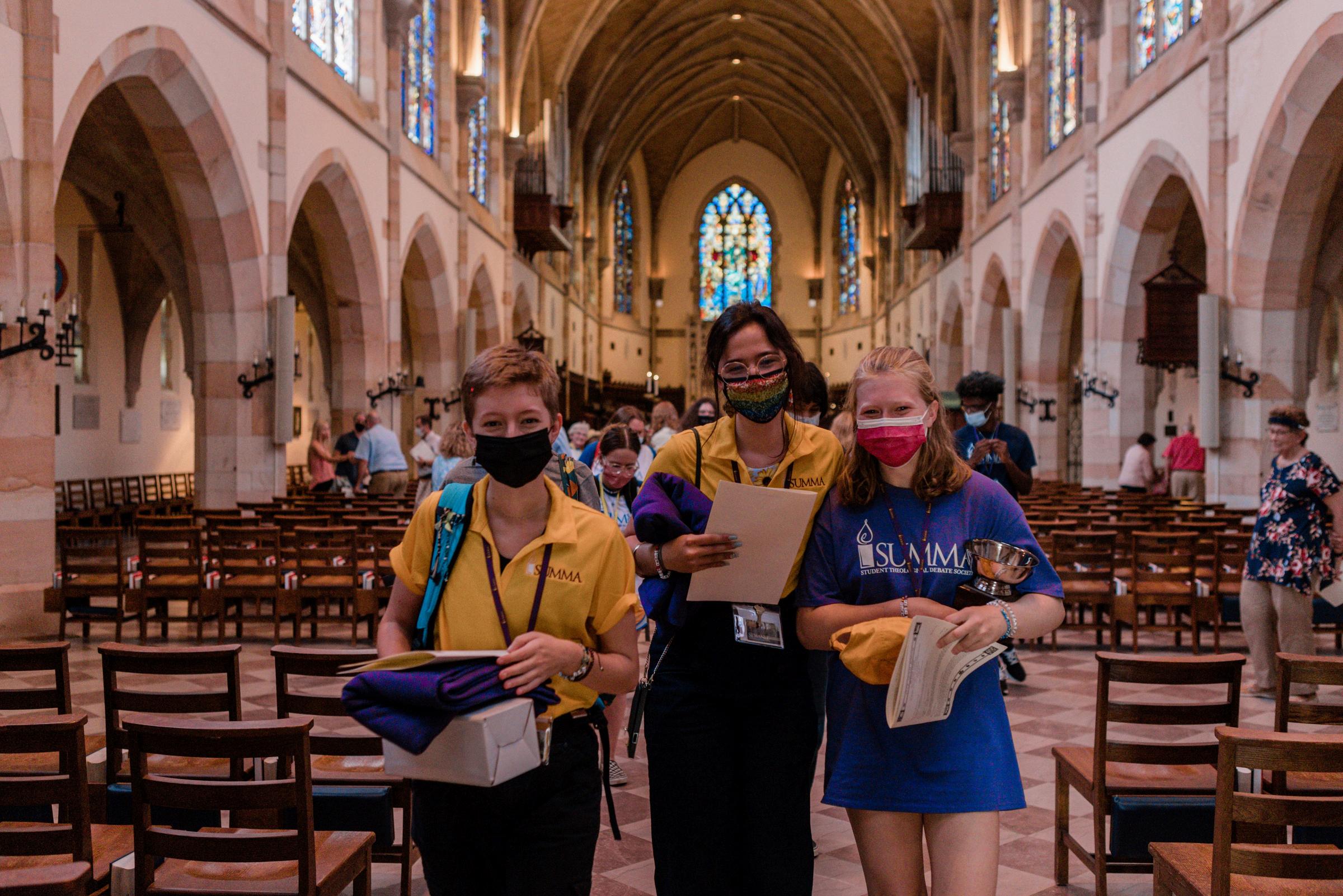
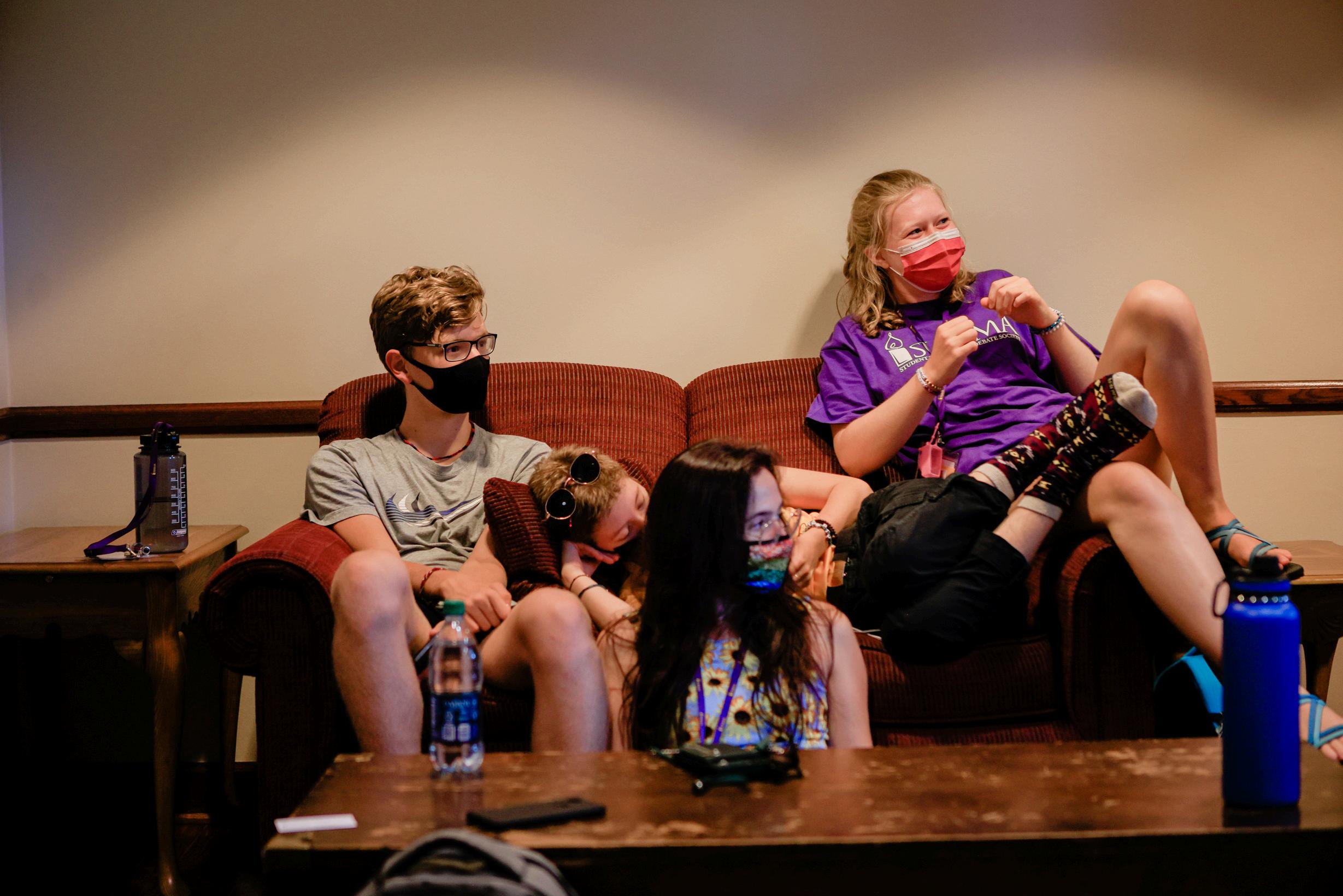
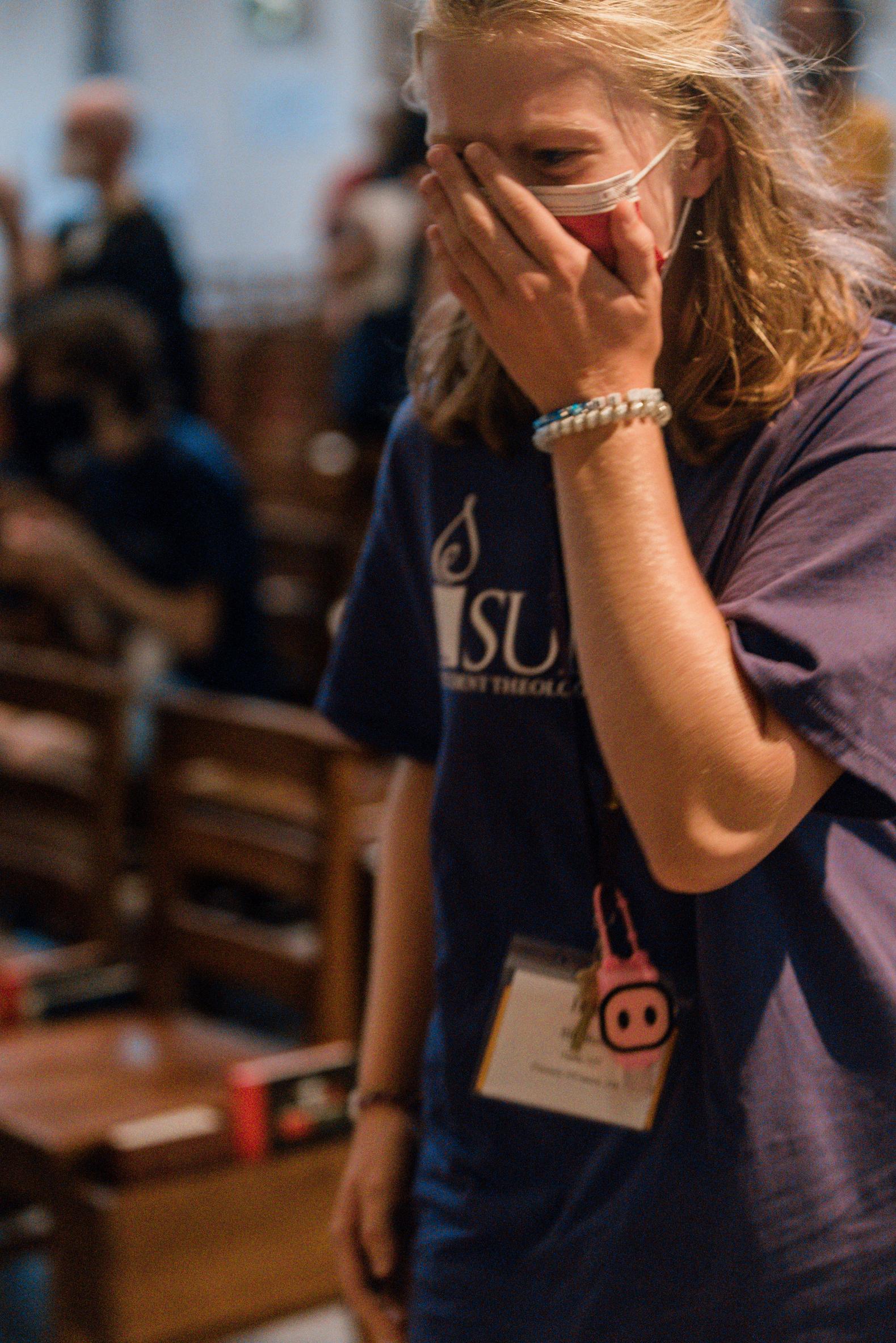
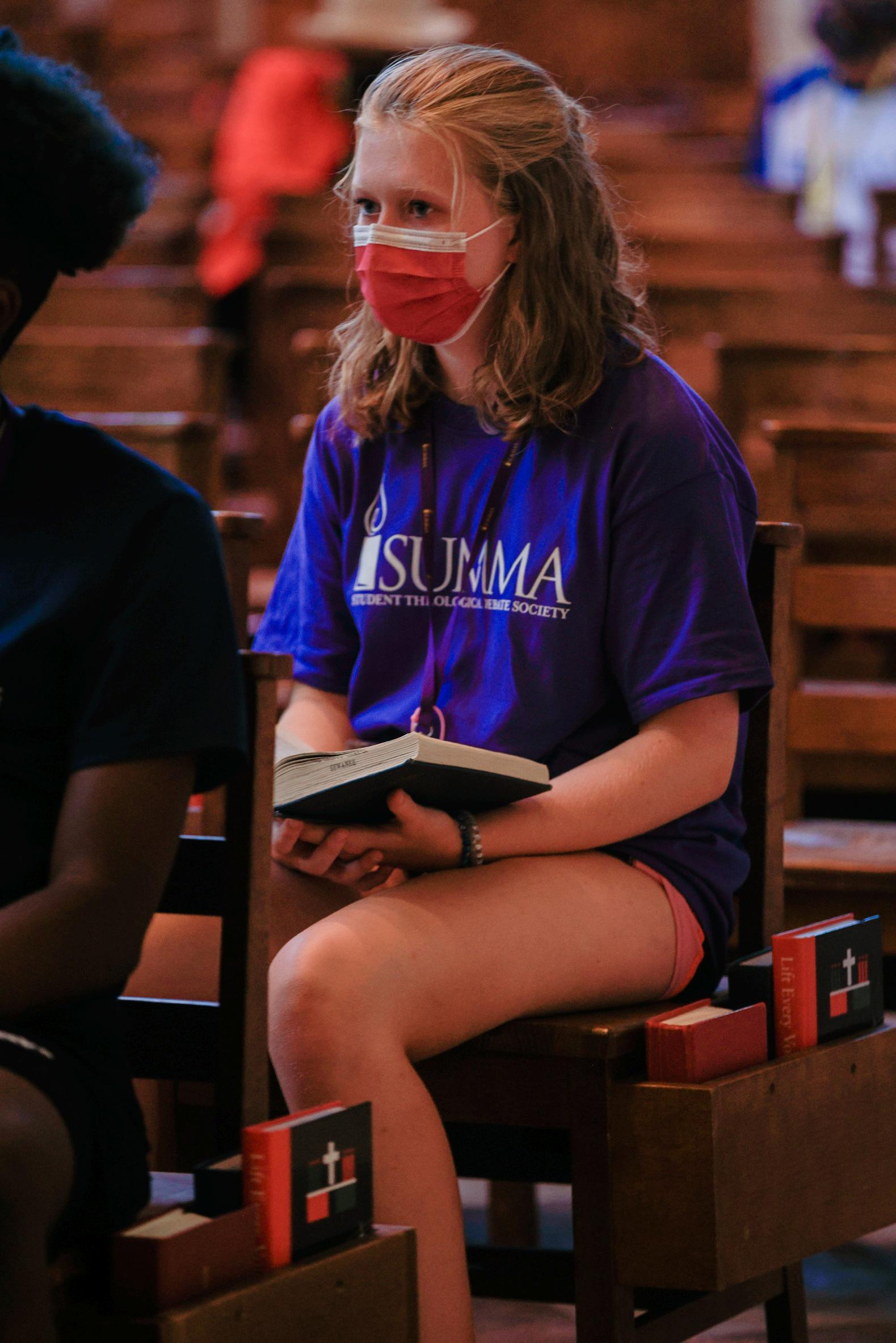


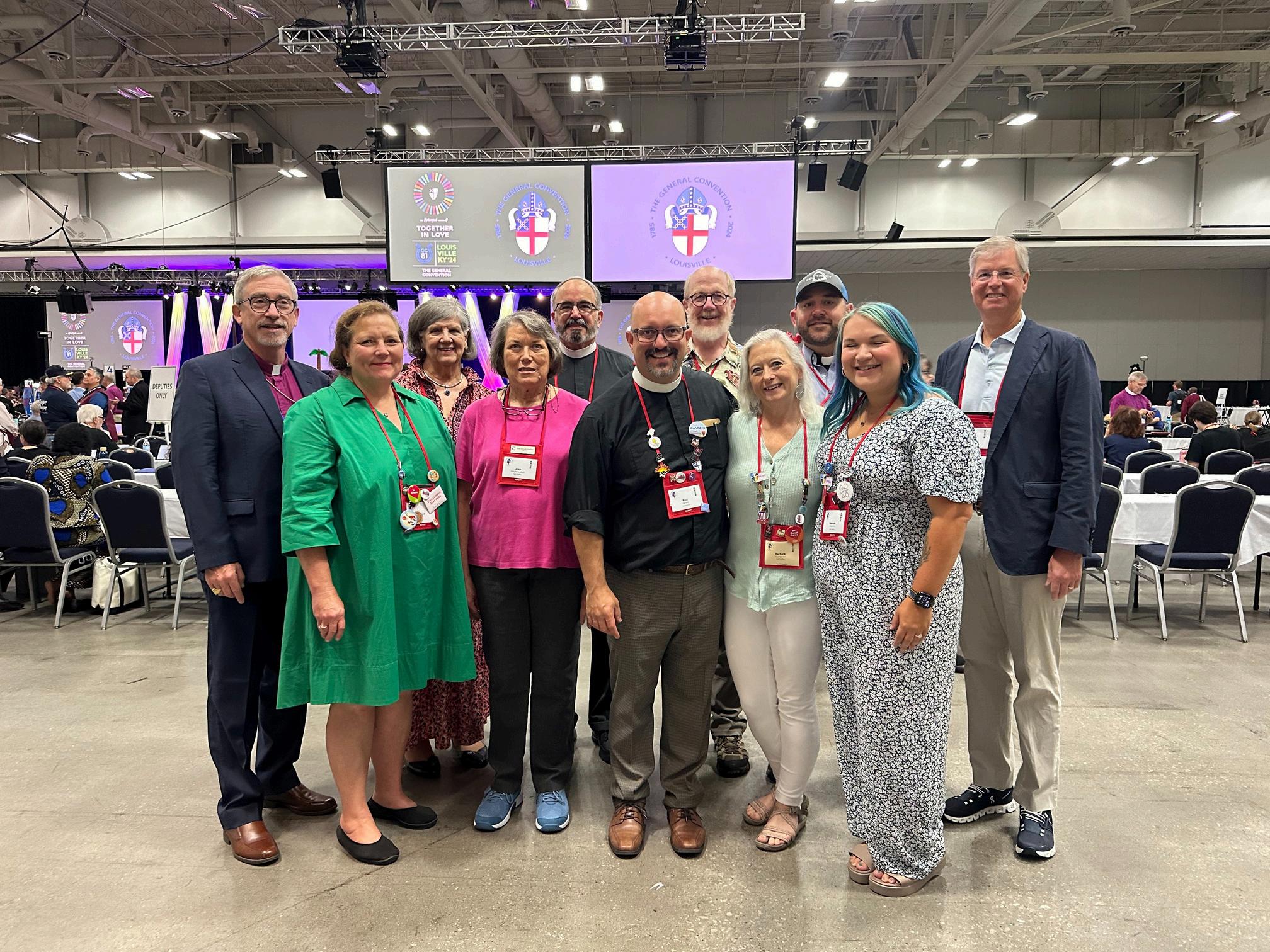
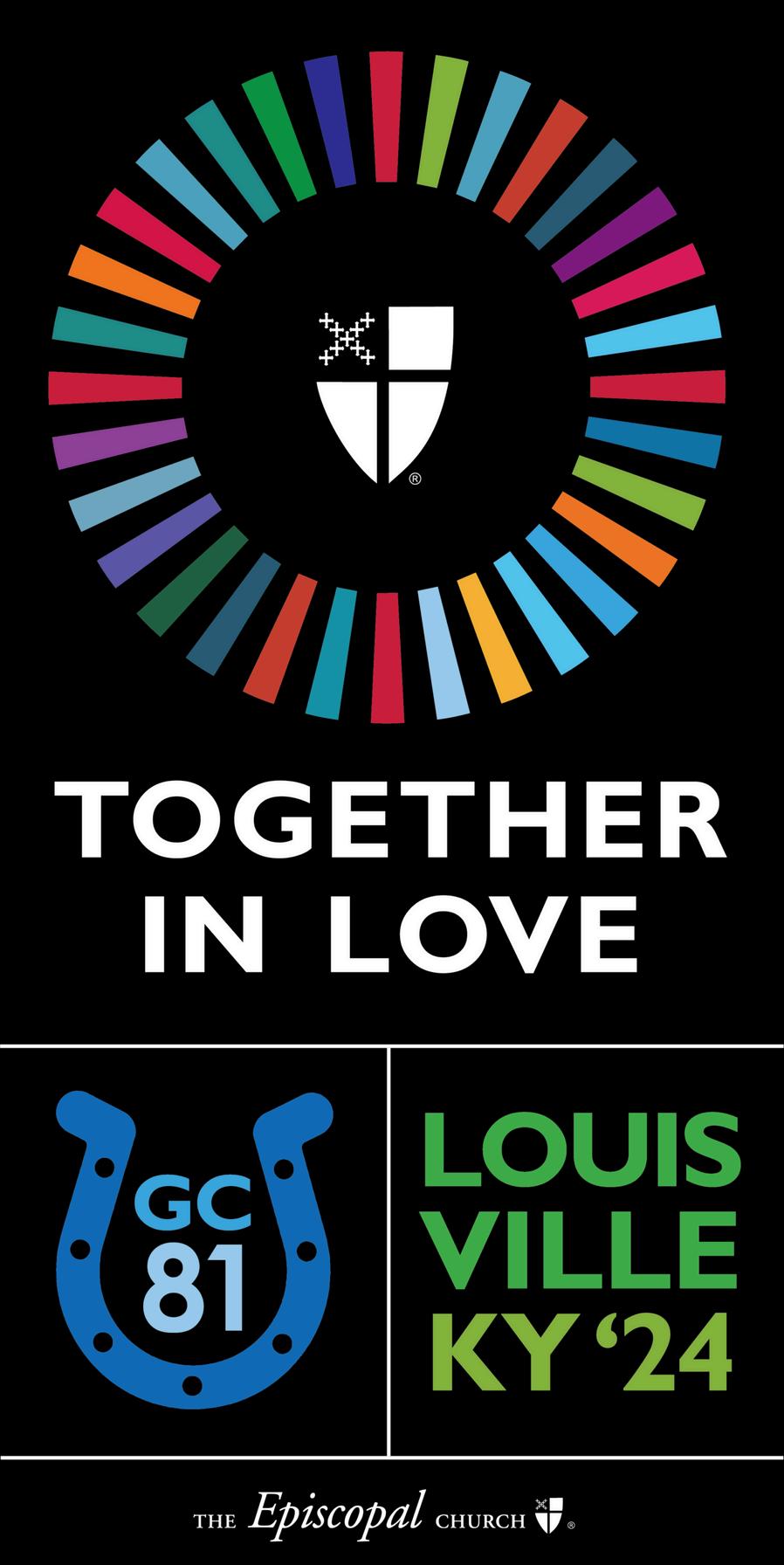
Our sincere gratitude goes to our deputation and bishop for their service and leadership at the 81st General Convention in Louisville, KY this June 23 - 28, 2024!
Our deputation included: clergy deputies Robert Alves, Paul Canady, Richard Elliott, Caleb Lee and Tammy Lee, lay deputies Barbara Crumbacker, Hannah Hutchens, Joan Geiszler-Ludlum, Tess Judge and Tom Tully, and bishop Rob Skirving. Our many thanks to these individuals for their time, leadership, and commitment to the work of the wider Church.
At the 81st General Convention, bishops and deputies engaged in significant legislative work, including amending the Book of Common Prayer to redefine Holy Matrimony as “Christian Marriage, in which two people enter into a lifelong union, make their vows before God and the Church, and receive the grace and blessing of God to help them fulfill their vows; ” adopting a prayer written by a coalition of indigenous

Episcopalians to remember those who were affected by the Church’s sins of the Indigenous Boarding School; and formally making the Navajo Area Mission a Missionary Diocese. GC81 also provided opportunities for reconnecting with colleagues and celebrating the achievements of individuals like Annie Jacobs, recently named a Distinguished Woman by the Episcopal Church Women. Highlights included a moving revival led by Presiding Bishop Michael Curry, the election of Bishop Sean Rowe as the next presiding bishop, and various updates from deputies, underscoring the convention’s Spirit-led deliberations and the ongoing commitment to the Church's mission
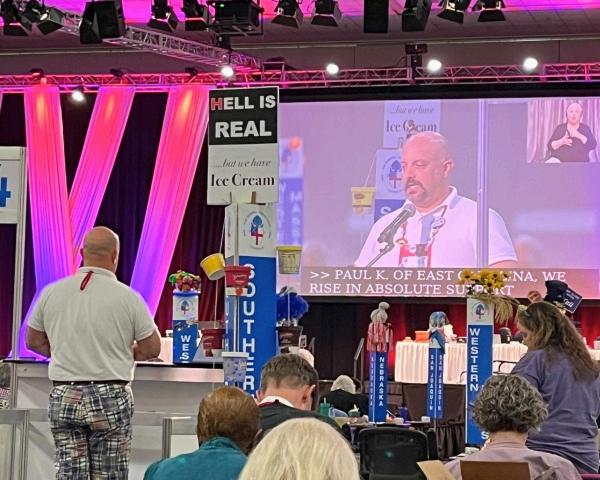
What follows below and on the next pages are reflections from our clergy and lay deputies who served at the 81st General Convention, the takeaways and special moments that they carried with them following this momentous General Convention.
We thank our deputies and bishop, again, for their service and for representing our diocese in the House of Deputies and the House of Bishops, and we thank all of you for your prayers and support during the 81st General Convention!
Rev. Paul Canady notes, “There were so many places we saw God’s hand at work during General Convention including ways we could celebrate the way God has been working over the years. We celebrated the 50th anniversary of women ’ s ordination and the 150th anniversary of the Episcopal Church Women. We cheered for the arrival of deputies from the Episcopal Church in Cuba for the first time since the rise of Castro and most American-based churches left the island. There were smaller holy moments of seeing friends and making new connections. The worship was the most authentic and spirit-centering I’ve ever experienced at an event that size, and I’m looking forward to us using two pieces of music that were debuted.”
Rev. Caleb Lee shares “I saw God in the worship on Wednesday during the Morning Eucharist. The place and experience felt saturated with the Holy Spirit. A particularly poignant moment was when after receiving Holy Communion, our delegation prayed for our Rob, our Bishop, with the laying on of hands. Powerful stuff! I was also inspired by the transfer of leadership from one generation to another. To see a presiding bishop elected who is 49 and the House of Deputies with a president and vice president in their 40s gives me hope and inspiration for the future of the church. It gives my generation the confidence to lead, knowing that we are standing on the shoulders of giants, who ha d th t h t ”
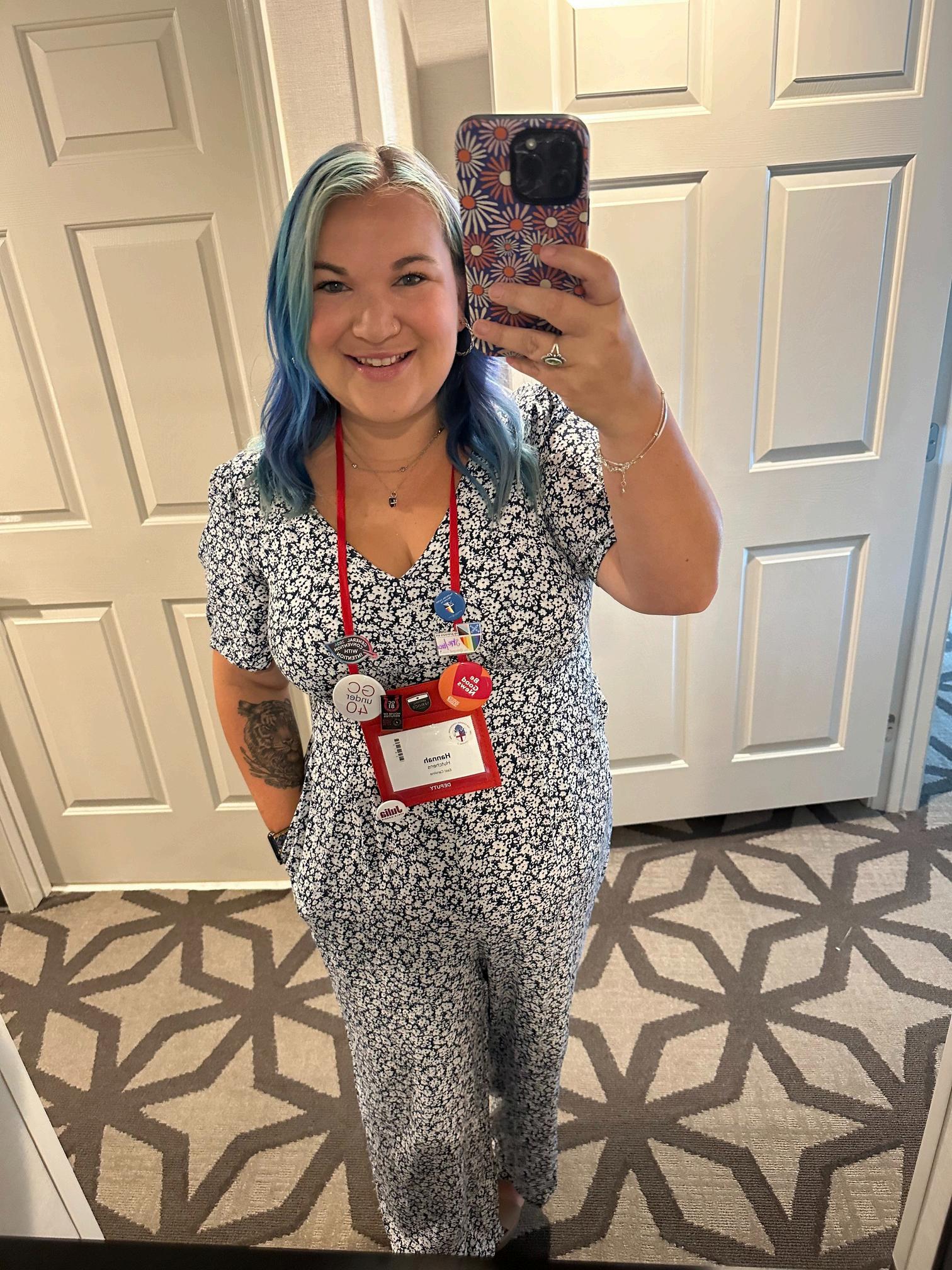
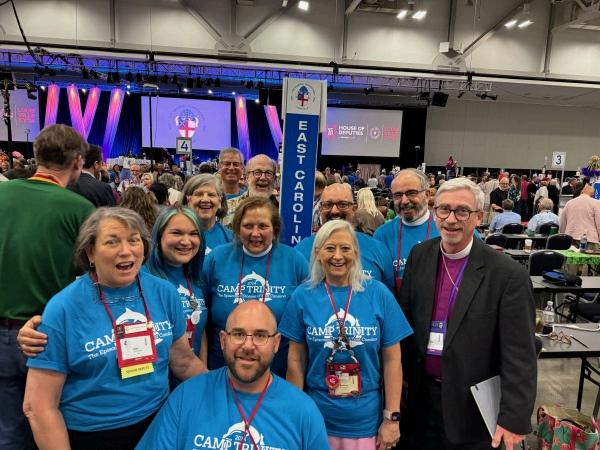
Hannah Hutchins observes, “GC 81 showed me that it is truly beautiful when church governance and the church's people come together: the Holy Spirit shines. The way that this church is fighting for a future that is inclusive and representative of all God’s people makes me really excited. I am hope filled from this week and cannot wait to h h h h h ”
enforcement, a doctor/priest who re orders and serves a small congregation West, a member of the Union o Episcopalians, and I could go on and o breadth and diversity of the chu something we rarely get to see, and it is that I see God at work, and have hope future of the church.”

Rev. Tammy Lee shares, “I am so very excited about our new presiding bishop Sean Rowe. I served with him on Committee 18 and he brings such a fresh perspective ‘for a time such as this’ that we find ourselves in. There are indeed changes that are coming to our national structures, but they are necessary and life-giving. As our own bishop has advised: new wineskins are often necessary. Sean has the courage and the will to make that happen. I cannot wait to see what God will do among us. It is an exciting time to be an Episcopalian.”
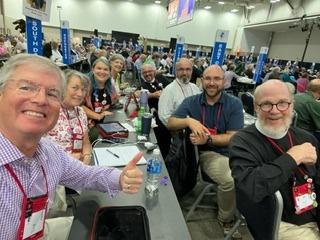

Tess Judge relates, “This General Convention was very exciting for all with the elections of our next Presiding Bishop and President of the House of Deputies. I was very honored to Chair the Committee for The Confirmation of the Presiding Bishop, working with others from all over the country. It has been so wonderful to be a part of the last three General Conventions with Presiding Bishop Curry. I enjoyed the revival we had this time so much as the three North Carolina Dioceses sat together for this special time with Bishop Curry. We all had on a special t-shirt representing all three NC dioceses! I feel such positive energy and spirit for our church as we move forward. General Convention affords us such a special time to be together with our bishop doing such meaningful work for our Church.”
Tom Tully notes that “As a ‘cradle’ Episcopalian, I was surprised at how little I knew about the governance of the Church. Furthermore, I was amazed at how God is working through all of us to spread the Gospel globally and to people and groups that have historically been underserved. I was moved by how such a diverse community can come together in an effort to live and love like Jesus in such a fractured and challenging time. I am encouraged that we can continue to enlarge the circle and strive to live out our baptismal co be


By Rev. Paul Canady
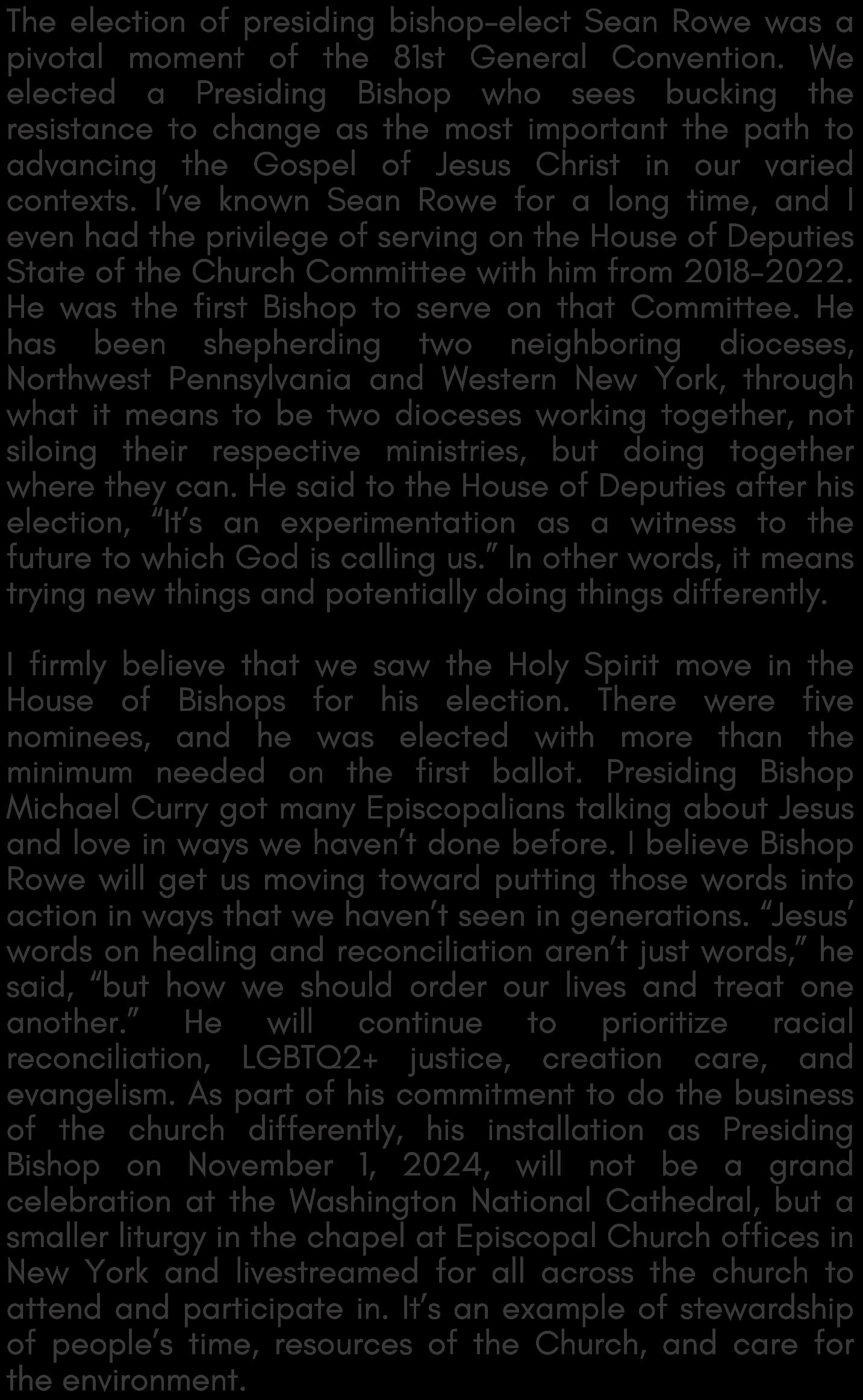
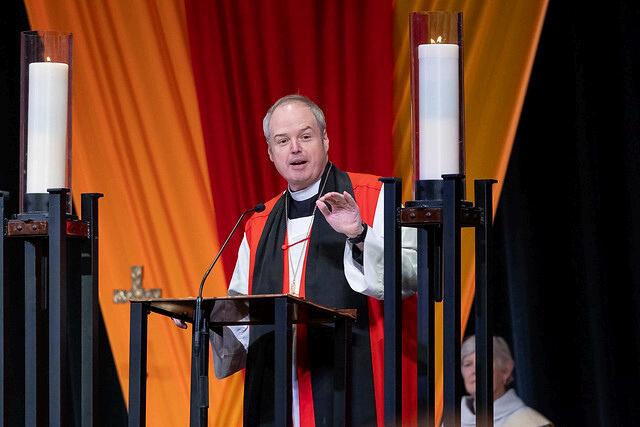
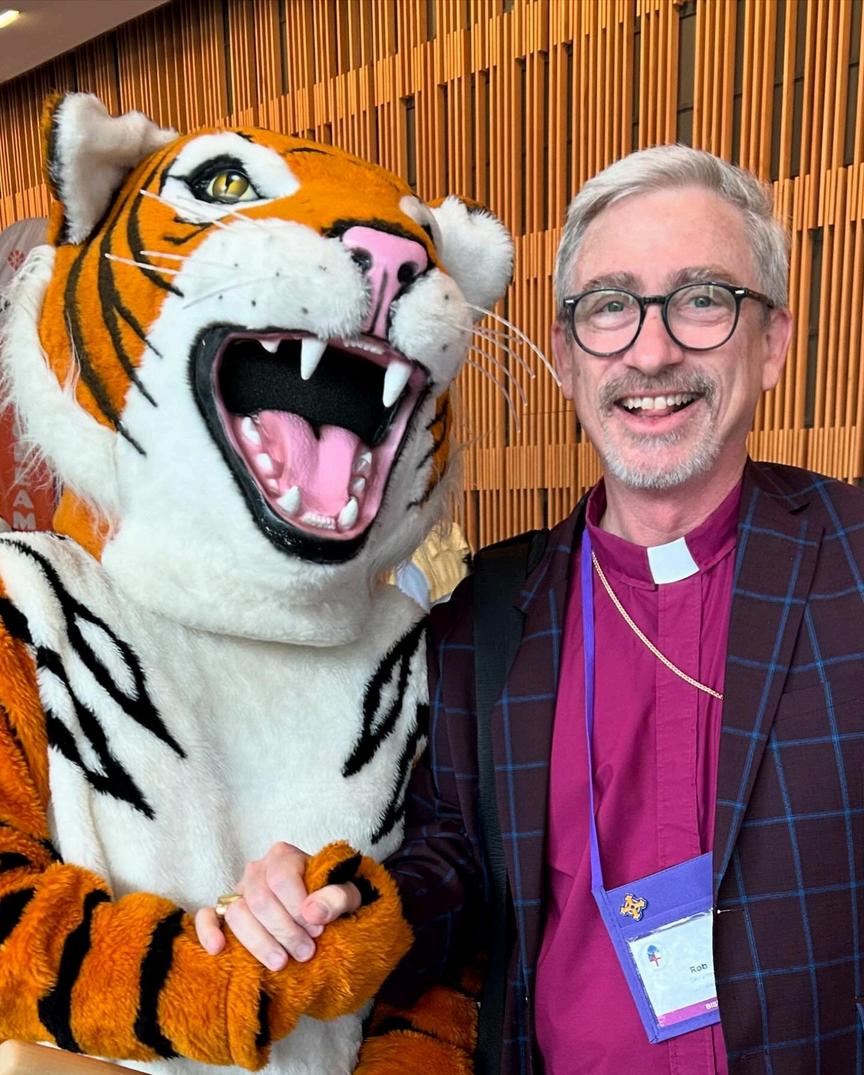
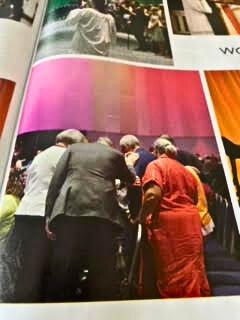


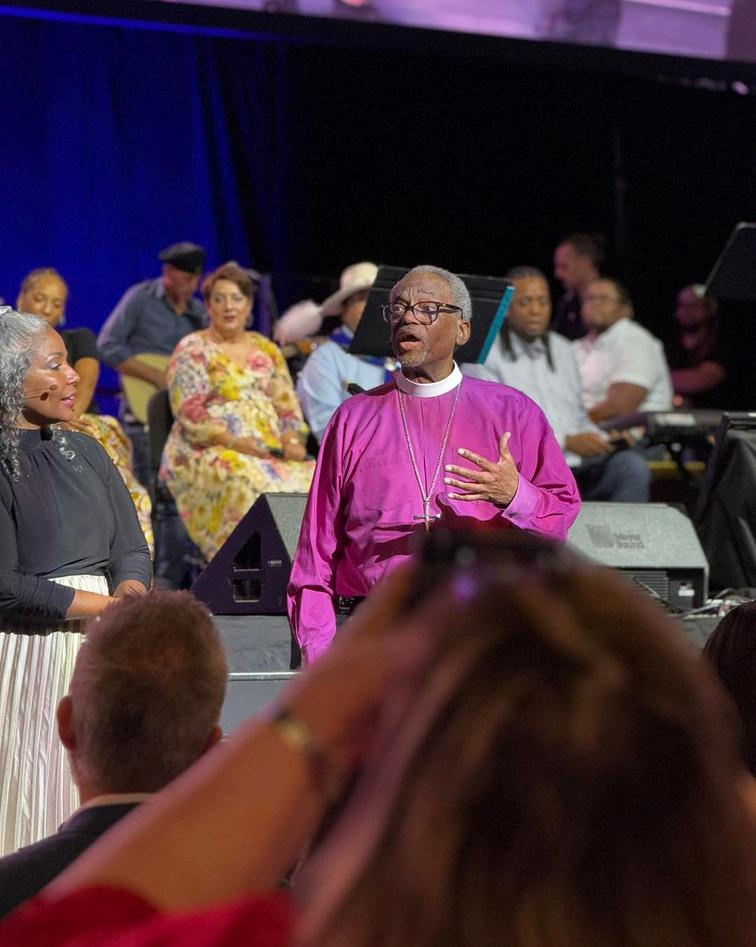
To see all the news and reporting from our bishop, deputies, and communications team, click here to go to our GC81 Reporting hub to find special moments shared, legislative information, elections results, and storytelling of East Carolina at GC81.

HTTPS://WWW.DIOCESE-EASTCAROLINA.ORG/EVENTS/

